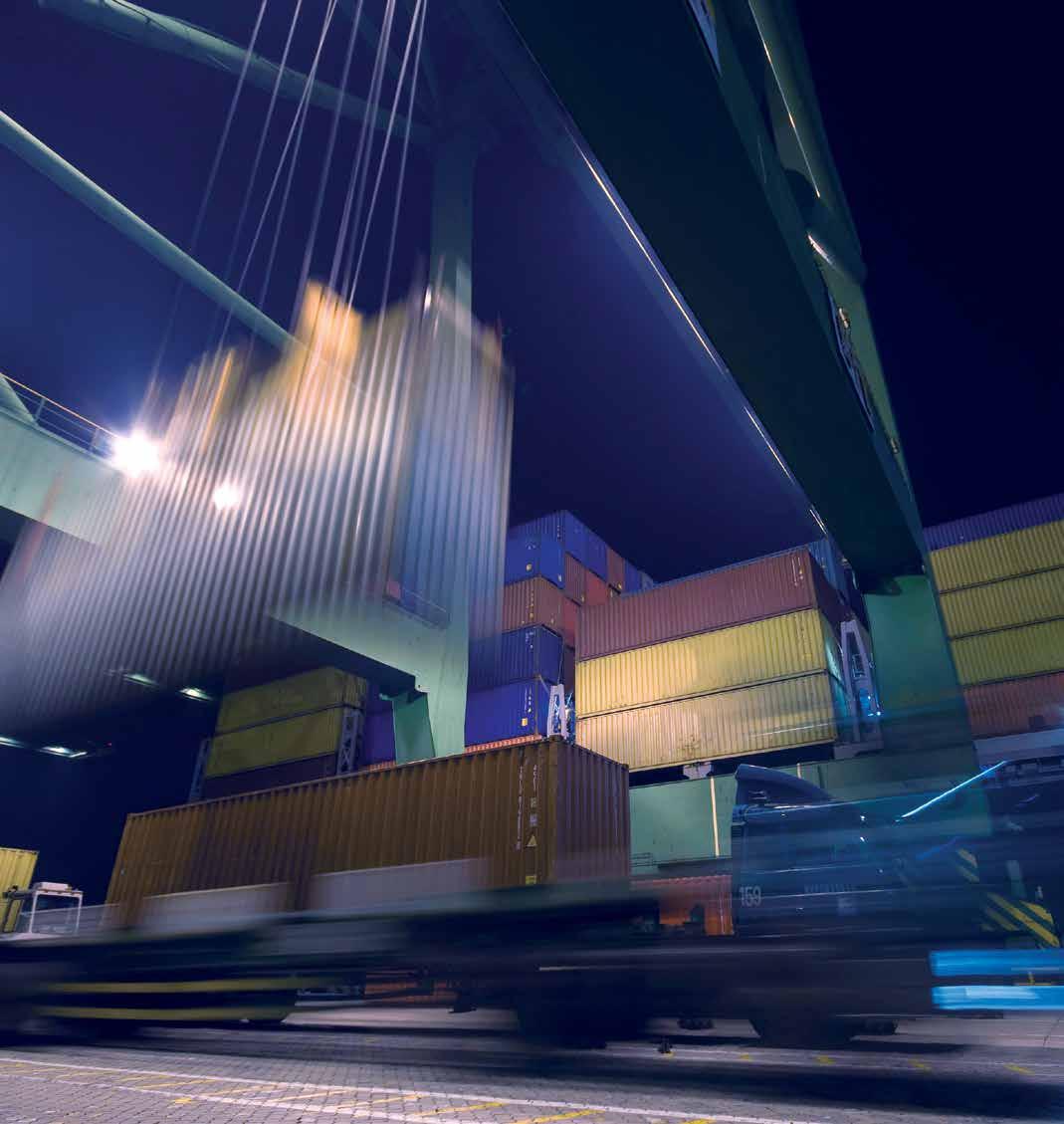
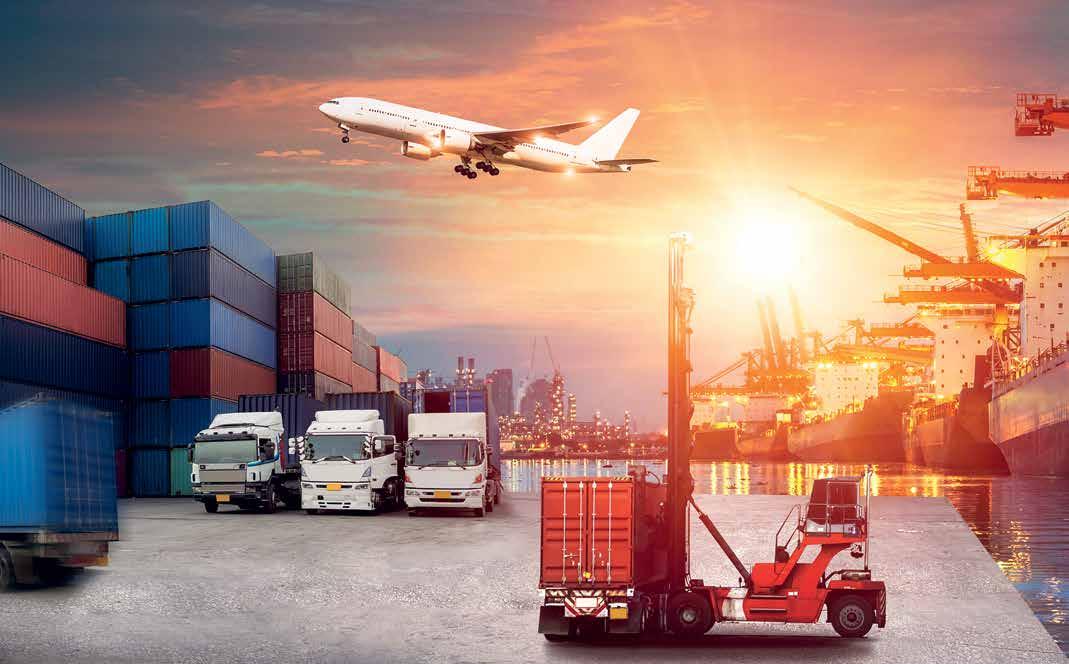
LA REVISTA DEL CONSEJO EMPRESARIAL LOGÍSTICO • INFORME: TENDENCIAS Y CAMBIOS EN LA INDUSTRIA DE GRAN CONSUMO POST COVID TRENDS AND CHANGES IN THE POST COVID FMCG INDUSTRY • TENDENCIAS: NEARSHORING, LA OPORTUNIDAD DE ABRIR NUEVOS MERCADOS THE OPPORTUNITY TO OPEN NEW MARKETS • OPINIÓN: PANAMÁ, ¿CAMINO A LA DESGLOBALIZACIÓN? PANAMA, ON THE WAY TO DEGLOBALIZATION?

















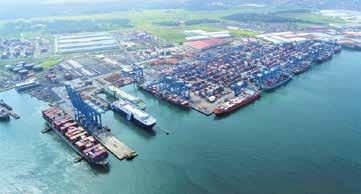
Hace cuatro años, la estratégica fusión de las navieras K Line, MOL y NYK, abrió paso al nacimiento de Ocean Network Express – ONE, la naviera que trazó el rumbo de una nueva visión de soluciones globales, marcando un paso adelante en el servicio de excelencia en el transporte marítimo mundial.

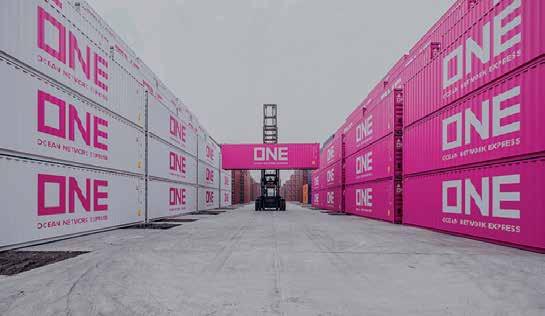

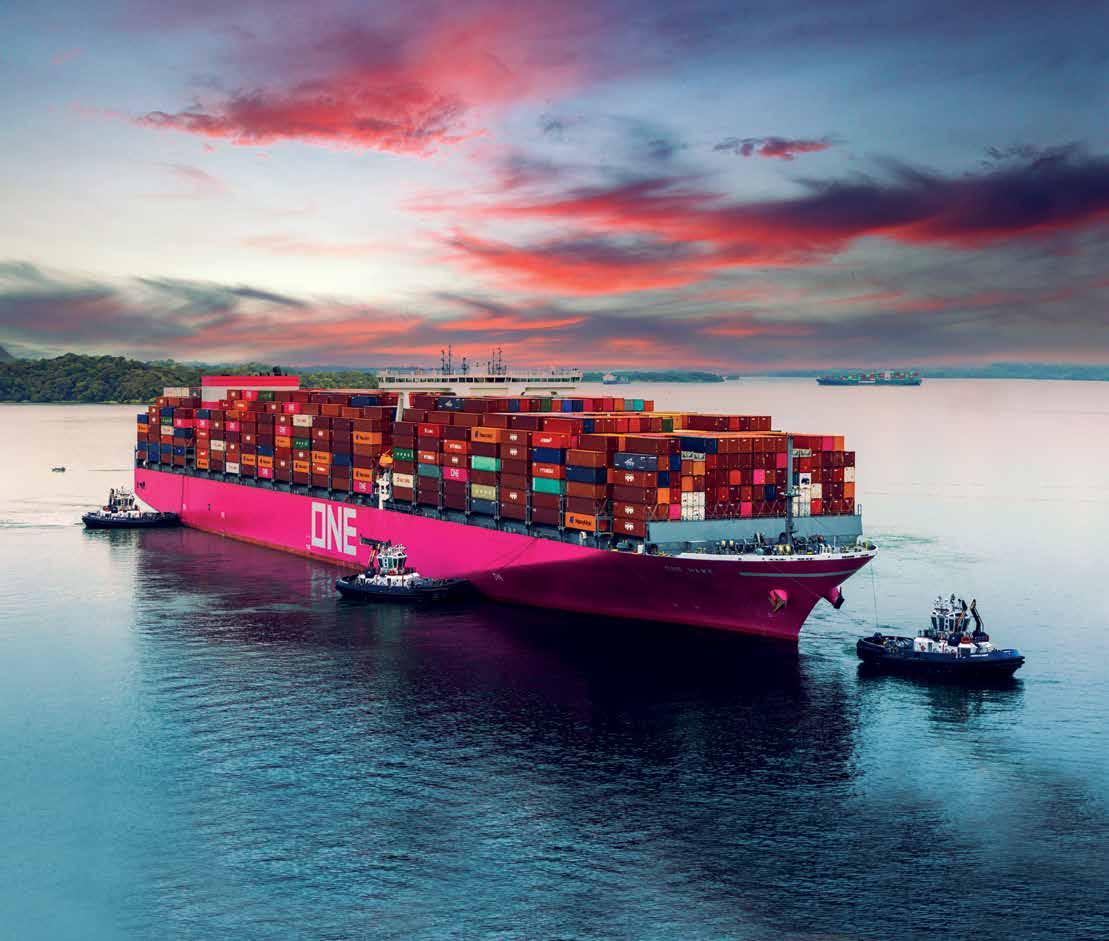
Una nueva forma de mover el mundo CUATRO AÑOS DE INNOVACIÓN Y EXCELENCIA EN SERVICIO NAVIERO www.one-line.com
TELÉFONO: +507 394 6862
CORREO: info@coelpanama.org
Dirección: Ave. Morgan 301B, Panamá www.coelpanama.org
INDICE
EDITORIAL : Comprometidos con una Logística Verde 6
EDITORIAL: Committed to Green Logistics 8
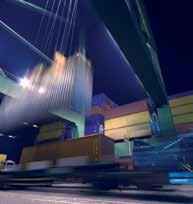

VOCES COEL | COEL VOICES 9

INFORME Tendencias y cambios en la industria de Gran Consumo post- covid 14 REPORT Trends and changes in the post-covid FMCG Industry 16
TENDENCIAS Nearshoring: La oportunidad de abrir nuevos mercados 19 TRENDS Nearshoring: The opportunity to open new markets 21
OPINIÓN Panamá, ¿Camino a la desglobalización? 22 OPINION Panama, on the way to deglobalization? 24
BENCHMARKING Gestión del conocimiento en el sector logístico ¿Cómo hacerlo una realidad? 26 KNOWLEDGE management in the logistics sector. How to make it a reality? 27
DEBATE CHIRIQUÍ: Radiografía de un crecimiento sostenible 28 DEBATE Snapshot of sustainable growth 29
Casa Editora
Imprenta offset
Digital
María Eugenia Talavera
General Alfonso Agüero Talavera: Producción Elar Vega Solís: Diseño Gráfico Roberto Checa: Traducción
Teléfonos: +507 391 4811
Email: empresas.suigeneris@gmail.com
GESTIÓN Cómo la gestión logística inteligente ayuda a mejorar el rendimiento y la seguridad 32 MANAGEMENT How Smart logistics management helps improve performance and safety 34

RUTA LEGAL Proyecto de ley de sociedades marítimas 36 LEGAL ROUTE Maritime companies law proyect 38
ESTRATEGIA Colón: El cambio comienza por mí 42 STRATEGY Colón: Change begins with me 44
HISTORIA COEL, 10 años de historia con propósito 45 HISTORY COEL, 10 years of history with a purpose
INSTITUCIONAL Junta Directiva COEL 48 INSTITUTIONAL Board of Directors COEL
EVENTO Foro Mundial de Ciudades y Plataformas Logísticas 2022 54 EVENT World Forum of Cities and Logistics Platforms 2022
NUESTROS MIEMBROS COEL 57 OUR MEMBERS
• Diseño gráfico • Mercadeo Editorial •
y
: Directora
Cel: 6300 6496
LA REVISTA DEL CONSEJO EMPRESARIAL LOGÍSTICO • INFORME: TENDENCIAS Y CAMBIOS EN LA INDUSTRIA DE GRAN CONSUMO POST COVID TRENDS AND CHANGES IN THE POST COVID FMCG INDUSTRY • TENDENCIAS: NEARSHORING, LA OPORTUNIDAD DE ABRIR NUEVOS MERCADOS THE OPPORTUNITY TO OPEN NEW MARKETS • OPINIÓN: PANAMÁ, ¿CAMINO A LA DESGLOBALIZACIÓN? PANAMA,ONTHEWAYTODEGLOBALIZATION?
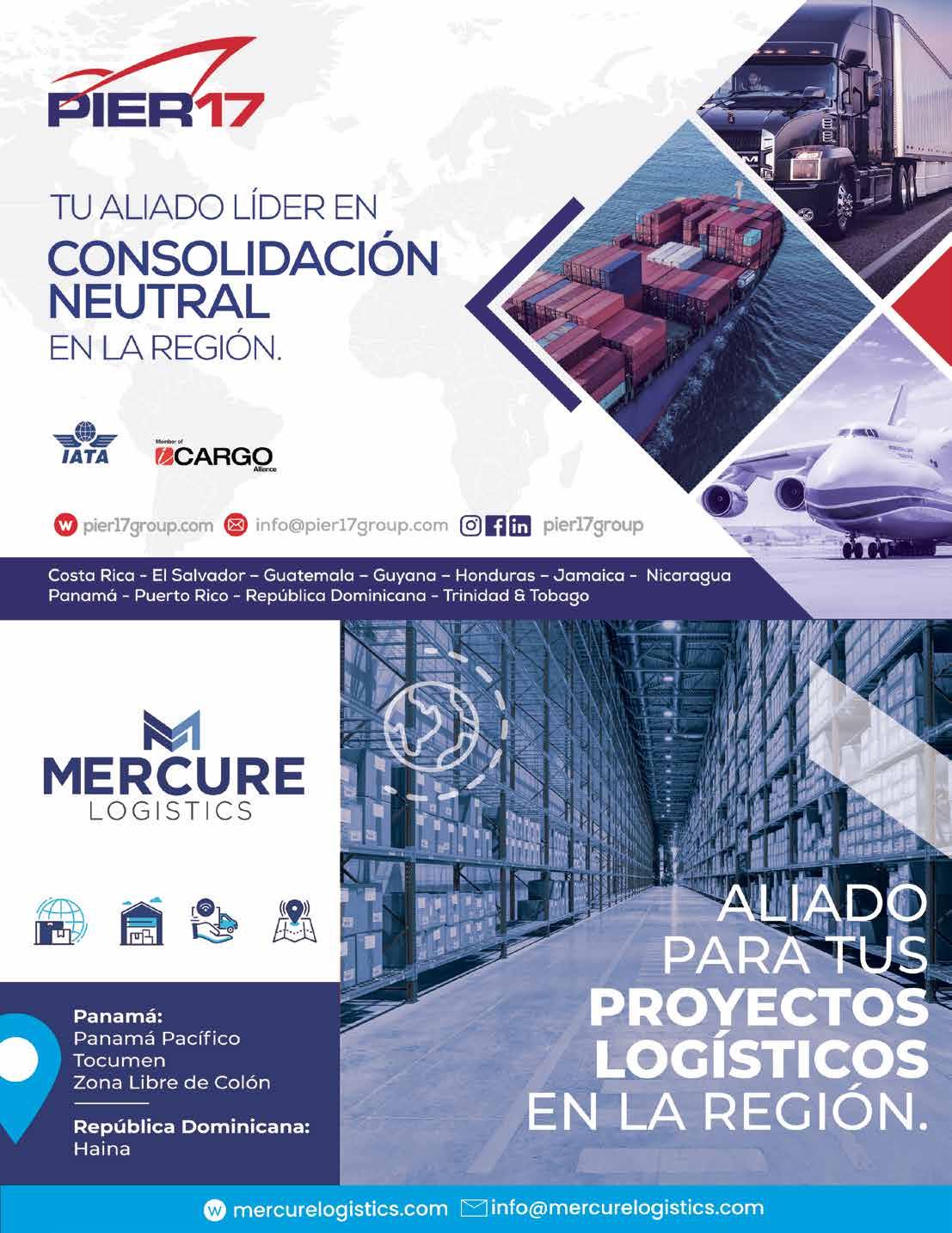
COEL: Comprometidos con una logística verde
Desde su fundación, el Consejo Empresarial Logístico ha mantenido un hilo conductor que representa el espíritu de cuerpo que agrupa hoy a estas 23 organizaciones gremiales de diferentes sectores relacionados o interesados en el desarrollo y crecimiento de nuestro hub logístico, primero como un hub de trasiego, luego transversalmente, y ahora enfocados en agregar valor. Esta década de arduo trabajo ha sido y es el norte que nos lleva hoy a celebrar nuestro décimo aniversario de fundación, unidos, fuertes y confiados en el futuro que estamos forjando.
Hemos pasado una prueba de fuego afrontando una pandemia global. Los actores de la industria logística, grandes y pequeños, de todos los ámbitos, trabajaron de manera contínua e ininterrumpida para garantizar el suministro de bienes y productos que mantuvieron surtidos los comercios, asegurando de esta forma la paz y tranquilidad de la población durante los meses más difíciles y dejando en alto al país como centro de tránsito de mercancías para el comercio mundial.
Panamá y su sector logístico han sido ejemplares y desde el Consejo Empresarial Logístico no puedo menos que agradecer a cada uno de nuestros gremios y sus miembros, por haber mantenido altos estándares de desempeño y el respaldo al COEL en su búsqueda diaria de soluciones para evitar desabastecimientos, disrupciones en la cadena logística nacional e internacional, para lograr que las mercancías no dejen de llegar a sus destinos, que los productos de salud lleguen a todos los panameños y que el comercio internacional que usa a nuestro país como plataforma logística, no se detenga.
Hoy, iniciamos una nueva etapa. Como un clúster marítimo y logístico interoceánico, con todos los elementos y actores transversales del sector, enmarcados en la Estrategia Logística 2030, debemos hacer un análisis y reflexionar sobre los puntos en los que nos hemos consolidado en la consecusión de nuestros propósitos, en aquellos en los que nos hemos atrasado y se encuentran pendientes y trazar, con luces largas, nuevos objetivos y metas, enfatizando que es imperativo fomentar y desarrollar como país una cultura logística que nos permita trabajar juntos y unidos por el crecimiento de Panamá.
Para tal fin, corresponde trabajar y plasmar la Visión Lógística 2050 de COEL, con el apoyo y participación de todo el talento con el que cuentan nuestros gremios miembros, y reforzar la senda de trabajo conjunto entre Gobierno y Sector Privado, a fin de materializar la misma en nuestra Estrategia Logística Nacional 2050 que guíe nuestros rumbos como sector y como nación.
Nuestro país brinda servicios, implementa estrategias y tecnología, sirve a mercados e industrias, intercambiamos mercancías y las transportamos. Todo movimiento comercial inicia y termina con un movimiento logístico de transporte terrestre de carga. En el camino barcos, aviones, ferrocarriles y camiones se movilizan diariamente, para cumplir con su destino gracias al trabajo continuo de hombres y mujeres que desde Panamá asisten al comercio mundial. Nuevos tiempos hacen necesario ya no sólo cumplir con los hitos planteados por nuestra Estrategia Logística Nacional a fin de que las operaciones sean cada vez más automatizadas, simples y transparentes, sino que ahora también exigen que los procesos logísticos sean amigables con el ambiente, priorizando así proyectos de Logística Verde, que aporten a esa nueva visión integral de país que todos queremos.
Comprometidos con este tema, COEL ha asumido junto con la Cámara de Comercio, Industrias y Agricultura de Panamá y la Organización Mundial de Ciudades y Plataformas Logísticas, la organización del Séptimo (7mo) Foro Mundial de Ciudades y Plataformas Logísticas, el evento referente a nivel mundial en este tema, a celebrarse del 18 al 20 de octubre en la Ciudad de Panamá. Desde ya los invitamos a sumarse a este importante evento que contará con la participación de invitados y expositores de más de 40 países, convirtiendo a nuestro país en el eje central sobre estos temas.
Para terminar, quiero darles la bienvenida a CONEXIÓN - la Revista del COEL- que a partir de hoy ofrecerá una dinámica opción de intercambio de información, datos y opiniones entre quienes nos interesamos por la logística, en todas sus modalidades y que servirá para mostrar las fortalezas de nuestro sector, como un facilitador del intercambio de ideas entre los miembros de nuestro gremio y como una forma de exponer el mismo a la comunidad logística del mundo. Gracias a todos quienes nos brindaron su respaldo durante nuestra gestión al frente del COEL, y a quienes confiaron en esta nueva fuente con sus artículos y sus anuncios. Los invitamos a disfrutar de nuestra primera edición, en conmemoración de nuestro X Aniversario, donde nos encontramos gracias al arduo trabajo y empeño de quienes nos precedieron. Saludos!
Alberto López Tom Presidente 2021-2022

6 LA REVISTA DEL CONSEJO EMPRESARIAL LOGÍSTICOEDITORIAL
Solución Mobile para camiones

Protección flota de transporte mercancía
Toma de temperatura
Reduce riesgos y aumenta la eficiencia con las soluciones inteligentes para operaciones seguras de Hikvision
Analítica conductor
Integración de sistema de alarma
Control automático acceso de vehículo
Grabación a color todo el día
Control acceso reconocimiento facial Protección inteligente del perímetro
Detección de incendio
Control de plataforma de carga de la bodega
Detección de incendios y alarma de seguridad Gestión del personal Protección del perimetro
Control de acceso y asistencia Manejo de visita Control de acceso de vehículo Manejo centralizado
¿Interesado en esta solución? ¡Contacta a nuestros expertos ahora!
(+507) 836 6276 sales.centralamerica@hikvision.com jose.gutierrez@hikvision.com
Manejo centralizado
#Hikvision Latam www.hikvision.com/es-la/
COEL: Committedto greenlogistics
Since its foundation, the Logistics Business Council has maintained a common thread that represents the esprit de corps that today brings together these 23 trade organizations from different sectors related to or interested in the development and growth of our logistics hub, first as a transfer hub, then transversally, and now focused on adding value. This decade of hard work has been and is the north that leads us today to celebrate our tenth anniversary of foundation, united, strong and confident in the future we are forging.
We have passed a litmus test facing a global pandemic. The actors of the logistics industry, large and small, from all areas, worked continuously and uninterruptedly to guarantee the supply of goods and products that kept the shops stocked, thus ensuring the peace and tranquility of the population during the months more difficult and leaving the country high as a transit center for goods for world trade.
Panama and its logistics sector have been exemplary and from the Logistics Business Council I cannot help but thank each of our unions and their members for having maintained high performance standards and supporting the COEL in its daily search for solutions to avoid shortages. , disruptions in the national and international logistics chain, to ensure that goods do not stop reaching their destinations, that health products reach all Panamanians and that international trade that uses our country as a logistics platform does not stop.
Today, we begin a new stage. As an interoceanic maritime and logistics cluster, with all the transversal elements and actors in the sector, framed in the Logistics Strategy 2030, we must analyze and reflect on the points in which we have consolidated in the achievement of our purposes, in those in those of us who have fallen behind and are pending and drawing, with long lights, new objectives and goals, emphasizing that it is imperative to promote and develop a logistics culture as a country that allows us to work together and united for the growth of Panama.
To this end, it is necessary to work and capture COEL’s Logistics Vision 2050, with the support and participation of all the talent that our member unions have, and reinforce the path of joint work between the Government and the Private Sector, in order to materialize the same in our National Logistics Strategy 2050 that guides our courses as a sector and as a nation.
Our country provides services, implements strategies and technology, serves markets and industries, we exchange goods and transport them. Every commercial movement begins and ends with a logistics movement of land cargo transport. Along the way, ships, planes, railroads and trucks move daily to fulfill their destiny thanks to the continuous work of men and women who from Panama attend world trade. New times make it necessary not only to meet the milestones set by our National Logistics Strategy so that operations are increasingly automated, simple and transparent, but now they also require that logistics processes be friendly to the environment, thus prioritizing Green Logistics projects that contribute to this new comprehensive vision of the country that we all want.
Committed to this issue, COEL has assumed, together with the Panamanian Chamber of Commerce, Industry and Agriculture and the World Organization of Cities and Logistics Platforms, the organization of the Seventh (7th) World Forum of Cities and Logistics Platforms, the benchmark event at World Cup on this topic, to be held from October 18 to 20 in Panama City. From now on we invite you to join this important event that will have the participation of guests and exhibitors from more than 40 countries, making our country the central axis on these issues.
To conclude, I would like to welcome you to CONEXIÓN - the COEL Magazine - which, starting today, will offer a dynamic option for the exchange of information, data and opinions among those of us who are interested in logistics, in all its forms, and which will serve to show the strengths of our sector, as a facilitator of the exchange of ideas between the members of our guild and as a way of exposing it to the world logistics community. Thanks to all those who gave us their support during our tenure at the head of the COEL, and to those who trusted this new source with their articles and advertisements. We invite you to enjoy our first edition, in commemoration of our X Anniversary, where we find ourselves thanks to the hard work and commitment of those who preceded us.
Regards!
Alberto Lopez Tom President 2021-2022
8 LA REVISTA DEL CONSEJO EMPRESARIAL LOGÍSTICOEDITORIAL
VOCES COEL | COEL VOICES
SE REACTIVA CONSTRUCCIÓN DE LA TERMINAL DE CONTENEDORES DE COLÓN
Las empresas Notarc Management Group y la línea naviera Mediterranean Shipping Company (MSC), se unieron estratégicamente para reactivar la construcción de la Terminal de Contenedores ubicada en la Isla margarita de la provincia de Colón. Se espera que el proyecto, cuya inversión se encuentra en un 16.6% de avance, reinicie el cuarto trimestre del presente año. Esta instalación portuaria tendrá capacidad para 5 millones de TEUS y se estima que se podrán generar cerca de 1,000 empleos directos.
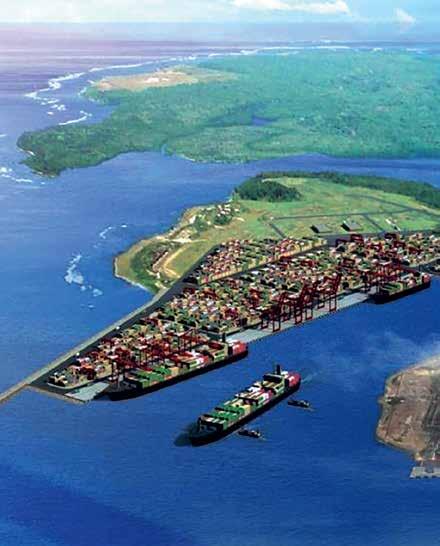
“Esta adquisición es una oportunidad estratégica para que desarrollemos e integremos aún más una plataforma logística regional”, dijo Dion Bowe, socio gerente de Notarc Latin America y recién nombrado CEO de PCCP.Además de la instalación de contenedores, Notarc también firmó un memorando de entendimiento para construir una instalación de bioenergía en Colón con la empresa estadounidense SGP BioEnergy.
CONSTRUCTION OF THE COLON CONTAINER TERMINAL IS REACTIVATED
The companies Notarc Management Group and the shipping line Mediterranean Shipping Company (MSC), strategically joined forces to reactivate the construction of the Container Terminal located on Margarita Island in the province of Colón.
The project, whose investment is 16.6% complete, is expected to restart in the fourth quarter of this year. This port facility will have a capacity for 5 million TEUS and it is estimated that around 1,000 direct jobs can be generated.
“This acquisition is a strategic opportunity for us to further develop and integrate a regional logistics platform,” said Dion Bowe, Managing Partner of Notarc Latin America and newly appointed CEO of PCCP.
In addition to the container facility, Notarc also signed a memorandum of understanding to build a bioenergy facility in Colón with the US company SGP BioEnergy.
entrada y salida de camiones en todas las terminales portuarias del país, los Presidentes de gremios de transporte de carga terrestre, miembros de COEL, junto a la AMP, la ATTT y la Gobernación de Colón realizaron un recorrido en la Terminal de Cristóbal, en la costa Atlántico de Panamá con el fin de identificar cambios y mejoras que agilicen los procesos de ingreso y salida.
COEL AUTHORITIES AND MEMBERS TOUR CRISTOBAL TERMINAL ON THE ATLANTIC COAST
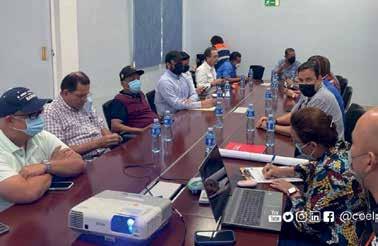
AUTORIDADES Y MIEMBROS DE COEL RECORREN TERMINAL DE CRISTÓBAL EN LA COSTA ATLÁNTICA
Producto de la mesa instalada en la Autoridad Marítima de Panamá, que tiene el fin de buscar soluciones prácticas que permitan el flujo rápido en la
Product of the table installed in the Panama Maritime Authority, which has the purpose of seeking practical solutions that allow the rapid flow in the entry and exit of trucks in all the port terminals of the country, the Presidents of land cargo transport unions, Members of COEL, together with the AMP, the ATTT and the Government of Colón, toured the Cristóbal Terminal, on the Atlantic coast of Panama, in order to identify changes and improvements that speed up the entry and exit processes.
9 LA REVISTA DEL CONSEJO EMPRESARIAL LOGÍSTICO
MOP PROMETE A GREMIOS LOGÍSTICOS ATENDER MAL ESTADO DE CALLES EN COLÓN
El ministro de Obras Públicas, Rafael Sabonge, prometió a los representantes de gremios de la industria marítima, logística y comercial, atender la deplorable situación de las vías en la provincia de Colón, luego de múltiples reclamos por parte de este sector.
El Presidente de COEL, Alberto López Tom, el Presidente de la Cámara Marítima de Panamá, Enrique Clément, el Presidente de la Cámara de Comercio de Colón, Michael Chen y el presidente de la Asociación de Usuarios de la Zona libre de Colón, Edwin Chen, se reunieron a fin de dar seguimiento al cronograma de los trabajos de mantenimiento de las principales vías de la entrada a la ciudad de Colón, así como otros puntos críticos de la conectividad terrestre del país.
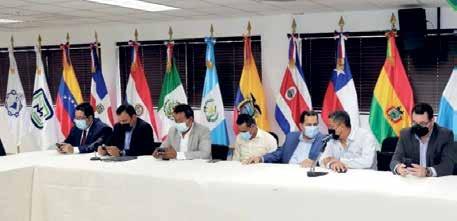
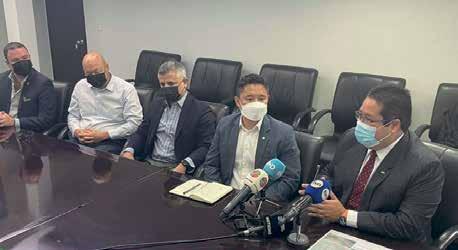
Este plan de intervención vial que se emprende con trabajos de desvío y movilización comenzará por la vía Randolph, la cual representa la columna vertebral del sector logístico de Colón y comunica a los puertos más importantes. También se estará trabajando en la vía Bolívar, la avenida Waked, la entrada de Colón, las cuales se les dará mantenimiento a través de la Concesionaria Madden Colón.
En la reunión con los gremios, el funcionario también adelantó que se estará licitando la rehabilitación de 65 kilómetros de vías dentro del distrito capital de Panamá, los cuales incluyen la vía Forestal que contempla 8 kilómetros que conectarán con el proyecto de ampliación de la vía Transístmica, desde Villa Grecia hasta la ampliación de la “Y” de Chilibre.
MOP PROMISES LOGISTICS GUILDS TO ADDRESS BAD CONDITION OF STREETS IN COLÓN
The Minister of Public Works, Rafael Sabonge, promised the representatives of unions in the maritime, logistics and commercial
industry, to attend to the deplorable situation of the roads in the province of Colón, after multiple claims by this sector.
The President of COEL, Alberto López Tom, the President of the Panama Chamber of Shipping, Enrique Clément, the President of the Colon Chamber of Commerce, Michael Chen and the president of the Association of Users of the Colon Free Zone, Edwin Chen , met in order to follow up on the schedule of maintenance work on the main entrance roads to the city of Colón, as well as other critical points of the country’s land connectivity.
This road intervention plan that is undertaken with diversion and mobilization works will begin with the Randolph road, which represents the backbone of the logistics sector of Colón and communicates with the most important ports. Work will also be carried out on the Bolívar road, Waked avenue, and the Colón entrance, which will be maintained through the Madden Colón Concessionaire.
In the meeting with the unions, the official also announced that the rehabilitation of 65 kilometers of roads within the capital district of Panama will be put out to tender, which includes the Forestal road that includes 8 kilometers that will connect with the project to expand the Transístmica road. , from Villa Grecia to the expansion of the “Y” of Chilibre.
estuvo dirigida por la Subadministradora Ana M. Reyes, la Directora de Puertos e Industrias Marítimas Auxiliares Flor Pitty y el equipo de la Dirección General de Puertos e Industrias Marítima Auxiliares. Esta comisión tiene la finalidad de tratar temas operativos y técnicos que afectan al sector y buscar rápidas soluciones para mantener la eficiencia y competitividad del sistema.
MEETING OF THE PACIFIC AND ATLANTIC FREIGHT TRANSPORTATION COMMISSION
El Presidente de COEL, Alberto López Tom y el Presidente de la Comisión de Conectividad Terrestre de COEL, Antonio García Prieto, instalaron la Comisión de Transporte de Carga del Pacífico y del Atlántico, conformada por la Autoridad Marítima de Panamá, transportistas de carga y representantes de los puertos. La reunión
The President of COEL, Alberto López Tom, and the President of the COEL Terrestrial Connectivity Commission, Antonio García Prieto, installed the Pacific and Atlantic Freight Transportation Commission, made up of the Panama Maritime Authority, cargo carriers, and representatives of the ports. The meeting was led by the Deputy Administrator Ana M. Reyes, the Director of Ports and Auxiliary Maritime Industries Flor Pitty and the team from the General Directorate of Ports and Auxiliary Maritime Industries. This commission has the purpose of dealing with operational and technical issues that affect the sector and seek quick solutions to maintain the efficiency and competitiveness of the system.
REUNIÓN DE LA COMISIÓN DE TRANSPORTE DE CARGA DEL PACÍFICO Y DEL ATLANTICO
10 LA REVISTA DEL CONSEJO EMPRESARIAL LOGÍSTICO
VOCES COEL / COEL VOICES
MESA DE TRABAJO PÚBLICO -PRIVADA, TRANSPORTE DE CARGA CONTENERIZADA
Antonio García-Prieto, Presidente de la Comisión de Conectividad Terrestre y Transporte Centroamericano de COEL, junto a representantes de ATRACAPA, SICACHI, CANATRACA y CORTRANSCAC, gremios miembros de COEL, participaron en la mesa Público-Privada sobre transporte de carga contenerizada.
Entre los acuerdos logrados destacan la conformación de
AVANCES DEL PROGRAMA DE INTEGRACIÓN LOGÍSTICA ADUANERO (PILA)
COEL participó por invitación de CECOMRO y CAMCHI en reunión sostenida con la Directora de Aduanas, Tayra Barsallo, en la cual expuso los avances del Programa de Integración Logística Aduanero (PILA) que se adelantara en Paso Canoas, y la dificultad que mantienen al existir controversia entre el Municipio de Barú y Aduanas, acerca del proceso de titulación del terreno donde se proyecta construir el nuevo Centro de Control Integrado de Frontera en Paso Canoas.
Para el sector logístico nacional y el país es indispensable la pronta y rápida acción del Gobierno Nacional y sumar al Municipio de Barú como un aliado del proyecto, con el fin de mejorar la infraestructura y procesos del paso fronterizo.
PROGRESS OF THE CUSTOMS LOGISTICS INTEGRATION PROGRAM (PILA)
COEL participated at the invitation of CECOMRO and CAMCHI in a meeting held with the Director of Customs, Tayra Barsallo, in which she presented the progress of the Customs Logistics Integration Program (PILA) that was carried out in Paso Canoas, and the difficulties that remain due to the existence of controversy between the Municipality of Barú and Customs, regarding the titling process for the land where it is planned to build the new Integrated Border Control Center in Paso Canoas.
For the national logistics sector and the country, the prompt and rapid action of the National Government is essential and add the Municipality of Barú as an ally of the project, in order to improve the infrastructure and processes of the border crossing.
un comité liderado por la Autoridad Marítima de Panamá, la realización de reuniones transversales entre los transportistas de carga terrestre con la Autoridad Nacional de Aduanas y la Autoridad del Tránsito y Transporte Terrestre, el impulso a la digitalización de los trámites y plataformas de pago, así como la realización de una inspección en Paso Canoas por parte del Ministerio de Desarrollo Agropecuario.
PUBLIC-PRIVATE WORK TABLE, TRANSPORTATION OF CONTAINERIZED CARGO
Antonio García-Prieto, President of the COEL Commission for Terrestrial Connectivity and Central American Transportation, together with representatives of ATRACAPA, SICACHI, CANATRACA and CORTRANSCAC, member unions of COEL, participated in the PublicPrivate roundtable on containerized cargo transportation.
Among the agreements reached, the formation of a committee led by the Panama Maritime Authority, the holding of transversal meetings between land cargo carriers with the National Customs Authority and the Land Traffic and Transportation Authority, the promotion of the digitization of procedures and payment platforms, as well as an inspection in Paso Canoas by the Ministry of Agricultural Development.
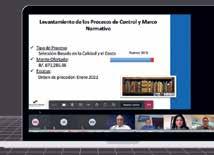
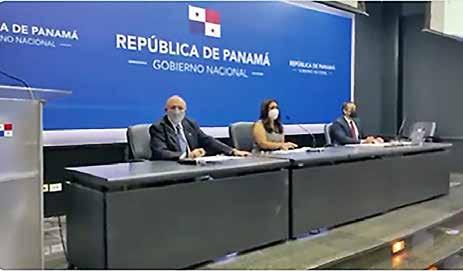
PROYECTO DE MODERNIZACIÓN DE LOS PASOS FRONTERIZOS CON COSTA RICA
Aduanas presentó el proyecto de modernización de los pasos fronterizos con Costa Rica contempla beneficios para las comunidades aledañas como empleomanía, infraestructura, urbanización, turismo, seguridad, entre otros.
PROJECT FOR THE MODERNIZATION OF BORDER CROSSINGS WITH COSTA RICA
Customs presented the project to modernize the border crossings with Costa Rica, contemplating benefits for the surrounding communities such as employment, infrastructure, urbanization, tourism, security, among others.
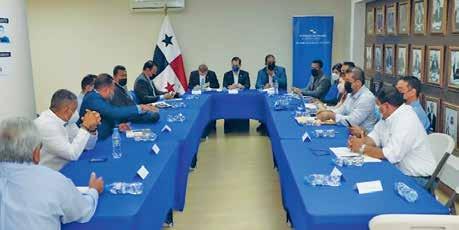
11 LA REVISTA DEL CONSEJO EMPRESARIAL LOGÍSTICO
VOCES COEL / COEL VOICES
CONFERENCIA DE PRENSA – GREMIO EMPRESARIALES ANTE LOS PAROS EN LA PROVINCIA DE COLÓN
El Presidente Alberto López Tom junto a los Presidentes de varios gremios miembros de COEL, realizaron rueda de prensa en apoyo al llamado de la Cámara de Comercio de Colón para retomar las medidas de protesta pacíficas, evitar la violencia y levantar el paro de labores que afectó por varias semanas a la Provincia de Colón.
PRESS CONFERENCE – BUSINESS ASSOCIATION BEFORE THE STRIKES IN THE PROVINCE OF COLÓN
President Alberto López Tom, together with the Presidents of several COEL member unions, held a press conference in support of the call by the Colón Chamber of Commerce to resume peaceful protest
CHIRIQUÍ IMPULSA DESARROLLO DEL SECTOR MARÍTIMO Y LOGÍSTICO
Importantes acuerdos se han concretado entre la Cámara Marítima de Panamá, la Asociación Panameña de Armadores, el Consejo Empresarial Logístico (COEL) y la Cámara de Comercio, Industrias y Agricultura de Chiriquí, con la finalidad de potenciar a esta provincia que representa hoy una importante frontera de desarrollo para Panamá, por lo que se espera afincar los procesos de inversión y de adecuación para convertirla en un pilar auxiliar dentro de la industria marítima del país.
Felipe Rodríguez, presidente de la Cámara de Comercio, Industria y Agricultura de Chiriquí, ha indicado que la idea es incrementar ese servicio auxiliar con proyectos como el de Puerto Barú. Rodríguez detalló que en Chiriquí se ha hecho un diagnóstico para poder desarrollar diferentes sectores, entre ellos el logístico, donde se detectó el potencial en esta región, especialmente en el tema marítimo auxiliar.
“Estamos buscando dar el impulso necesario al sector logístico, pues somos una puerta de entrada hacia Centroamérica con una población de más de 45 millones de habitantes. Tenemos una gran cantidad de recursos, además de los hídricos y de alimentos, con los que podemos suplir al sector marítimo y por eso, tratamos de desarrollar el proyecto de Puerto Barú. Además, hay en el proyecto, otros puertos y un puerto híbrido tipo deshuesadero con diversos servicios”, señaló.
CHIRIQUÍ PROMOTES THE DEVELOPMENT OF THE MARITIME AND LOGISTICS SECTOR

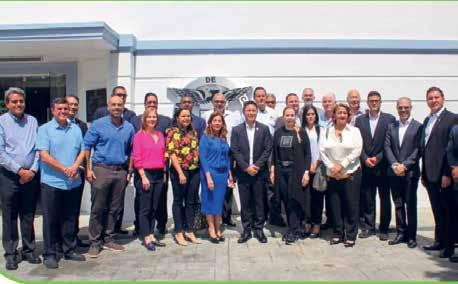
Important agreements have been concluded between the Panama Maritime Chamber, the Panamanian Association of Shipowners, the Logistics Business Council (COEL) and the Chamber of Commerce, Industry and Agriculture of Chiriquí, with the aim of empowering this province, which today represents an important development frontier for Panama, so it is expected to settle the investment and adaptation
measures, avoid violence and lift the work stoppage that affected for several weeks to the Province of Colón.
processes to turn it into an auxiliary pillar within the country’s maritime industry.



Felipe Rodríguez, president of the Chamber of Commerce, Industry and Agriculture of Chiriquí, has indicated that the idea is to increase this auxiliary service with projects such as the one in Puerto Barú. Rodríguez explained that a diagnosis has been made in Chiriquí to be able to develop different sectors, including logistics, where the potential in this region was detected, especially in the auxiliary maritime issue.
“We are seeking to give the necessary boost to the logistics sector, as we are a gateway to Central America with a population of more than 45 million inhabitants. We have a large amount of resources, in addition to water and food, with which we can supply to the maritime sector and for this reason, we try to develop the Puerto Barú project. In addition, there are other ports in the project and a hybrid port type scrapyard with various services,” he said.
12 LA REVISTA DEL CONSEJO EMPRESARIAL LOGÍSTICO
VOCES COEL / COEL VOICES
adentro del Puerto de Balboa, que
de
la zona logística que está
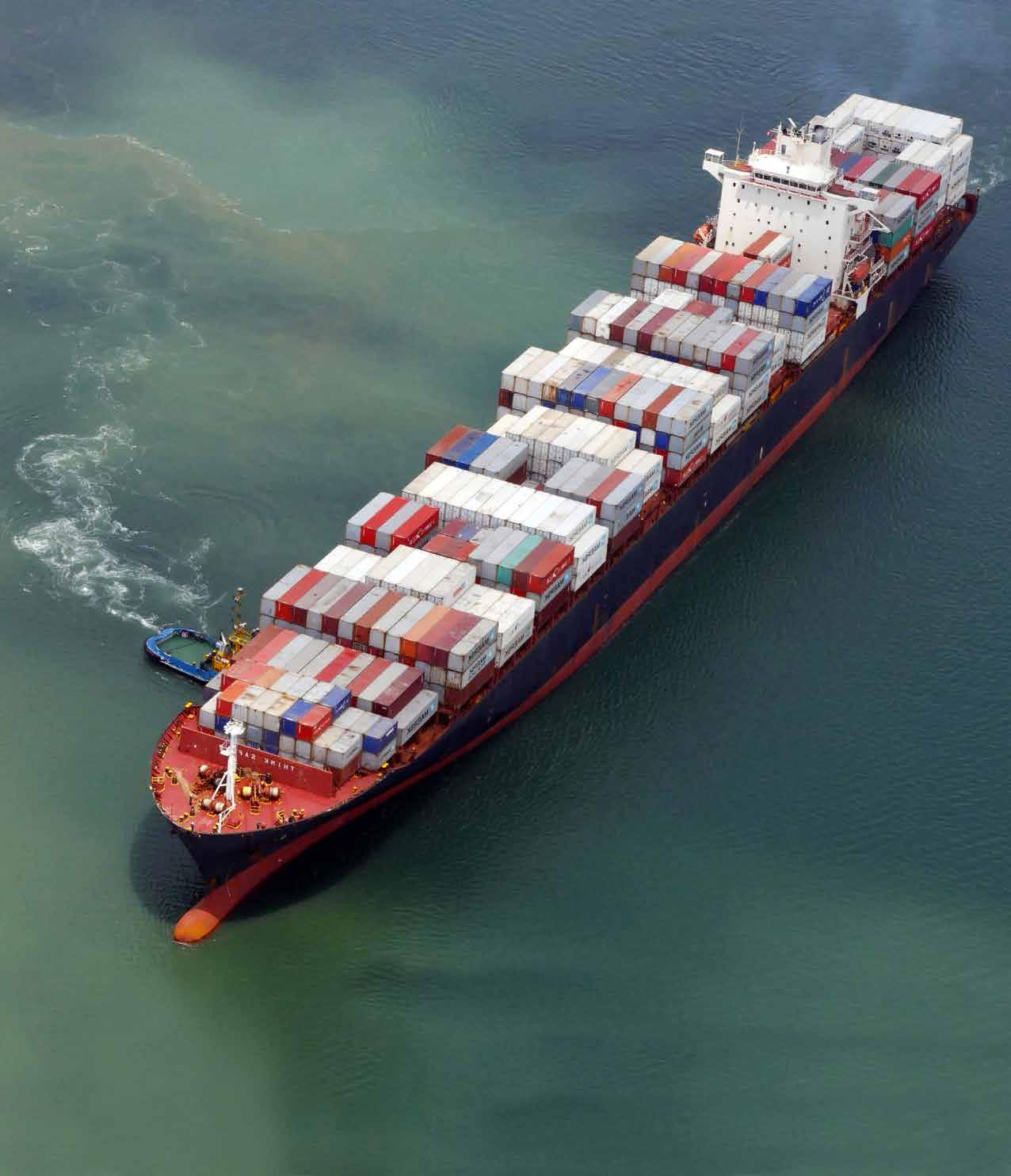



de




Es
ubicada
cuenta con una bodega
1,500 m2 acondicionada para ofrecer el servicio
crossdocking. • Más oportunidades de venta y servicio al cliente. • Más rotación de inventarios. • Reduce tiempos de tránsito. • Reduce costos de almacenamiento y transporte. • Menos documentación. • Reduce manejo de la carga. Beneficios de la zona Alternativas logísticas para estar a tiempo con tus clientes
TENDENCIAS Y CAMBIOS
EN LA INDUSTRIA DE GRAN CONSUMO
COVID
De pronto el mundo se cayó y la logística lo sostuvo. Evitó la caída inminente soportando el peso de una crisis mundial, con las herramientas con las que contaba. Una vez, el paciente global entró en recuperación y su respiración económica se volvió más estable, comenzaron a aparecer los diagnósticos posteriores y las evaluaciones pertinentes. ¿Respondió el sistema logístico ante la crisis? ¿Podría este difícil paciente, mantenerse a flote con las medicinas tradicionales de siempre?

14 LA REVISTA DEL CONSEJO EMPRESARIAL LOGÍSTICOINFORME / REPORT
POST
Un importante estudio global de Miebach Consulting que involucra a 400 empresas ubicadas en 40 países, revela los cambios que ha experimentado la cadena de suministro de Gran Consumo y los desafíos y retos que se enfrentan post pandemia, donde el campo de la automatización y la digitali zación de los procesos son relevantes.
Las empresas enfrentan una nueva realidad que las obliga a transformar estrategias a largo plazo y adelantar acciones que no tenían previsto realizar. Aquí presentamos algunos resultados.
DIGITALIZACIÓN: UN INCREMENTO EN SUS PROCESOS
El 74% de las empresas participantes en la muestra dejó estable cido que han priorizado la implementación de estrategias e-com
merce en sus negocios.
Adicionalmente a los retos tradicionales de las cadenas de sumi nistro como son los costos y el servicio al cliente, nuevas variables se suman. Según este estudio, hay un alto consenso en el aumento de protagonismo del control y la planificación de la demanda. La incertidumbre que provocó la pandemia, producto de la inestabi lidad en los procesos ha marcado profundamente en las operacio nes, generando conflictos en la producción mundial.
La digitalización, automatización y estrategia e-Commerce son áreas desafiantes pero que presentan grandes oportunidades en la actualidad. La transformación digital es el principal objetivo de las empresas según han mostrado los resultados del estudio de este año: en torno al 75% de los participantes afirma que ya ha imple mentado, está implementando o tiene previsto implementar tec nologías relacionadas con la automatización digital de procesos, el seguimiento (Track & Trace), las Control Tower o las analíticas de Big Data. Todas estas tecnologías digitales tienen como objetivo aumentar la visibilidad de los procesos y así poder adelantarse a la toma de decisiones.

En el otro lado de la moneda están las tecnologías emergentes que, aunque han hecho mucho ruido en el mercado y han creado grandes expectativas, a la hora de la verdad, siguen sin convencer a las compañías. Es el caso de la tecnología blockchain o la impresión 3D, que llevan ya cierto tiempo en el mercado, pese a lo cual cuen tan con un bajo nivel de implantación y que no han conseguido añadir el valor esperado a los procesos de las empresas.
Otras tecnologías, como por ejemplo los digital twin, han pasa do el pico de expectativas sobredimensionadas y ahora caminan por un momento de corrección al que seguirá la consolidación para retos muy concretos. En general, hay que esperar que estas tecnologías se consoliden y analizar entonces su verdadero poten cial. Las tecnologías que se consolidaron de mayor forma fueron las relacionadas con la obtención de datos (Analíticas Big Data, Torres de Control).
La nueva normalidad tras el COVID-19 ha evidenciado la difi cultad de gestionar una cadena de suministro larga y compleja, así como de retener al personal. En este sentido la digitalización es una herramienta muy eficaz, ya que permite reducir el riesgo a la hora de tomar decisiones y depender en un grado menor del factor hu mano. A las tecnologías de análisis de datos y automatización, se le une la Inteligencia Artificial: las empresas que tienen pensado comenzar a utilizar AI en sus procesos ha aumentado de un 24% a un 46% y los robots colaborativos también han subido considera blemente respecto a la edición anterior (15%).
SOSTENIBILIDAD: AVANCE LENTO PERO FIRME HACIA LA SOSTENIBILIDAD.
Según el informe, las empresas están apostando por la soste nibilidad y alrededor del 66% de los participantes ha planificado o tiene previsto planificar acciones hacia una estrategia sostenible que reduzca su impacto medioambiental. De estas empresas, un
15 LA REVISTA DEL CONSEJO EMPRESARIAL LOGÍSTICO INFORME / REPORT
40% ya las ha implantado o está en proceso de implementarlas y el 60% restante lo hará a corto plazo.
La reducción de material de embalaje es la iniciativa en la que actualmente un mayor número de empresas está trabajando y la que cuenta con un mayor porcentaje de éxito de implantación (96%), mientras que el análisis de la huella de carbono de la cade na de suministro es la actividad que se ha desarrollado con mayor frecuencia.
En cuanto al índice de éxito en las implementaciones, la media se sitúa en el 85,5%, un índice superior al de otras iniciativas no relacionadas con la sostenibilidad pero en el que todavía queda cierto margen de mejora. Si nos fijamos en Europa, este porcentaje crece. En esta zona más del 80% de las empresas ha realizado un es tudio para conocer su huella de carbono, por ejemplo. También se distingue la preferencia por reducir el impacto ambiental sobre la producción (89% de empresas) frente a la reducción sobre el trans porte (60% de empresas). La realidad es que las empresas priorizan aquellas medidas relacionadas con la sostenibilidad que, además de suponer una mejora para el medio ambiente, incrementan tam bién el nivel de eficiencia y/o los costes de la compañía.
AUTOMATIZACIÓN: EL NIVEL DE AUTOMATIZACIÓN SIGUE SIENDO VARIABLE SEGÚN LAS ÁREAS IMPLICADAS.
El principal foco de las empresas sigue estando, según refleja el estudio, en automatizar procesos en el área de almacenaje. “Esto no es ninguna novedad y es una tendencia ya observada desde los años 90 y con beneficios contrastados”, señala el informe. El proce so menos automatizado, en tanto, es la carga y descarga de camio nes, ya que los sistemas automáticos en este ámbito solo sirven para casos concretos, como por ejemplo transporte de productos entre fábricas, en cuyo caso se requieren camiones especiales no aptos para otras operaciones habituales. Los sistemas más flexibles también existen, pero no cuentan con el mismo nivel de madurez ni están tan consolidados.
“Si comparamos los resultados de automatización actuales con los de hace dos años, vemos que según los participantes se ha pro ducido un incremento del picking de cajas automático del 11%. Esto se debe a que los pedidos cada vez están más fragmentados y requieren más niveles de picking. El grado de automatización previsto en el área del picking unitario también ha crecido en los últimos años (9%), pese a que está operativa sigue desarrollándose de forma muy manual (43%). Esto es debido a que los volúmenes de picking unitario no son lo suficientemente elevados como para justificar una inversión rentable”, se desprende como conclusión en el estudio.
OMNICANALIDAD: MÁS PROTAGONISMO DE LOS ALMACENES
Al desglosar los resultados de la encuesta realizada por la con sultora, el porcentaje de empresas que están, por ejemplo, utilizan do marketplaces para distribuir los productos a sus clientes es del 28%. No obstante, centrándonos en el segundo tramo de respues
tas se ve que la apuesta a un futuro inmediato es hacia las entregas directas (28% contra 19%).
“La mayoría de las empresas de Gran Consumo ya cuenta con el canal de distribución directo al consumidor (D2C). Es un canal que se utiliza para probar, por ejemplo, innovaciones, packs especiales o regalos. También se usa para poder interactuar directamente con el cliente y así conocer mejor sus necesidades y preferencias. En general este canal no está pensado para hacer la competencia a los retailers y no suele representar un volumen significativo”, se señala en el informe.
Otro aspecto destacable de analizar es el interés que tienen las empresas por establecer su estrategia de distribución en base a un almacén omnicanal. “Tradicionalmente, las empresas prefieren ex ternalizar las ventas online, pero en esta edición el 71% de las em presas participantes ha manifestado optar por un almacén omnica nal versátil que le permita centralizar todos los pedidos a diferentes canales en un mismo sitio”, sostiene el estudio. (Fuente:LOGISTEC)
TRENDS AND CHANGES IN THE POST-COVID FMCG INDUSTRY
Suddenly the world fell and logistics sustained it. He averted the impending downfall by bearing the brunt of a global crisis, with the tools at his disposal. Once the overall patient entered recovery and his economical breathing became more stable, subsequent diagnoses and relevant evaluations began to appear. Did the logistics system respond to the crisis? Could this difficult patient stay afloat with the same old traditional medicines?
An important global study by Miebach Consulting that involves 400 companies located in 40 countries, reveals the changes that the FMCG supply chain has undergone and the challenges that are being faced post-pandemic, where the field of automation and digitalization of the processes are relevant.
Companies face a new reality that forces them to transform longterm strategies and take actions that they had not planned to carry out. Here we present some results.
DIGITIZATION: AN INCREASE IN YOUR PROCESSES
74% of the companies participating in the sample established that they have prioritized the implementation of e-commerce strategies in their businesses.
16 LA REVISTA DEL CONSEJO EMPRESARIAL LOGÍSTICOINFORME / REPORT






In addition to the traditional challenges of supply chains such as costs and customer service, new variables are added. According to this study, there is a high consensus on the increased role of demand control and planning. The uncertainty caused by the pandemic, as a result of the instability in the processes, has deeply marked operations, generating conflicts in world production.
Digitization, automation and e-Commerce strategy are challenging areas but present great opportunities today. Digital transformation is the main objective of companies as shown by the results of this year’s study: around 75% of the participants state that they have already implemented, are implementing or plan to implement technologies related to the digital automation of processes, tracking (Track & Trace), Control Tower or Big Data analytics. All these digital technologies aim to increase the visibility of processes and thus be able to anticipate decision-making.
On the other side of the coin are the emerging technologies that, although they have made a lot of noise in the market and have created great expectations, when it comes to truth, they still do not convince companies. This is the case of blockchain technology or 3D printing, which have been on the market for some time, despite which they have a low level of implementation and have not managed to add the expected value to company processes.
Other technologies, such as digital twins, have passed the peak of oversized expectations and are now going through a moment of correction that will be followed by consolidation for very specific challenges. In general, we must wait for these technologies to be consolidated and then analyze their true potential. The most consolidated technologies were those related to data collection (Big Data Analytics, Control Towers).
The new normal after COVID-19 has highlighted the difficulty of managing a long and complex supply chain, as well as retaining staff. In this sense, digitization is a very effective tool, since it allows reducing risk when making decisions and depending to a lesser degree on the human factor. Artificial Intelligence is added to data analysis and automation technologies: companies that plan to start using AI in their processes have increased from 24% to 46% and collaborative robots have also risen considerably compared to the previous edition (15%).
SUSTAINABILITY: SLOW BUT STRONG PROGRESS TOWARDS SUSTAINABILITY.
According to the report, companies are betting on sustainability and around 66% of the participants have planned or plan to plan actions towards a sustainable strategy that reduces their environmental impact. Of these companies, 40% have already implemented them or are in the process of implementing them and the remaining 60% will do so in the short term.
The reduction of packaging material is the initiative on which the largest number of companies are currently working and the one with the highest percentage of successful implementation (96%), while the analysis of the carbon footprint of the supply chain Supply is the activity that has been developed most frequently.
Regarding the rate of success in the implementations, the average
is 85.5%, a rate higher than that of other initiatives not related to sustainability but in which there is still some room for improvement. If we look at Europe, this percentage grows. In this area, more than 80% of the companies have carried out a study to find out their carbon footprint, for example. There is also a preference for reducing the environmental impact on production (89% of companies) compared to reducing transport (60% of companies). The reality is that companies prioritize those measures related to sustainability that, in addition to improving the environment, also increase the company’s level of efficiency and/or costs.
AUTOMATION: THE LEVEL OF AUTOMATION REMAINS VARIABLE ACCORDING TO THE AREAS INVOLVED.
The main focus of companies continues to be, as reflected in the study, on automating processes in the storage area. “This is nothing new and it is a trend that has already been observed since the 1990s and with proven benefits,” says the report. The least automated process, meanwhile, is the loading and unloading of trucks, since automatic systems in this area are only used for specific cases, such as the transport of products between factories, in which case special trucks are required that are not suitable for other usual operations. More flexible systems also exist, but they do not have the same level of maturity or are as consolidated.
“If we compare the current automation results with those of two years ago, we see that according to the participants there has been an 11% increase in automatic case picking. This is because orders are increasingly fragmented and require more levels of picking. The degree of automation planned in the area of unit picking has also grown in recent years (9%), despite the fact that it is operational, it continues to be carried out very manually (43%). This is due to the fact that unit picking volumes are not high enough to justify a profitable investment”, the study concludes.
OMNI-CHANNELNESS: MORE PROTAGONISM OF STORES
When breaking down the results of the survey carried out by the consultant, the percentage of companies that are, for example, using marketplaces to distribute products to their clients is 28%. However, focusing on the second section of responses, we see that the bet for the immediate future is towards direct deliveries (28% against 19%).
“Most FMCG companies already have a direct-to-consumer distribution channel (D2C). It is a channel that is used to test, for example, innovations, special packs or gifts. It is also used to be able to interact directly with the client and thus better understand their needs and preferences. In general, this channel is not designed to compete with retailers and does not usually represent a significant volume”, the report states.
Another noteworthy aspect to analyze is the interest that companies have in establishing their distribution strategy based on an omnichannel warehouse. “Traditionally, companies prefer to outsource online sales, but in this edition, 71% of the participating companies have stated that they opt for a versatile omnichannel warehouse that allows them to centralize all orders to different channels in the same place,” says the study. (Source: LOGISTEC)
18 LA REVISTA DEL CONSEJO EMPRESARIAL LOGÍSTICO
INFORME / REPORT
LA OPORTUNIDAD DE ABRIR NUEVOS MERCADOS
Eppur si muove (“y sin embargo, se mueve”), es la frase que se atribuye a Galileo Galilei quien, en medio de un juicio, después de haber sido obligado a retractarse en sostener que la Tierra giraba alrededor del sol, afirman que se le escucho decir, con preocupación y entre dientes.
A una conclusión similar podemos llegar hoy al ver que, a pesar de los grandes retos que ha representado para el comercio mundial y para las cadenas de suministro en general, la crisis sanitaria del 2021, el mercado se sigue moviendo. Con cambios, giros, nuevos retos, pero se mueve.
 NEARSHORING:
NEARSHORING:
19 LA REVISTA DEL CONSEJO EMPRESARIAL LOGÍSTICO TENDENCIAS / TRENDS
Anivel
global, las industrias especialmente manufactureras, siempre apostaron por establecerse en Asia donde en contraban bajos costos operativos y de producción, baja mano de obra y posibilidad para manejar operaciones di versificadas. La pandemia ha hecho que se reconfigure el tablero re percutiendo directamente en las estrategias comerciales globales. ¿Qué ha cambiado? Las empresas desean manejar sus operaciones más cerca de sus clientes, no tener tanta distancia entre el produc tor y el consumidor final y así evitar largas distancias y diferencias horarias que generalmente perjudica a la cadena de suministros.
La gran lección ha sido y es que hay factores de riesgo externos como una pandemia de salud global que incide en las operaciones de las industrias y que pueden llevar, como lo acabamos de vivir en carne propia, que las operaciones se paralicen por un agente externo global que no podemos controlar.
Es allí donde la tendencia hacia el nearshoring o deslocalización se vuelve más creciente y con buenas perspectivas.
El nearshoring –afirman los expertos- es la estrategia de exter nalización por la que una empresa transfiere parte de su producción a terceros que, a pesar de ubicarse en otros países, están localizados en destinos cercanos y con una zona horaria semejante. Esta práctica nace en respuesta al offshoring, que busca más bien reducir los costos buscando proveedores en otros desti nos, generalmente en Asia.

Otras ventajas que ofrece el nearshoring como una nueva estrategia operativa es que, bajo este modelo de proceso, una empresa acerca sus centros de producción tercerizada; transfiere los procesos operativos del negocio incluyendo tecnolo gía, incurre en mejores costos y menor tiempo de entrega, y mejora también el estudio de mercado regional o por país, ayudando a las empresas a tener mayor control de la demanda y de las necesida des de su cliente.
Para el Banco Interamericano de Desarrollo (BID), el nearsho ring es un nuevo producto que quieren promover. Según sus cál culos, la ganancia potencial para América Latina y el Caribe en el corto y mediano plazo podrían representar un aumento de hasta $78 millones en nuevas exportaciones de bienes y servicios, con importantes oportunidades para la región en industrias como la automotriz, textil, farmacéutica y energías renovables, entre otros.
La cifra de $78.000 millones refiere $64.000 millones en comer cio de bienes y $14.000 millones en comercio de servicios. Para Mauricio Claver-Carone, presidente del BID “México y Brasil ten drían las mayores oportunidades, aunque todos los países se be neficiarían. En el caso de Panamá, se registraría un aumento de las exportaciones de bienes y servicios por $802 millones”.
El tema pasa por la reconfiguración de las cadenas globales de suministro, las tendencias en materia de sostenibilidad del comer cio y cambio climático y la creciente digitalización de la economía
para que América Latina y El Caribe, puedan ver reflejados los be neficios del nearshoring ya que, según señala el experto, en estos segmentos ocurre más del 50 % del intercambio comercial y ya existe un aumento de 80 mil millones en exportaciones por año, que son calificados como oportunidades a corto plazo que ofrece esta nueva tendencia de estrategia comercial.
NEARSHORING EN PANAMÁ
Las ventajas competitivas de Panamá como Hub marítimo y logístico interoceánico, sumado a una estructura multimodal que ofrece beneficios tributarios, migratorios, laborales y aduaneros; abren el abanico de posibilidades para que el sistema de nearsho ring logre atraer a mayor inversión extranjera que quiera establecer operaciones de manufactura y exportación en Panamá.
Buscando incentivar la competitividad y la atracción de inversio nes, el Ministerio de Comercio e Industrias creó el régimen especial de Sedes de Empresas Multinacionales (SEM), y el Régimen Especial para el Establecimiento y la Operación de Empresas Multinaciona les para la Prestación de Servicios relacionados con la Manufactura (EMMA).
Ambos instrumentos legales con regíme nes especiales ya han tenido resultados. A marzo de 2022, Panamá cuenta con 178 licen cias SEM de manufactura, transporte y logísti ca, tecnología, telecomunicaciones, químicos básicos e industriales, farmacéuticas, energía, petróleo y gas, ingeniería y construcción pro venientes de Estados Unidos, China, Suiza, Ho landa y Alemania.
El régimen EMMA – que protege los pro ductos establecidos en zonas económicas especiales, zonas libre, o zonas francas y brinda incentivos arancelarios - busca incrementar la generación de empleos y transferencia de conocimientos tec nológicos a través de los servicios de manufactura, ensamblaje, re-manufactura, acondicionamiento, mantenimiento y reparación de productos, además de servicios logísticos que incluye.
En mayo de este año empresa AEGIR MARINE se convirtió en la primera empresa en obtener una licencia EMMA, brindando sopor te estratégico, técnico y servicios de ensamblaje de piezas de sella do y propulsión. Actualmente, tienen presencia en los Países Bajos, Singapur, Shanghái, Namibia, Estados Unidos y Emiratos Árabes.
Se espera que muchas más empresas confíen en Panamá y vean el potencial que ofrece para operaciones logísticas de near shoring. El camino no es rápido, pero sí prometedor. Es necesario, como señalan los líderes de la región que se fortalezcan las cade nas de valor, que se reconfiguren las cadenas de suministro, que el comercio sea económica y socialmente sostenible para proteger al mundo con los cambios climáticos y eventualidades; y crear las alianzas público-privadas necesarias que permitan la plataforma de ejecución que esta nueva tendencia requiere. (REVISTA CONEXIÓN. META 2022.)
20 LA REVISTA DEL CONSEJO EMPRESARIAL LOGÍSTICOTENDENCIAS / TRENDS
NEARSHORING: THE OPPORTUNITY TO OPEN NEW MARKETS
Eppur si muove (“and yet it moves”), is the phrase attributed to Galileo Galilei who, in the midst of a trial, after being forced to retract his claim that the Earth revolved around the sun, affirmed that he was heard to say, with concern and between his teeth.
We can reach a similar conclusion today when we see that, despite the great challenges that the 2021 health crisis has represented for world trade and for supply chains in general, the market continues to move. With changes, turns, new challenges, but it moves.
At a global level, especially manufacturing industries, have always opted to establish themselves in Asia where they found low operating and production costs, low labor force and the possibility of managing diversified operations. The pandemic has reconfigured the board, directly impacting global business strategies. What has changed? Companies want to manage their operations closer to their customers, not having so much distance between the producer and the final consumer and thus avoid long distances and time differences that generally harm the supply chain.
The great lesson has been and is that there are external risk factors such as a global health pandemic that affects the operations of the industries and that can lead, as we have just experienced firsthand, to the operations being paralyzed by an external agent. global that we cannot control.
It is there where the trend towards nearshoring or relocation becomes more growing and with good prospects.
Nearshoring, experts say, is the outsourcing strategy by which a company transfers part of its production to third parties that, despite being located in other countries, are located in nearby destinations and with a similar time zone. This practice is born in response to offshoring, which rather seeks to reduce costs by seeking suppliers in other destinations, generally in Asia.
Other advantages offered by nearshoring as a new operational strategy is that, under this process model, a company brings its outsourced production centers closer together; it transfers the operational processes of the business including technology, incurs better costs and shorter delivery times, and also improves the study of the regional or country market, helping companies to have greater control of the demand and needs of their client.
For the Inter-American Development Bank (IDB), nearshoring is a new product that they want to promote. According to his calculations, the potential gain for Latin America and the Caribbean in the short and medium term could represent an increase of up to $78 million in new exports of goods and services, with important opportunities for the region in industries such as the automotive, textile, pharmaceutical and renewable energies, among others.
The figure of $78,000 million refers to $64,000 million in trade in goods and $14,000 million in trade in services. For Mauricio ClaverCarone, president of the IDB, “Mexico and Brazil would have the greatest opportunities, although all countries would benefit. In the
case of Panama, there would be an increase in exports of goods and services for $802 million”.
The issue goes through the reconfiguration of global supply chains, trends in trade sustainability and climate change and the growing digitalization of the economy so that Latin America and the Caribbean can see the benefits of nearshoring reflected since, according to points out the expert, in these segments more than 50% of the commercial exchange occurs and there is already an increase of 80 billion in exports per year, which are qualified as short-term opportunities offered by this new trend in commercial strategy.
NEARSHORING IN PANAMA
The competitive advantages of Panama as an interoceanic maritime and logistics hub, added to a multimodal structure that offers tax, immigration, labor and customs benefits; They open the range of possibilities for the nearshoring system to attract more foreign investment that wants to establish manufacturing and export operations in Panama.
Seeking to encourage competitiveness and attract investment, the Ministry of Commerce and Industry created the special regime for Multinational Company Headquarters (SEM), and the Special Regime for the Establishment and Operation of Multinational Companies for the Provision of Services related to the Manufacturing (EMMA).
Both legal instruments with special regimes have already had results.
As of March 2022, Panama has 178 SEM licenses for manufacturing, transportation and logistics, technology, telecommunications, basic and industrial chemicals, pharmaceuticals, energy, oil and gas, engineering and construction from the United States, China, Switzerland, the Netherlands and Germany.
The EMMA regime - which protects products established in special economic zones, free zones, or free zones and provides tariff incentives - seeks to increase the generation of jobs and transfer of technological knowledge through manufacturing, assembly, re-manufacturing, conditioning, maintenance and repair of products, as well as logistics services that it includes.
In May this year, AEGIR MARINE company became the first company to obtain an EMMA license, providing strategic, technical support and assembly services for sealing and propulsion parts. Currently, they have a presence in the Netherlands, Singapore, Shanghai, Namibia, the United States and the United Arab Emirates.
Many more companies are expected to trust Panama and see the potential it offers for nearshoring logistics operations. The road is not fast, but it is promising. It is necessary, as the leaders of the region point out, that value chains be strengthened, that supply chains be reconfigured, that trade be economically and socially sustainable to protect the world from climate change and eventualities; and create the necessary publicprivate alliances that allow the execution platform that this new trend requires. (CONNECTION MAGAZINE. 2022 META).
21 LA REVISTA DEL CONSEJO EMPRESARIAL LOGÍSTICO TENDENCIAS / TRENDS
PANAMÁ, ¿Camino a la desglobalización?
El 16 de junio de 2022, el presidente Biden firmó el Ocean Shipping Reform Act, una Ley introducida por la Senadora Amy Klobuchar (demócrata de Minesota) S.3580, y el Congreso No. 117 que busca mejorar la competitividad en la industria marítima en EE. UU .
La Ley, fortalece la autoridad de la Comisión Marítima Federal, que es la agencia reguladora de la industria, para regular el transporte marítimo de una manera que impulse el crecimiento y desarro llo de las exportaciones de EE.UU. Esto lo realiza asegurándose de que el siste ma marítimo es competitivo, eficiente y económico.
Entre otras cosas, la Ley le permite a la Comisión, investigar quejas sobre los car gos de detención y demoras que imponen las navieras 2) determinar si los cargos son razonables 4) ordenar retornos de dinero por cargos que considere que no son razonables.
La Ley también prohíbe a las navieras, operadores marítimos y a transportistas intermediarios cancelar o no permitir espacio a carga cuando el mismo esté disponible o cancelar espacio utili zando otros métodos discriminatorios. Además, incluye una cláu sula que indica que la Comisión puede trabajar en cualquier otro problema que considere necesita evaluar o ajustarse por medio de leyes.
LA LEY:
• Fortalece el registro de mercados de carga marítimos estadou

nidense e inmuniza a los dueños de la carga de retaliaciones por parte de las navieras.
• Aumenta la transparencia, requiriendo que la comisión presente un informe trimestral de las toneladas de importación y expor tación y de los contenedores vacíos y llenos por buque operado y naviera. Además, cada puerto, operador de terminal, y dueño de chasis o proveedor de chasis con flotas mayores a 50 también reportaran la data a la Comisión.
A más tardar el 1 de abril de 2023, la Comisión Marítima Federal deberá celebrar un acuerdo con la Junta de Investigación de Trans porte de las Academias Nacionales de Ciencias, Ingeniería y Medici na en virtud del cual la Junta de Investigación de Transporte llevará a cabo un estudio y desarrollará las mejores prácticas para grupos de terminales de chasis o cercanos a la terminal que brindan ser vicio a operadores de terminales marítimos, auto transportistas, fe rrocarriles y otras de las partes interesadas que utilizan los grupos de chasis, con el objetivo de optimizar la eficiencia y eficacia de la cadena de suministro.
Un artículo interesante es el artículo 24: USO DE PUERTOS IN TERIORES DE LOS ESTADOS UNIDOS PARA ALMACENAMIENTO Y TRANSFERENCIA DE CONTENEDORES DE CARGA.
 Biden firma el “Ocean Shipping Reform Act”
POR: EDDIE TAPIERO/ COMISIÓN DE INVESTIGACIONES LOGÍSTICAS
Biden firma el “Ocean Shipping Reform Act”
POR: EDDIE TAPIERO/ COMISIÓN DE INVESTIGACIONES LOGÍSTICAS
22 LA REVISTA DEL CONSEJO EMPRESARIAL LOGÍSTICOOPINIÓN / OPINION
EL ARTÍCULO INDICA QUE:
(a) Reunión.—A más tardar 90 días después de la fecha de pro mulgación de esta Ley, el Subsecretario de Política de Transporte, en consulta con el Administrador de la Administración Marítima y el Pre sidente de la Comisión Marítima Federal, convocará a una reunión de representantes de las entidades descritas en la subsección
(b) para discutir la viabilidad y las estrategias para identificar te rrenos federales y no federales, incluidos los puertos interiores, con el fin de almacenar y transferir contenedores de carga debido a la congestión portuaria.
Los que apoyan la ley la perciben como una manera de redu cir una de las más grandes fuentes de inflación y el de tratar de reducir las presiones en las cadenas de valor. Los que se opo nen, indican que la situación actual son resultados del mercado y que el gobierno continúa con su tendencia de intervenir en el mercado.
Sin embargo, una opinión más profunda es que la Ley es otro paso más hacia la desglobalización. El transporte marítimo ha evo lucionado hacia mayor complejidad con muchísimos actores que incluyen no solo a las navieras, los puertos y a los operadores de las terminales, sino también a muchos intermediarios y agentes que se encargan de consolidar, distribuir, financiar, almacenar y hasta empaquetar ciertas cargas.
En los últimos dos años, las cadenas de valor han estado con gestionadas por episodios especiales como el COVID-19 y más re cientemente la guerra entre Rusia y Ucrania. El expandir el poder para la regulación de la industria basada en términos como “efi ciente”, “económico” y “razonable”, es muy difícil dada la relatividad de esos términos.
Además, dado que los buques son en realidad plantas mó viles con banderas, tripulaciones, dueños y banqueros que se pueden encontrar en distintas partes del mundo, el impacto puede ser negativo en cuanto a que los costos de monitori zación, compliance y hasta seguros, pueden aumentar y no se sabe si también pueden incluirse quejas sobre cargos por rutas especiales en el exterior o no. Esta situación es parecida (no si milar) a cuando se comenzaron a regular los ferrocarriles, lo cual resultó en una caída significativa en los márgenes y un deterioro en la eficiencia del sistema ferroviario que tuvo que ser apoyado por subsidios.
Un aspecto más oscuro, es que la Ley también se enfoca en la promoción de las importaciones y de las exportaciones y esto puede crear espacios para que la geopolítica limite el transporte de ciertas partes del mundo y con ello, el comercio marítimo en general.

Para Panamá, la ley es una alerta. El mundo globalizado está cambiando hacia una desglobalización. Esto tiene el potencial de reducir el comercio marítimo, la inversión y el crecimiento econó mico a largo plazo. Por esta razón, se debe mejorar y actualizar la Estrategia Logística 2030 para incorporar, principalmente, los cam bios geopolíticos en el entorno.

“Los que apoyan la ley la perciben como una manera de reducir una de las más grandes fuentes de inflación y el de tratar de reducir las presiones en las cadenas de valor.”
23 LA REVISTA DEL CONSEJO EMPRESARIAL LOGÍSTICO OPINIÓN / OPINION
PANAMA,ONTHEWAY TO DEGLOBALIZATION?
On June 16, 2022, President Biden signed the Ocean Shipping Reform Act, an Act introduced by Senator Amy Klobuchar (Democrat of Minnesota) S.3580, and the 117th Congress that seeks to improve competitiveness in the maritime industry in USA
The Act strengthens the authority of the Federal Maritime Commission, which is the industry’s regulatory agency, to regulate shipping in a way that encourages the growth and development of US exports. It does this by ensuring that the maritime system is competitive, efficient and economical.
Among other things, the Act allows the Commission to investigate complaints about detention and delay charges imposed by shipping companies 2) determine if the charges are reasonable 4) order refunds for charges that it considers to be unreasonable.
The Law also prohibits shipping companies, maritime operators and intermediary carriers from canceling or not allowing cargo space when it is available or canceling space using other discriminatory methods. In addition, it includes a clause that indicates that the Commission can work on any other problem that it considers needs to be evaluated or adjusted through legislation.
THE LAW:
• Strengthens the registry of US maritime cargo markets and immunizes cargo owners from retaliation by shipping companies.
• Increases transparency by requiring the commission to submit a quarterly report of import and export tons and empty and full containers by operated vessel and carrier. In addition, each port, terminal operator, and chassis owner or chassis supplier with fleets greater than 50 will also report the data to the Commission.
No later than April 1, 2023, the Federal Maritime Commission shall enter into an agreement with the Transportation Research Board of the National Academies of Sciences, Engineering, and Medicine under which the Transportation Research Board will conduct a study and develop best practices for chassis or near-terminal terminal groups serving marine terminal operators, motor carriers, railroads, and other stakeholders using chassis groups, with the aim of optimizing the
efficiency and effectiveness of the supply chain
An interesting article is article 24: USE OF INTERIOR PORTS OF THE UNITED STATES FOR STORAGE AND TRANSFER OF CARGO CONTAINERS.
The article indicates that:
(a) Meeting.—Not later than 90 days after the date of enactment of this Act, the Undersecretary for Transportation Policy, in consultation with the Administrator of the Maritime Administration and the President of the Federal Maritime Commission, shall convene a meeting of representatives of the entities described in subsection (b) to discuss the feasibility and strategies for identifying federal and non-federal land, including inland ports, for the purpose of storing and transferring cargo containers due to port congestion.
Supporters of the law see it as a way to reduce one of the biggest sources of inflation and to try to reduce pressures on value chains. Those who oppose it, indicate that the current situation is a result of the market and that the government continues with its tendency to intervene in the market.
However, a deeper view is that the Law is yet another step towards deglobalization. Maritime transport has evolved towards greater complexity with many actors that include not only shipping lines, ports and terminal operators, but also many intermediaries and agents that are in charge of consolidating, distributing, financing, storing and even packaging certain loads.
In the last two years, the value chains have been congested by special episodes such as COVID-19 and more recently the war between Russia and Ukraine. Expanding the power to regulate the industry based on terms like “efficient”, “economic” and “reasonable” is very difficult given the relativity of those terms.
In addition, since the ships are actually mobile plants with flags, crews, owners and bankers that can be found in different parts of the world, the impact can be negative in that monitoring, compliance and even insurance costs can increase. and it is not known whether complaints about charges for special routes abroad can also be included or not. This situation is similar (not similar) to when the railways began to be regulated, which resulted in a significant drop in margins and a deterioration in the efficiency of the railway system that had to be supported by subsidies.
A darker aspect is that the Law also focuses on the promotion of imports and exports and this can create spaces for geopolitics to limit the transport of certain parts of the world and with it, maritime trade in general.
For Panama, the law is an alert. The globalized world is changing towards deglobalization. This has the potential to reduce maritime trade, investment and long-term economic growth. For this reason, the 2030 Logistics Strategy must be improved and updated to incorporate, mainly, the geopolitical changes in the environment.
EDDIE
24 LA REVISTA DEL CONSEJO EMPRESARIAL LOGÍSTICOOPINIÓN / OPINION
Bidensignsthe“OceanShippingReformAct”
TAPIERO/ LOGISTICS INVESTIGATIONS COMMISSION

Gestión del conocimiento en el sector logístico, ¿cómo hacerlo una realidad?

Panamá cuenta con un ADN logístico que ha desarrollado debido a su ubicación geopolítica y que le posiciona como uno de los países más importantes en el mundo en esta área. La experiencia de haber liderado esta industria por muchos años, permite afirmar que contamos en nuestro país con el capital humano mejor formado y más especializado en el área, pues finalmente son las personas las que desarrollan una industria y aprenden cómo hacerla cada vez mejor.
darle, exigiendo de las empresas el desarrollo de nuevas formas de ofrecer sus servicios.
POR: ADRIANA ANGARITA/ DIRECTORA Y FUNDADORA DE SÉNECALAB
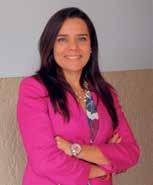
Para que esta presencia de nuestro país en el mundo de la logística sea sostenible y mantengamos este liderazgo, exige tener una gestión del conocimiento estructurada, ordenada y permanente, donde se poten cie la experiencia desarrollada con la inno vación, la investigación, la actualización y la formación académica, que complemen ta e incrementa ese desarrollo en los años, en relación con los demás países.
Sin embargo, este es un tema que no hemos podido robustecer en nuestro país, con las características que se requieren en prácticamente ninguna de las industrias que desarrollamos. Existe una brecha amplia entre los generadores de conocimiento y los desarrolladores de la industria, que no sólo afecta las posibilidades de empleabilidad de los jóvenes, sino la ge neración de capacidades que permitan a las empresas responder a los desafíos que se encuentran día a día en el sector.
Adicional a esto, nuestra sociedad está en un proceso de transi ción acelerado, lo que la hace volátil, impredecible y abrumadora. Estamos presenciando cambios profundos en la forma como nos comunicamos, comercializamos y desarrollamos todas las indus trias del mundo. La tecnología después de la pandemia no sólo ha sido ampliamente aceptada, sino demandada por las empresas, cambiando prácticamente sus modelos de negocios. El cliente hoy en día busca las mejores y mayores facilidades que puedan brin
Esto nos obliga a trascender de la discusión del desafío a ac cionar sobre la solución, especialmente viéndonos todos como parte de ella. La vieja rutina de la queja y el cuestionamiento del rol que los actores parte del sistema de gestión del conocimien to han dejado de hacer, no aporta en el avance hacia la solución. Habiendo sido rectora de dos universidades particulares en Pana má, presidente de la Asociación de Universidades Particulares de Panamá, miembro del Consejo Nacional de Autoevaluación en representación de la empresa privada, asesora permanente de la Red de Universidades privadas de Latinoamérica, miembro de la Junta Directiva del CONEP y de APEDE, puedo confirmar sin miedo a equivocarme, que todos los actores tienen la preocupación, vo luntad y la intención de accionar en la solución.
Dicho esto, desde mi perspectiva, la forma de llevarla a cabo es establecer espacios de comunicación genuinos e igualitarios, con los temas que preocupan, incomodan, debilitan e incluso molestan entre las partes, incluyendo en esta conversación a universidades tanto públicas como privadas. Los diferentes tipos de gestión en las Universidades facilitan o complejizan aspectos que las hacen complementarias en los resultados. De igual forma desde el sector productivo la disposición de los líderes gremiales y empresariales, deberá mantenerse en el tiempo y con la misma intensidad para lograr que estos acuerdos y confianza con las Instituciones educati vas, no sólo se mantengan sino florezcan consolidándose en todas las áreas que pueden desarrollarse de manera conjunta.
Existe un aspecto de marco regulatorio que limita a las univer sidades privadas y que debemos unir esfuerzos para cambiar, en este objetivo conjunto de lograr tener mayor actualización en las aulas (perfil cuerpo docente), mejor investigación aplicada y una conversación permanente con personal dedicado para tener re sultados puntuales, medibles y eficientes. Para esto será muy im portante contar con aliados en estas revisiones legislativas como el CONEAUPA, quien, con la presidencia del ministerio de educación, monitorea el resultado en términos de calidad de las universidades como Instituciones y de los programas que imparten.
Para lograr un cambio trascendental en los resultados en nues
26 BENCHMARKING
tro país, que recoja a la población que se forma en las universidades y correspondiente a 170.000 estudiantes, no será posible con accio nes o esfuerzos independientes al sistema educativo, estos tendrán costos muy altos e impactos fugaces; es necesario desarrollar esta relación universidad-empresa-estado-sociedad civil, para conso lidar un ecosistema maduro, ágil, innovador y suficiente para los desafíos que deparan estas épocas inciertas y cambiantes.
El camino no es fácil ni rápido, pero sumamente necesario e ina plazable, ya que de lo contrario estaremos ad-portas de perder la hegemonía, liderazgo y competitividad de la logística en uno de los sectores que ha generado más empleos, ingresos y orgullo para nuestro país. La pregunta es, ¿estamos dispuestos a hacerlo?
Post-pandemic technology has not only been widely accepted, but demanded by companies, practically changing their business models. The client today seeks the best and greatest facilities that can be provided, demanding from companies the development of new ways of offering their services.
This forces us to transcend the discussion of the challenge to act on the solution, especially seeing ourselves as part of it. The old routine of complaining and questioning the role that the actors part of the knowledge management system have stopped doing, does not contribute to progress towards a solution. Having been rector of two private universities in Panama, president of the Association of Private Universities of Panama, member of the National Self-Assessment Council on behalf of private companies, permanent advisor to the Network of Private Universities of Latin America, member of the Board of Directors of the CONEP and APEDE, I can confirm without fear of being wrong, that all the actors have the concern, will and intention to act on the solution.
KNOWLEDGE MANAGEMENT INTHELOGISTICSSECTOR, HOW TO MAKE IT A REALITY?
BY: ADRIANA ANGARITA/ DIRECTOR AND FOUNDER OF SÉNECALAB
Panama has a logistics DNA that it has developed due to its geopolitical location and that positions it as one of the most important countries in the world in this area. The experience of having led this industry for many years, allows us to affirm that in our country we have the best trained and most specialized human capital in the area, because ultimately it is the people who develop an industry and learn how to make it better and better.
For this presence of our country in the world of logistics to be sustainable and for us to maintain this leadership, it is necessary to have a structured, orderly and permanent knowledge management, where the experience developed with innovation, research, updating and training is enhanced. academic, which complements and increases this development over the years, in relation to other countries.
However, this is an issue that we have not been able to strengthen in our country, with the characteristics that are required in practically none of the industries that we develop. There is a wide gap between the generators of knowledge and the developers of the industry, which not only affects the employability of young people, but also the generation of capacities that allow companies to respond to the challenges that are encountered every day in the world. sector.
In addition to this, our society is undergoing an accelerated transition process, which makes it volatile, unpredictable and overwhelming. We are witnessing profound changes in the way we communicate, market and develop all industries around the world.
That said, from my perspective, the way to carry it out is to establish genuine and egalitarian communication spaces, with the issues that concern, bother, weaken and even bother the parties, including both public and private universities in this conversation. The different types of management in the Universities facilitate or complicate aspects that make them complementary in terms of results. In the same way, from the productive sector, the disposition of union and business leaders must be maintained over time and with the same intensity to ensure that these agreements and trust with educational institutions are not only maintained but flourish, consolidating in all areas that can be developed together.
There is an aspect of the regulatory framework that limits private universities and that we must join efforts to change, in this joint objective of achieving greater updating in the classrooms (profile of faculty), better applied research and a permanent conversation with dedicated personnel to have punctual, measurable and efficient results. For this it will be very important to have allies in these legislative reviews such as CONEAUPA, which, with the presidency of the Ministry of Education, monitors the result in terms of quality of the universities as Institutions and of the programs they teach.
To achieve a transcendental change in the results in our country, which includes the population that is trained in universities and corresponding to 170,000 students, it will not be possible with actions or efforts independent of the educational system, these will have very high costs and fleeting impacts; It is necessary to develop this university-company-state-civil society relationship, to consolidate a mature, agile, innovative and sufficient ecosystem for the challenges that these uncertain and changing times bring.
The road is not easy or fast, but extremely necessary and urgent, since otherwise we will be on the verge of losing the hegemony, leadership and competitiveness of logistics in one of the sectors that has generated more jobs, income and pride for our country. The question is, are we willing to do it?
27 LA REVISTA DEL CONSEJO EMPRESARIAL LOGÍSTICO BENCHMARKING
CHIRIQUÍ:
RADIOGRAFÍA DE UN CRECIMIENTO SOSTENIBLE
La provincia de Chiriquí -enmarcada en la Región Hídrica Pacífico Oriental - está recorrida por importantes cursos de agua que avanzan desde las cumbres serranas al norte, para desembocar en el océano Pacífico. La fuerza de sus ríos seguro está también en el ADN chiricano, donde fluye la energía de las convicciones que han hecho que importantes inversionistas pongan los ojos en la región para potenciarla con importantes proyectos marítimos portuarios, hídricos, eólicos, de energías renovables, agrícolas, de turismo, entre muchos otros.
 POR: MARÍA EUGENIA TALAVERA
POR: MARÍA EUGENIA TALAVERA
La Revista CONEXIÓN de COEL, viajó a Chiriquí a recibir de esa fuente inagotable de las buenas ideas y de los grandes proyectos que tienen en cartera y pudimos constatar que su estrategia regional es clara:
En primer lugar, se conciben como una región y no como una provincia. Este hecho hace que sumen sinergias, identifiquen posi bles falencias o desventajas y trabajen en construir, visionariamen te, una agenda común.
En segundo lugar, como región han entendido que, para lograr
resultados con los distintos gobiernos con los que les toca traba jar, deben tener una representación sólida y consistente. Para ello, fortalecen sus gremios, cámaras, sindicatos y asociaciones y van, en mancuerna, desarrollando las estrategias de acuerdo a sus proyec tos de desarrollo.
En tercer lugar, no se aíslan. Buscan sus pares para abrir el abani co de oportunidades y hacen alianzas estratégicas con otros orga nismos que ofrecen know how y con representaciones diplomáti cas que les abren caminos de inversión, tecnología y capacitación.
Para Felipe V. Rodríguez, presidente de la Junta Directiva de la Cámara de Comercio, Industrias y Agricultura de Chiriquí, una de

28 LA REVISTA DEL CONSEJO EMPRESARIAL LOGÍSTICODEBATE
las claves para lograr aperturas de mercados ha sido el buscar siner gias con otros grupos. “Hemos hecho convenios con la Cámara Ma rítima de Panamá y con la Asociación de Armadores Panameños, para el desarrollo de la zona marítima portuaria, de las industrias marítimas auxiliares, negocios de avituallamiento y de marinas para que, a su vez, otros grupos empresariales como son el transporte terrestre, el turismo, el agro, se beneficien de eso. El proyecto de Puerto Barú, por dar un ejemplo, va a tener una inversión de 150 millones para el distrito de David y, desde la CAMCHI, ya hemos notificado a nuestro sector logístico que deben estar preparados para suplir los requerimientos que este nivel de proyecto deman da”, señala el destacado empresario y gremialista.
Prueba de que existe una visión estratégica regional es la pre sencia del Centro de Competitividad de la Región Occidental de Panamá (CECOM-RO), que nace del impulso de la CAMCHI, APEDE y la FUNDACIÓN PRO-CHIRIQUÍ, organizaciones todas formadas por empresarios comprometidos con el desarrollo socio-económico de Chiriquí en asociación con algunos organismos internacionales.
El Centro, dirigido por el empresario Felipe Ariel Rodríguez., nace con la idea de impulsar la posición competitiva de la Región Occiden tal del país, trabaja articulando los esfuerzos públicos y privados, acer cando a las empresas, y brindando las herramientas que les permitan desarrollar ventajas competitivas sostenibles. Hoy en día, el papel de CECOMRO, es fundamental para la atracción de inversiones, el desa rrollo de emprendimientos y nuevos negocios, de los proyectos de infraestructura y es una plataforma ideal para contribuir de manera

efectiva con las políticas públicas, horizontales y sectoriales, que tanta importancia tienen para la gestión de proyectos.
Otro brazo ejecutor de trabajo gremial lo aporta la Asociación Pa nameña de Ejecutivos de Empresa Capítulo Chiriquí, quienes bajo la presidencia de Tiffany Castaño, han sumado factores de negociación que aportan a la ejecutoria de proyectos. Sus esfuerzos se encami nan, desde lo interno, a incluir entre sus agremiados a expertos en los rubros que están desarrollando en la región en especial logística y marítima de tal manera que desarrollen las estrategias específicas para la región y, en lo externo, promover la presencia de inversio nistas para que desarrollen proyectos. “Siempre hemos luchado por tener en la región un puerto desde donde podamos descargar productos y brindar servicios auxiliares y no depender de Colón y nuestro trabajo es brindarles la asesoría y darles la mayor cantidad de información posible. APEDE se dedica especialmente al tema educa tivo, es un hecho que los jóvenes migran a la ciudad o al extranjero y no regresan y esa fuga de talentos nos afecta para el relevo gene racional de la región. Por lo que estamos trabajando en brindarles mejores oportunidades. Es parte de nuestra Visión 2050”, afirma la Presidente de APEDE - CAPÍTULO CHIRIQUI.


Los gremios de transportistas que son parte de COEL y que cuentan también con una importante presencia en la región, son la Cámara Nacional de Transporte de Carga – CANATRACA y el Sin dicato de Camioneros de Chiriquí –SICACHI.
El transporte de carga es el fundamento por excelencia de la cadena logística. Toda operación logística empieza y termina con
FELIPE VENICIO RODRÍGUEZ, PRESIDENTE DE LA CÁMARA DE COMERCIO,INDUSTRIAS Y AGRICULTURA DE CHIRIQUÍ.
FELIPE ARIEL RODRÍGUEZ, PRESIDENTE DE CECOMRO.
TIFFANY CASTAÑO, PRESIDENTE DE APEDE.
29 LA REVISTA DEL CONSEJO EMPRESARIAL LOGÍSTICO DEBATE
el traslado de una carga, ya sea que llegue por barco a un puerto, por avión a un aeropuerto o por ferrocarril a una terminal. Así de importante como de sensible es su operación, toda vez que se tra ta de empresas privadas que brindan un servicio público. En este sentido, sus movimientos oscilan entre el alza del combustible por factores externos; el estado muchas veces deteriorado de la in fraestructura por donde transitan día a día; la falta de insumos para sus flotas que son de difícil renovación y la falta de un organismo capacitador y gestor de una certificación que los avale.
Como señala Andrés Muñoz, presidente de la CANATRACA “Los transportistas hemos pasado de ser hombres-camión informales a ser em presarios que cumplimos con pagar impuestos, pagamos prestaciones so ciales y cada día mejoramos las condi ciones de nuestros trabajadores. Desde nuestro gremio, nos esforzamos por inculcarles que somos gestores del transporte, que pertenecemos a la ca dena logística nacional y que debemos optimizar nuestro servicio aprendien do el manejo y la administración de nuestro negocio, porque eso, además, nos va a ayudar a no incrementar fletes”.

El aporte de las nuevas generaciones ha sido fundamental en lograr el crecimiento sostenido que ha tenido el transporte terres tre chiricano. Importantes patios con prominentes flotas son sos tenidos hoy por sistemas de comunicación cerrados y tecnología de punta. Sin embargo, hay puntos ciegos en la industria como la falta de capacitación en temas tan urgentes como la seguridad y educación vial.
Fernando Ríos, presidente de SICACHI, suma su amplia expe riencia para señalar que muchos son los logros que se han tenido a lo largo de décadas de gestión en esta industria. Uno de los más importantes, señala es el haber conseguido el uso de un código internacional que permite que los transportistas puedan trabajar
fuera del territorio nacional; un trabajo logrado con Aduanas que permite la regulación del tránsito a nivel centroamericano.
Otro aspecto importante logrado, fruto de las negociaciones del beligerante sector, es la regulación de precios, que implica que, dentro de una oferta y demanda de los mercados, se establezca un estándar común y, por supuesto, la Ley 51 que regula el transporte de carga, una ley especial que en su Artículo 1 señala que el trans porte de carga es un servicio privado de interés público por lo que le corresponderían todas las prerrogativas del caso.
Mucha sinergia entre todas estas organizaciones gremiales, miembros de COEL, enfocados en el mejoramiento y desarrollo de la hermosa y altiva Región Occidental de Panamá.

KNOWLEDGE MANAGEMENT INTHELOGISTICSSECTOR, HOW TO MAKE IT A REALITY?
BY: MARÍA EUGENIA TALAVERA
The province of Chiriquí - framed in the Eastern Pacific Hydrological Region - is crossed by important watercourses that advance from the mountain peaks to the north, to flow into the Pacific Ocean. The strength of its rivers is surely also in the Chirican DNA, where the energy of convictions flows that have made important investors set their sights on the region to strengthen it with important maritime port, water, wind, renewable energy, agricultural, tourism, among many others.
COEL’s CONEXIÓN Magazine traveled to Chiriquí to receive from this inexhaustible source of good ideas and the great projects they have in their portfolio and we were able to verify that their regional strategy is clear:
FERNANDO RÍOS, PRESIDENTE DE SICACHI
ANDRÉS MUÑOZ, PRESIDENTE DE CANATRACA E IMPORTANTES EMPRESARIOS DEL GREMIO TRANSPORTISTA.
30 LA REVISTA DEL CONSEJO EMPRESARIAL LOGÍSTICODEBATE
In the first place, they are conceived as a region and not as a province. This fact makes them add synergies, identify possible shortcomings or disadvantages and work to visionarily build a common agenda.
Second, as a region they have understood that, in order to achieve results with the different governments with which they have to work, they must have solid and consistent representation. To do this, they strengthen their guilds, chambers, unions and associations and go hand in hand, developing strategies according to their development projects.
Third, don’t isolate yourself. They look for their peers to open up the range of opportunities and make strategic alliances with other organizations that offer know-how and with diplomatic representations that open investment, technology and training paths for them.
For Felipe V. Rodríguez, president of the Board of Directors of the Chiriquí Chamber of Commerce, Industry and Agriculture, one of the keys to achieving market openings has been seeking synergies with other groups. “We have made agreements with the Panamanian Maritime Chamber and with the Panamanian Shipowners Association, for the development of the maritime port area, auxiliary maritime industries, provisioning businesses and marinas so that, in turn, other business groups such as They are land transport, tourism, agriculture, benefit from that. The Puerto Barú project, to give an example, will have an investment of 150 million for the district of David and, from CAMCHI, we have already notified our logistics sector that they must be prepared to meet the requirements that this level of project demand”, says the prominent businessman and trade unionist.
Proof that there is a regional strategic vision is the presence of the Competitiveness Center of the Western Region of Panama (CECOM-RO), which was born from the impulse of CAMCHI, APEDE and the PRO-CHIRIQUÍ FOUNDATION, organizations all made up of businessmen committed to the socio-economic development of Chiriquí in association with some international organizations.
The Center, directed by businessman Felipe Rodríguez, was born with the idea of promoting the competitive position of the Western Region of the country, it works by articulating public and private efforts, bringing companies closer together, and providing the tools that allow them to develop sustainable competitive advantages. . Today, the role of CECOMRO is essential for attracting investment, developing enterprises and new businesses, infrastructure projects, and it is an ideal platform to contribute effectively to public, horizontal, and sectoral policies that They are so important for project management.
Another executing arm of union work is provided by the Panamanian Association of Business Executives, Chiriquí Chapter, who, under the direction of Tiffany Castaño, have added negotiation factors that contribute to the execution of projects. Their efforts are directed, internally, to include among their members experts in the areas they are developing in the region, especially logistics and maritime, in such a way that they develop specific strategies for the region and, externally, promote the presence of investors to develop projects. “We have always fought to have a port in the region from where we can unload products and provide auxiliary services and
not depend on Colón, and our job is to provide them with advice and give them as much information as possible. APEDE is especially dedicated to education, it is a fact that young people migrate to the city or abroad and do not return and this flight of talent affects us for the generational change in the region. So we are working to provide them with better opportunities. It is part of our Vision 2050”, affirms the Director of APEDE - CHIRIQUI CHAPTER.
The transport unions that are part of COEL and that also have an important presence in the region are the National Chamber of Freight Transport - CANATRACA and the Chiriquí Truck Drivers UnionSICACHI.
Freight transport is the foundation par excellence of the logistics chain. Every logistics operation begins and ends with the movement of cargo, whether it arrives by ship at a port, by plane at an airport or by rail at a terminal. As important as how sensitive their operation is, since they are private companies that provide a public service. In this sense, its movements oscillate between the increase in fuel prices due to external factors; the often deteriorated state of the infrastructure through which they travel day by day; the lack of supplies for their fleets, which are difficult to renew, and the lack of a training body and manager of a certification that endorses them.
As Andrés Muñoz, president of CANATRACA points out, “We carriers have gone from being informal truck-men to being businessmen who comply with paying taxes, pay social benefits and every day we improve the conditions of our workers. From our union, we strive to instill in them that we are transport managers, that we belong to the national logistics chain and that we must optimize our service by learning the management and administration of our business, because that, in addition, will help us not to increase freight ”.
The contribution of the new generations has been fundamental in achieving the sustained growth that Chirican land transport has had. Important yards with prominent fleets are supported today by closed communication systems and state-of-the-art technology. However, there are blind spots in the industry such as the lack of training in such urgent issues as road safety and education.
Fernando Ríos, president of SICACHI, adds his extensive experience to point out that there are many achievements that have been made throughout decades of management in this industry. One of the most important, he points out, is having achieved the use of an international code that allows carriers to work outside the national territory; a job achieved with Customs that allows the regulation of transit at the Central American level.
Another important aspect achieved, as a result of the negotiations of the belligerent sector, is the regulation of prices, which implies that, within a supply and demand of the markets, a common standard is established and, of course, Law 51 that regulates transport of cargo, a special law that in its Article 1 states that cargo transport is a private service of public interest for which all the prerogatives of the case would correspond to it.
A lot of synergy between all these union organizations, members of COEL, focused on the improvement and development of the beautiful and lofty Western Region of Panama.
31 LA REVISTA DEL CONSEJO EMPRESARIAL LOGÍSTICO DEBATE
Cómo la gestión logística inteligente ayuda a mejorar el rendimiento y la seguridad
Todas las empresas de logística tratan de maximizar el rendimiento y la seguridad de la cadena de suministro. Tecnologías de soluciones de logística inteligente pueden ayudar con herramientas para la gestión optimizada de vehículos y muelles de carga, seguimiento de pedidos de un extremo a otro, gestión de flotas, salud y seguridad de los colaboradores y demás.
sible que no puedan ver qué instalaciones tienen problemas de rendimiento, qué pedidos se han retrasado y por qué, o qué socios no cumplen con sus SLA de entrega.
Soluciones de gestión logística de última generación
Para afrontar estos y otros desafíos, más empresas están recu rriendo a tecnología avanzada en busca de soporte. Están imple mentando el equipo, las aplicaciones, el software y las herramien tas necesarias para obtener una mejor visibilidad y control de sus operaciones logísticas.
Las soluciones de gestión logística de última generación tam bién hacen que la cadena de suministro global esté más centra da en el cliente y sea más sostenible. Al automatizar los procesos logísticos, por ejemplo, las organizaciones pueden mejorar la pro ductividad y la eficiencia de sus flujos de trabajo; aumentar la trans parencia y la trazabilidad en sus cadenas de suministro y mantener relaciones flexibles y dinámicas con sus grupos de interés.

EL PAPEL DEL VÍDEO INTELIGENTE EN LA GESTIÓN LOGÍSTICA
Una tecnología clave para la gestión logística de próxima ge neración es el vídeo inteligente, una evolución de las cámaras que las empresas han estado utilizando en sus almacenes, centros de distribución y patios durante décadas.
POR: JOSE G. GUTIÉRREZ
- PANAMA
La globalización de la cadena de su ministro, el floreciente mercado del comercio electrónico y la creciente demanda de productos fabricados han impulsado el crecimiento de la indus tria logística. Para aprovechar al máximo este auge de la industria, las empresas de logística deben optimizar su rendimiento y producción, al tiempo que realizan un seguimiento y aseguran muchos miles de pedidos y entregas todos los días.
Pero optimizar las operaciones logísti cas es más fácil de decir que de hacer. Un problema importante es que los gerentes de empresas logísticas a menudo carecen de información en tiempo real que requieren para poder tomar decisiones rápidas y precisas. Por ejemplo, es po
Si bien las cámaras tradicionales se utilizaban solo para la super visión de seguridad, las soluciones de vídeo inteligente emplean la inteligencia artificial, el aprendizaje automático y otras tecnologías avanzadas para aumentar la eficiencia, la productividad e incluso mejorar la salud y la seguridad de los trabajadores.
LOS PRINCIPALES BENEFICIOS DEL VÍDEO INTELIGENTE
Al tomar la decisión de implementar soluciones de vídeo inteli gente líderes en la industria como parte de su entorno de gestión logística, las empresas pueden:
• Mejorar la gestión del personal y la salud y seguridad
Con algoritmos de inteligencia artificial que envían alertas au tomáticamente si los empleados no están utilizando el equipo de protección requerido, o si se acercan a maquinarias peligro sas, por ejemplo.
• Optimice la gestión de vehículos y muelles de carga
Con paneles que muestran el estado de cada muelle de carga en ti empo real, lo que permite que los vehículos carguen y descarguen

32 LA REVISTA DEL CONSEJO EMPRESARIAL LOGÍSTICOGESTIÓN / GESTION
/ BUSINESS DEVELOPMENT MANAGER
HIKVISION CENTRAL AMERICA


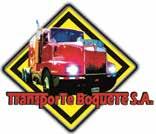



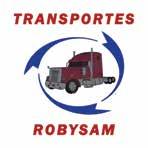
más rápidamente y ayudan a maximizar la eficiencia y el rendimiento.
• Mejorar el seguimiento de mercancías y pedidos
Basado en la capacidad de crear un proceso de gestión de mercancías automatizado, seguro y totalmente rastreable. Esto respalda el flujo seguro de mercancías en un sitio (o en varios sitios) igualmente pueden escanear, rastrear y entregar mercan cías de forma precisa y segura.
AUMENTAR LA SEGURIDAD DEL SITIO
Mejorar la protección perimetral que ofrecen secuencias de ví deo nítidas, incluso en entornos sin luz, detectar personas o vehícu los no autorizados que ingresen al sitio y activar alertas automáticas para cualquier movimiento sospechoso.
OPTIMIZAR LA GESTIÓN DE FLOTAS
Con infraestructura que supervisan el interior de los vehículos y sus alrededores. Estos sistemas también cuentan con una podero sa plataforma para visualización en directo, reproducción de vídeo, ubicaciones de mapas GIS, supervisión del estado del dispositivo, verificación del consumo de combustible, supervisión de la calidad de los productos, alarmas de emergencia y más.
HOW SMART LOGISTICS MANAGEMENT HELPS IMPROVE
PERFORMANCE AND SAFETY
BY: JOSE G. GUTIERREZ / BUSINESS DEVELOPMENT MANAGER - PANAMA HIKVISION CENTRAL AMERICA
All logistics companies try to maximize the performance and security of the supply chain. Smart logistics solution technologies can help with tools for optimized vehicle and dock management, end-to-end order tracking, fleet management, employee health and safety, and more.
The globalization of the supply chain, the burgeoning e-commerce market, and the growing demand for manufactured products have fueled the growth of the logistics industry. To take full advantage of this industry boom, logistics companies must optimize their performance and production, while tracking and securing many thousands of orders and deliveries every day.
But optimizing logistics operations is easier said than done. A major problem is that logistics company managers often lack the realtime information they need to make quick and accurate decisions. For example, they may not be able to see which facilities are having performance issues, which orders have been delayed and why, or which partners are not meeting their delivery SLAs.
STATE-OF-THE-ART LOGISTICS MANAGEMENT SOLUTIONS
To meet these and other challenges, more companies are turning to advanced technology for support. They are implementing the necessary equipment, applications, software and tools to gain better visibility and control of their logistics operations.
State-of-the-art logistics management solutions also make the global supply chain more customer-centric and sustainable. By automating logistics processes, for example, organizations can improve the productivity and efficiency of their workflows; increase transparency and traceability in its supply chains and maintain flexible and dynamic relationships with its stakeholders.
THE ROLE OF INTELLIGENT VIDEO IN LOGISTICS MANAGEMENT
A key technology for next-generation logistics management is intelligent video, an evolution of the cameras that companies have been using in their warehouses, distribution centers and yards for decades.
While traditional cameras were used only for security monitoring, intelligent video solutions employ artificial intelligence, machine learning, and other advanced technologies to increase efficiency, productivity, and even improve worker health and safety.
THE MAIN BENEFITS OF INTELLIGENT VIDEO
By making the decision to implement industry-leading intelligent video solutions as part of their logistics management environment, companies can:
• Improve personnel management and health and safety
With artificial intelligence algorithms that automatically send alerts if employees are not wearing the required protective equipment, or if they approach dangerous machinery, for example.
• Optimize the management of vehicles and loading docks
With dashboards that display the status of each loading dock in real time, allowing vehicles to load and unload faster and helping to maximize efficiency and performance.
• Improve the tracking of goods and orders
Based on the ability to create an automated, secure and fully traceable merchandise management process. This supports the secure flow of goods across a site (or multiple sites) as well as being able to scan, track and deliver goods accurately and securely.
INCREASE SITE SECURITY
Enhance perimeter protection by delivering clear video streams, even in dark environments, detecting unauthorized people or vehicles entering the site, and triggering automatic alerts for any suspicious movement.
OPTIMIZE FLEET MANAGEMENT
With infrastructure that monitors the interior of vehicles and their surroundings. These systems also feature a powerful platform for live viewing, video playback, GIS map locations, device health monitoring, fuel consumption verification, product quality monitoring, emergency alarms and more.
34 LA REVISTA DEL CONSEJO EMPRESARIAL LOGÍSTICOGESTIÓN / GESTION


Consideraciones en torno al proyecto de Ley de Sociedades Marítimas – Como herramienta jurídica de vanguardia, con procesos administrativos simplificados, pero con un alto grado de transparencia y atención al debido cumplimento, para una gobernanza corporativa a tono con las necesidades de la industria marítima y las exigencias de los tiempos actuales.
Proyecto de ley de sociedades marítimas

Luego de 58 arduas sesiones de trabajo de una comisión conformada por miembros de la Asociación Panameña de Derecho Marítimo y el equipo del director de la Dirección General de Registro Público de Naves de la Autoridad Marítima de Panamá (AMP), se logró para finales de mayo de 2021, el borrador de proyecto de Ley sobre Sociedades Marítimas, compuesto por 129 artículos.
Esa misma comisión, en la que el su scrito tuvo una continua y constante participación, elaboró el proyecto del hoy Decreto Ejecutivo No. 159 de 3 de marzo de 2021, que organiza y reglam enta las operaciones del Registro Público de Naves (RPN) y derogó el Decreto Ejecutivo No. 259 de 31 de marzo de 2011.
Con este artículo, pretendo exponer algunos puntos que considero medulares para comprender la relevancia que pudie ra tener para el país, la adopción de la Ley, más pronto que tarde.

¿Cuál es la naturaleza jurídica de la Sociedad Marítima?
Al elaborar el proyecto, pensamos en un escenario que brindara
a la entidad la posibilidad tanto de configurarse como una socie dad anónima o, como ocurre con la sociedad de responsabilidad limitada, haciendo público el registro de acciones. En todo caso, no se permitiría la emisión de acciones al portador.
En cuanto a los objetos de la Sociedad, se ha especificado la naturaleza marítima de los mismos para distinguirla de una socie dad con otras actividades comerciales que no estén vinculadas a la industria o al respaldo directo de la misma.
La Sociedad Marítima puede realizar toda clase de procesos, inclu yendo, su fusión, cambio de jurisdicción y el cambio de tipo de sociedad.
No es exclusivo para el registro de naves o actividades maríti mas en Panamá.
Lo relevante es que la pérdida de la actividad marítima como obje to, implica ipso jure la terminación de la sociedad marítima como tal.
“La Sociedad Marítima pudiera ser beneficiosa para las empresas que deben confirmarse como 75% de accionistas o participaciones de panameños bajo la Ley de Cabotaje (Ley 266 de 2021)”
36 LA REVISTA DEL CONSEJO EMPRESARIAL LOGÍSTICORUTA LEGAL / LEGAL ROUTE
POR: JORGE LOAIZA III / SOCIO DE LA FIRMA ARIAS, FABREGA & FABREGA - ARIFA
RUTA LEGAL
LEGAL
Este proyecto pretende ofrecer a la comunidad marítima nacio nal e internacional una estructura jurídica “élite” en el manejo de sus negocios, con transparencia, pero de manera ágil y práctica, incluyendo la disposición y administración de sus bienes.
¿Por qué en la Autoridad Marítima de Panamá?
Uno de los aspectos de importancia del citado Proyecto de Ley es que, en el mismo se contempla el registro y pago los derechos de ins cripción de documentos y anualidades de estas entidades en el RPN.
Como recordarán, cuando se incluyó en la Ley No. 33 de 2010, una sola norma (Artículo 37) mediante el cual todas las operacio nes registrales correspondientes a naves de registro panameño se pasaban del Registro Público de Panamá a la AMP, hubo consterna ción entre muchos colegas por la posible incertidumbre jurídica, lo cual tuvo solución con la creación de normas “espejo” y la creación del RPN. Actualmente, estamos seguros de que el cambio fue para una notoria mejoría, considerando que se pueden realizar inscrip ciones definitivas, incluyendo escrituras públicas, fuera de horas laborables, así como la emisión de certificados, directamente en el RPN e incluso vía correo electrónico, lo cual representa un avance significativo en términos de eficiencia ante la férrea competencia que constituyen otros crecientes registros internacionalmente.
Además, cabe considerar que, los proyectos marítimos financiables también son objeto de inscripción en el RPN, como queda estipulado en la Ley No.50 de 28 de junio de 2017, que crea un régimen legal de incentivos para Entidades de Financiamiento Marítimo, Proyectos Ma rítimos y dicta otras disposiciones y en el Decreto Ejecutivo No. 168 de 10 de junio de 2019 que la reglamenta, (en su conjunto la Ley No. 50).
Es por ello, que nos sentimos confiados de que incluir a las So ciedades Marítimas como entes inscribibles ante el RPN ofrecerá una mejor coyuntura funcional para transacciones que involucren o requieran del mismo tipo de agilización que demanda la indus tria marítima a nivel mundial.
GOBERNANZA, ACTUACIÓN Y CONTROLES
CORPORATIVOS TRANSPARENTES.
Se ha considerado relevante incluir un compendio de normas que determinen cómo se da la actuación de la Sociedad, con la reducción al mínimo de accionistas y directores y dignatarios unitarios, pero con la incorporación del concepto de “representante legal”; con su propia definición, considerando que el término está ciertamente difuso y ca rente de certidumbre en el resto del ordenamiento jurídico nacional.

Lo que se pretende es que siempre haya una persona que pue da responder por los asuntos de la Sociedad.
Hemos puesto énfasis en la simplificación de las notificaciones para reuniones y otras actuaciones, pero garantizando a su vez que no se lesionen los derechos en los casos que sean varias personas las que integren los órganos de gobernanza.
La emisión de acciones es un acto que se debe dar con la in corporación, con la respectiva manifestación de ello, con lo cual se evita el uso de sociedades de “cascarón” o, como se conocen en el idioma inglés: “shelf companies”.
“Hemos puesto énfasis en la simplificación de las notificaciones para reuniones y otras actuaciones, pero garantizando a su vez que no se lesionen los derechos en los casos que sean varias personas las que integren los órganos de gobernanza.”
37 LA REVISTA DEL CONSEJO EMPRESARIAL LOGÍSTICO
/
ROUTE
Se pretende a la vez que haya un control más eficiente y fiscali zación de aquellos abogados o firmas de abogados que pretendan asumir ese rol. Se necesita un control reputacional y esto se deberá reglamentar con sumo cuidado, según ha sido parte de las discu siones sostenidas con el Director del RPN.
El proyecto contempla en sus artículos 12 y siguientes normas específicas sobre gobernanza, que incluyen la adaptabilidad al ré gimen legal que se imponga de tiempo en tiempo en esta materia, incluyendo los temas contables y otros registros.
También contempla un elemento de responsabilidad en mate ria financiera que obliga a la Sociedad a considerar su situación en caso de insolvencia, y se ha elaborado con precisión lo concernien te a la disolución y liquidación, versus las normas que rigen estas figuras para los otros tipos de sociedades, entre otros aspectos.
DEBIDO CUMPLIMIENTO Y EL AGENTE REGISTRADO.
Hay un cambio de relevancia en lo que ahora sería un agente registrado, quien también se constituiría en un representante para notificaciones en general, y, al que, entre otras facultades, se le con fiere el control del registro de acciones con facultades de dar fe sobre las actuaciones de la sociedad, simplificando el proceso de gestión de éstas ante el registro público.
Para ello también se han reforzado las obligaciones y grado de diligencia que deben tener estos, su inscripción en un registro es pecial dentro del RPN y se ha planteado la creación de un manual de buenas prácticas como elemento vinculante.
Por su parte y en atención a la necesidad de más transparencia y seguridad jurídica en cuanto a los procesos de toma de decisiones y registros de la sociedad ante las exigencias que las normas sobre trans parencia imponen cada vez con más rigurosidad; se le confiere mayor inherencia en el control de tales registros, incluyendo el registro de ac ciones, y la gobernanza corporativa, para darle mayor preponderancia ante las obligaciones sobre conocimiento del cliente.
SIMPLICIDAD Y VANGUARDIA EN LOS TRÁMITES.
Toda vez que el proyecto de ley contempla una mayor seguri dad jurídica en cuanto a los accionistas y procesos de control en los registros de la Sociedad, se contempla que los trámites se puedan realizar incluso en documento privado.
Por el hecho de que el proyecto es en buena parte un refuerzo de lo que ya le impone a los abogados la Ley 23 del 27 de abril de 2015, mediante la cual se adoptan medidas para prevenir el blan queo de capitales, el financiamiento del terrorismo y el financia miento de la proliferación de armas de destrucción masiva y dicta otras disposiciones, consideramos que esas exigencias nos permi ten trasladar a los agentes registrados, mucha de la fe pública con sistente en la autenticidad de las actuaciones y documentos que tradicionalmente se ha confiado a los notarios.
Con ello, también es la intención centralizar los canales de inte racción, reducir los procesos que le restan competitividad a nuestro registro de sociedades actual y que sirva de posible modelo para asistir en el proceso de recuperación de la confianza, que mucho
se ha perdido por razón de las listas de organismos internacionales como la OCDE y GAFI.
CONCLUSIÓN.
Considero necesario que este proyecto de Ley sobre Socieda des Marítimas se lleve a ejecución prontamente, que el momento es propicio para hacerlo y que la necesidad de un mejor ambiente legal en torno a las personas jurídicas panameñas, es inminente.
Considerations regarding the draft Law on Maritime Companies – As a cutting-edge legal tool, with simplified administrative pro cesses, but with a high degree of transparency and attention to due compliance, for corporate governance in tune with the needs of the maritime industry and the demands of the current times.
MARITIME COMPANIES LAW PROJECT
BY: JORGE LOAIZA III / PARTNER OF THE FIRM ARIAS, FABREGA & FABREGA - ARIFA
After 58 arduous work sessions of a commission made up of members of the Panamanian Association of Maritime Law and the team of the director of the General Directorate of the Public Registry of Ships of the Panama Maritime Authority (AMP), it was achieved by the end of May of 2021, the draft of the Law on Maritime Companies, composed of 129 articles.
That same commission, in which the undersigned had a continuous and constant participation, prepared the project of today’s Executive Decree No. 159 of March 3, 2021, which organizes and regulates the operations of the Public Registry of Ships (RPN) and repealed the Executive Decree No. 259 of March 31, 2011.
With this article, I intend to expose some points that I consider essential to understand the relevance that the adoption of the Law could have for the country, sooner rather than later.
What is the legal nature of the Maritime Company?
When preparing the project, we thought of a scenario that would offer the entity the possibility of being configured as a public limited company or, as occurs with the limited liability company, making the share registry public. In any case, the issuance of bearer shares would not be permitted.
Regarding the Company’s objects, their maritime nature has been specified to distinguish it from a company with other commercial activities that are not linked to the industry or directly supported by it.
The Maritime Company can carry out all kinds of processes, including its merger, change of jurisdiction and change of type of company.
38 LA REVISTA DEL CONSEJO EMPRESARIAL LOGÍSTICO
RUTA LEGAL / LEGAL ROUTE


It is not exclusive for the registration of ships or maritime activities in Panama.
What is relevant is that the loss of the maritime activity as an object implies ipso jure the termination of the maritime society as such.
This project aims to offer the national and international maritime community an “elite” legal structure for managing their businesses, with transparency, but in an agile and practical manner, including the disposal and administration of their assets.
Why in the Panama Maritime Authority?
One of the important aspects of the aforementioned Bill is that it contemplates the registration and payment of the registration fees for documents and annuities of these entities in the RPN.
As you will remember, when Law No. 33 of 2010 included a single rule (Article 37) through which all registry operations corresponding to Panamanian registry vessels were transferred from the Public Registry of Panama to the AMP, there was consternation among many colleagues for the possible legal uncertainty, which had a solution with the creation of “mirror” regulations and the creation of the RPN. Currently, we are sure that the change was for a marked improvement, considering that definitive registrations can be made, including public deeds, outside of working hours, as well as the issuance of certificates, directly in the RPN and even via email, which represents a significant advance in terms of efficiency in the face of fierce competition from other growing registries internationally.
In addition, it should be considered that fundable maritime projects are also subject to registration in the RPN, as stipulated in Law No.50 of June 28, 2017, which creates a legal regime of incentives for Maritime Financing Entities, Maritime Projects and dictates other provisions and in Executive Decree No. 168 of June 10, 2019 that regulates it, (as a whole Law No. 50).
For this reason, we feel confident that including Maritime Companies as entities that can be registered with the RPN will offer a better functional situation for transactions that involve or require the same type of streamlining that the maritime industry demands worldwide.
TRANSPARENT CORPORATE GOVERNANCE, PERFORMANCE AND CONTROLS.
It has been considered relevant to include a compendium of rules that determine how the Company acts, with the minimum number of shareholders and directors and unit dignitaries, but with the incorporation of the concept of “legal representative”; with its own definition, considering that the term is certainly diffuse and lacking in certainty in the rest of the national legal system.
What is intended is that there is always a person who can answer for the affairs of the Company.
We have placed emphasis on simplifying notifications for meetings and other actions, while also guaranteeing that rights are not infringed in cases where there are several people who make up the governance bodies.
The issuance of shares is an act that must occur with the incorporation, with the respective manifestation of it, which avoids
the use of “shell” companies or, as they are known in the English language: “shelf companies”.
At the same time, it is intended that there be a more efficient control and supervision of those lawyers or law firms that intend to assume that role. Reputational control is needed and this should be regulated with great care, as has been part of the discussions held with the Director of the RPN.
DUE COMPLIANCE AND REGISTERED AGENT.
There is a relevant change in what would now be a registered agent, who would also become a representative for notifications in general, and who, among other powers, is conferred control of the share registry with powers to attest to the actions of the company, simplifying the process of managing them before the public registry.
To this end, the obligations and degree of diligence that they must have have been reinforced, their registration in a special register within the RPN and the creation of a manual of good practices as a binding element has been proposed.
For its part, and in response to the need for more transparency and legal certainty in terms of decision-making processes and records of society in the face of the demands that the rules on transparency impose with increasing rigor; it is conferred greater influence on the control of such registries, including the registry of shares, and corporate governance, to give it greater preponderance over the obligations regarding knowledge of the client.
SIMPLICITY AND AVANT-GARDE IN THE PROCEDURES.
Since the bill contemplates greater legal certainty in terms of shareholders and control processes in the Company’s records, it is contemplated that the procedures can be carried out even in a private document.
Due to the fact that the project is largely a reinforcement of what is already imposed on lawyers by Law 23 of April 27, 2015, through which measures are adopted to prevent money laundering, the financing of terrorism and the financing of the proliferation of weapons of mass destruction and dictates other provisions, we consider that these demands allow us to transfer to the registered agents, much of the public faith consisting of the authenticity of the proceedings and documents that have traditionally been entrusted to notaries.
With this, it is also the intention to centralize the channels of interaction, reduce the processes that reduce the competitiveness of our current company registry and serve as a possible model to assist in the process of recovering trust, which has been lost due to from the lists of international organizations such as the OECD and FATF.
CONCLUSION.
I consider it necessary that this draft Law on Maritime Companies be carried out promptly, that the time is right to do so and that the need for a better legal environment around Panamanian legal entities is imminent.
40 LA REVISTA DEL CONSEJO EMPRESARIAL LOGÍSTICO
RUTA LEGAL / LEGAL ROUTE



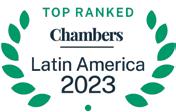 MICHAEL CHEN, PRESIDENTE DE LA CÁMARA DE COMERCIO, INDUSTRIAS Y AGRICULTURA DE COLÓN
MICHAEL CHEN, PRESIDENTE DE LA CÁMARA DE COMERCIO, INDUSTRIAS Y AGRICULTURA DE COLÓN
Colón: El Cambio Comienza por Mí
Su juventud no riñe con su capacidad de reflexión ni su seriedad al momento de hablar de Colón, su provincia. Paradójicamente, es el presidente más joven de la Cámara de Comercio más antigua del país. Hay que recordar que la Cámara de Comercio de Colón fue fundada en 1911, cuando apenas la república tenía 8 años de constituida.
Michael Chen es producto de una nueva generación de líderes que tuvo la oportunidad de consolidar sus cono cimientos comparando realidades en distintas partes del mundo. Él se forjó en el Colegio Internacional del Caribe en la ciudad de Colón y luego estudió en la University of Southern Ca lifornia, Marshall School of Business de Estados Unidos.

Quizás eso le permitió entender la globalidad del comercio desde su universo operacional y confrontarlo con una realidad social que co noce tan bien como la de Colón.
Su experiencia empresarial la aplica como gerente del Grupo Vanidades, una de las empresas más antiguas e icónicas de la pro vincia y su reto más grande como colonense es ser hoy presidente de la Cámara de Comercio, Industrias y Agricultura de Colón, desde donde propone una nueva visión, llena de compromiso social.
Imagino que reiteradamente le pregun tan ¿Cómo cambiar Colón?
No soy un experto ni tampoco tengo el 100% de las respuestas. Sin embargo, estoy seguro que juntos podemos hacer algo para cambiarlo. En estos meses que he estado al frente de la Cámara de Comercio, Agricultu ra e Industrias de Colón he entendido que, a los empresarios de la Zona Libre, de los puertos, de la mina y de la ciudad, e incluso me atrevo a decir que, de todo nuestro país, la población nos ve muy distantes. La población, y muy en especial los jóvenes, nos ven a tra vés de la barrera y de las murallas de la Zona Libre, los puertos, de las empresas.
¿Es insalvable esa distancia entre el Colón empresarial y la gente de la provincia?
Es innegable ver que en Colón hay situaciones de pobreza y des esperación conviviendo con un enclave comercial que no se llegan a encontrar. Por eso me refiero a que entre todos podemos contribuir a resolver la situación. La empresa privada no puede hacerlo sola. Nece sitamos construir alianzas que perduren quinquenios. Los empresarios más sobresalientes suelen ser excelentes en lo que hacen, pero eso ya no es suficiente. Creemos estar a salvo de todo haciendo lo que sabe mos hacer bien, siempre en el ámbito de lo privado. Eso ya no sirve en sociedades como la nuestra en donde la corrupción y el “juega vivo” go
biernan. Lo que no nos hemos dado cuenta es que para ser realmente exitosos necesitamos que nuestro entorno también lo sea. En los tiem pos en que vivimos, ya no es suficiente con dar empleos. Ahora nuestro mundo exige comercios y empresas que hagan negocios, con líderes comprometidos en dar la milla extra. Estas son las palabras de un Colo nense. Desafortunadamente, son pocos los que han comprendido esto.
¿Será que dejamos esa tarea a los políticos, al Estado y no tomamos parte en los procesos de solución?
No participar cuesta dinero, sale muy costoso. La pregunta que hago es: ¿Queremos seguir pagando caro? Tarde o temprano los pro blemas de los demás se convierten en los tuyos. De una manera muy respetuosa hago un llamado de atención. Cualquiera que sea tu trin chera, te exhorto a que hagas un cambio. ¡Los exhorto a que se involu cren! Esto no quiere decir que tienes que meterte a la política. Siempre hay otras maneras de aportar. En cuanto a los gobernantes locales y nacionales, cada vez que viene un gobierno, viene con su propio li brito, eso no es malo. Pero, ¿realmente se está tomando en cuenta la voluntad del Colonense? Cada vez que se cambian los planes cuesta dinero. Tenemos Plan Harrison-Price, Plan Atkins, Plan Visión 2050, hay muchos planes. Somos expertos en el arte de mucho hablar, mucho planear, pero poco hacer. Es hora de bajar barreras, tomar en cuenta la voluntad de nuestra sociedad y combinar una sola visión para garanti zar un verdadero desarrollo sostenible a través del tiempo.
¿Se necesita un plan de Estado o un plan de gobierno?
Se necesita un plan que tome en cuenta a ¡TODOS! Y en cuanto a la sociedad civil, en cuanto a mí y a ti, te preguntarás: ¿y qué pode mos hacer? Empecemos por lo básico. Con esas pequeñas acciones que parecieran insignificantes como botar la basura apropiadamente, tener buenos modales, actuar con rectitud y con valores, dar nuestra mejor cara y servicio a aquellos que nos visitan, pero que ocasionan y generan grandes cambios. Un gran número de pequeños actos de bondad y buenas acciones hacen grandes diferencias en el mundo. Por eso te digo que el cambio comienza por mí y por ti, un colonen se a la vez. ¿De qué nos vale tener la mejor ciudad con los mejores edificios si nosotros mismos no los vamos a cuidar? ¿De qué nos vale tener la mejor reactivación económica con turismo, si no vamos a ofrecer un servicio de excelencia? ¿De qué nos vale tener la mejor educación si no la aplicamos con valores y principios? Es una pena que perdamos tanto el tiempo pensando que las cosas en Colón puedan cambiar... en vez de cambiar las cosas, sin perder tanto el tiempo. Si le metiéramos ganas de verdad, tal vez podría escribirse el futuro de otra manera, y soñar con un mejor Colón. Desde la Cámara de Comercio, Agricultura e Industrias de Colón, como ente privado, ya hemos empezado un proceso de cambio para impulsar a Colón, dentro de los cuales podemos mencionar los proyectos: “Colón Ex perience”, para impulsar el turismo, “Transfórmate para lograr Nuevas Oportunidades” para mejorar aptitudes que permita a nuestra pobla ción acceder al mercado laboral y el programa “El Cambio Comienza
Michael Chen, Presidente de la Cámara de Comercio de Colón.
42 LA REVISTA DEL CONSEJO EMPRESARIAL LOGÍSTICOESTRATEGIA / STRATEGY








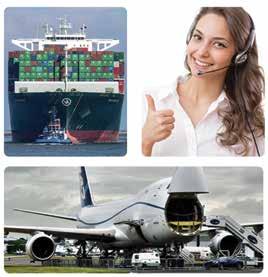
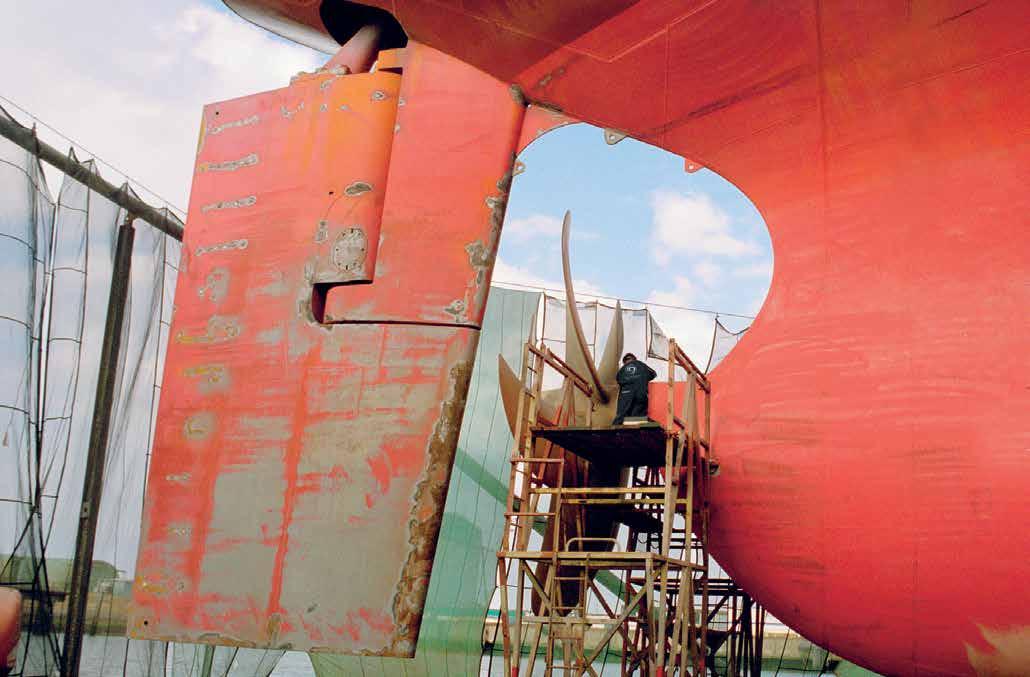
BODEGA Y ALMACENAJE TRANSPORTE TERRESTRE ASESORAMIENTO INTEGRAL INVENTARIO Y CONTROL CAPACIDAD TECNOLOGÍA + Experiencia + Control - Costo-Tiempo SU CARGA SEGURA, A TIEMPO Y SIN RIESGO • Consultoría • Servicios a medida • Bodega y Almacenaje • Nacionalización de Mercadería • Servicios de Valor Agregado • Importación y Exportación SOLUCIONES LOGÍSTICAS INTEGRALES ONBOARD LOGISTICS GROUP PANAMÁ Tel. +507 396 8679 I F& F Tower, O cina 27B Panama City, Panama I E-mail: pricing.pty@onboardlogistics.net I Visite nuestra página: www.onboardlogistic.net The Netherlands | USA Namibia | UAE | China Singapore | Panama QUALIFIED STERN SEAL & PROPULSION SERVICE americas@aegirmarine.com aegirmarine.com ONE CALL +31 343 432 509+507 310 2245
STRATEGY
Por Mí”, para ocasionar un cambio de actitud y forma de pensar frente a las adversidades. La verdad es que no podemos solos, pero estamos tratando. Sabemos que cada quién desde su espacio puede aportar de acuerdo con sus posibilidades. Sólo con un cambio de actitud en donde todos trabajemos en equipo lograremos salir adelante. ¿Si no lo hacemos nosotros, entonces quién?, ¿Si no es ahora, entonces cuándo?. (Revista Conexión, META 2022)
PALABRA DE COLONENSE
“Es una pena que perdamos tanto el tiempo pensando que las cosas en Colón puedan cambiar... en vez de cambiar las cosas, sin perder tanto el tiempo.”
Michael Chen, presidente de la Cámara de Comercio, Indus trias y Agricultura de Colón.
COLÓN:CHANGEBEGINSWITHME
BY: MICHAEL CHEN/ PRESIDENT OF THE COLUMBUS CHAMBER OF COMMERCE, INDUSTRIES AND AGRICULTURE
His youth does not conflict with his capacity for reflection or his seriousness when talking about Colón, his province. Paradoxically, he is the youngest president of the oldest Chamber of Commerce in the country. It must be remembered that the Chamber of Commerce of Colón was founded in 1911, when the republic was barely 8 years old.
Michael Chen is the product of a new generation of leaders who had the opportunity to consolidate their knowledge by comparing realities in different parts of the world. He studied at the Colegio Internacional del Caribe in the city of Colón and then studied at the University of Southern California, Marshall School of Business in the United States.
Perhaps that allowed him to understand the global nature of trade from his operational universe and confront it with a social reality that he knows as well as that of Columbus.
His business experience is applied as manager of the Vanidades Group, one of the oldest and most iconic companies in the province, and his greatest challenge as a resident of Colon is today being president of the Chamber of Commerce, Industries and Agriculture of Colon, from where he proposes a new vision, full of social commitment.
I imagine that you are repeatedly asked how to change Colon?
I am not an expert nor do I have 100% of the answers. However, I am sure that together we can do something to change it. In these months that I have been at the head of the Chamber of Commerce, Agriculture and Industries of Colón, I have understood that the entrepreneurs of the Free Zone, the ports, the mine and the city, and I even dare to say that, of all our country, the population sees us very distant. The population, and very especially the young people, see us through the barrier and the walls of the Free Zone, the ports, the companies.
Is that distance insurmountable between the business Columbus and the people of the province?
It is undeniable to see that in Colón there are situations of poverty and desperation coexisting with a commercial enclave that cannot be found. That is why I mean that together we can contribute to resolving the situation. Private enterprise cannot do it alone. We need to build alliances that last five years. The most outstanding entrepreneurs are often excellent at what they do, but that is no longer enough. We believe that we are safe from everything by doing what we know how to do well, always in the private sphere. That no longer works in societies like ours where corruption and “play alive” rule. What we have not realized is that to be truly successful we need our environment to be as well. In the times we live in, it is no longer enough to provide jobs. Now our world demands businesses and companies that do business, with leaders committed to going the extra mile. These are the words of a Colonense. Unfortunately, few have understood this.
Could it be that we leave this task to the politicians, to the State and do not take part in the solution processes?
Not participating costs money, it is very expensive. The question I ask is: Do we want to continue paying dearly? Sooner or later the problems of others become yours. In a very respectful way I make a call for attention. Whatever your trench, I urge you to make a change. I encourage you to get involved! This does not mean that you have to go into politics. There are always other ways to contribute. As for local and national governments, every time a government comes, it comes with its own little book, that’s not bad. But, is Colonense’s will really being taken into account? Every time plans are changed it costs money. We have the Harrison-Price Plan, the Atkins Plan, the Vision 2050 Plan, there are many plans. We are experts in the art of talking a lot, planning a lot, but doing little. It is time to lower barriers, take into account the will of our society and combine a single vision to guarantee true sustainable development over time.
Is a state plan or a government plan needed?
A plan is needed that takes into account EVERYONE! And as for civil society, as for me and you, you will ask yourself: what can we do? Let’s start with the basics. With those small actions that seem insignificant, such as disposing of the garbage properly, having good manners, acting with integrity and values, giving our best face and service to those who visit us, but which cause and generate great changes. A large number of small acts of kindness and good deeds make a big difference in the world. That’s why I tell you that change begins with me and with you, one colonense at a time. What is the use of having the best city with the best buildings if we are not going to take care of them ourselves? What good is it for us to have the best economic reactivation with tourism, if we are not going to offer an excellent service? What is the use of having the best education if we do not apply it with values and principles? It’s a shame that we waste so much time thinking that things in Colón can change... instead of changing things, without wasting so much time. If we really wanted to, maybe the future could be written in another way, and dream of a better Columbus. From the Chamber of Commerce, Agriculture and Industries of Colón, as a private entity, we have already begun a process of change to promote Colón, among which we can mention the projects: “Colón Experience”, to promote tourism, “Transform yourself to achieve New Opportunities” to improve skills that allow our population to access the labor market and the “Change Begins With Me” program, to cause a change of attitude and way of thinking in the face of adversity. The truth is that we cannot alone, but we are trying. We know that everyone from their space can contribute according to their possibilities. Only with a change of attitude where we all work as a team will we be able to get ahead. If not us, then who? If not now, then when? (Connection Magazine, META 2022)
COLONENSE WORD
“It is a shame that we waste so much time thinking that things in Colón can change... instead of changing things, without wasting so much time.”
Michael Chen, president of the Chamber of Commerce, Industries and Agriculture of Colón
44 LA REVISTA DEL CONSEJO EMPRESARIAL LOGÍSTICO
ESTRATEGIA /
10 AÑOS DE HISTORIA CON PROPÓSITO
• Era el año 2012. Fue la sede de la Cámara Marítima de Panamá la que dio acogida a las primeras reuniones de diversos grupos gremiales que buscaban dentro de sus propósitos, construir una plataforma sólida que representara los intereses de todos y que, al mismo tiempo, sostuviera las propuestas que sobre el desarrollo logístico nacional querían desarrollar.
Latarea no fue fácil ni rápida. Básicamente porque sobre la mesa se planteaba una realidad y muchos retos enormes: Había que convertir a Panamá en un HUB logístico de calidad a nivel global para lo cual debían sumarse las organizaciones agremiadas y aportar sus distintas visiones para encontrar ese es pacio común que se requería para la toma de decisiones que per mitiera capitalizar las enormes oportunidades que ofrece el país.

Así nació el Consejo Empresarial Logístico (COEL) el 22 de febrero de 2013. Entre sus fundadores iniciales están la Asociación de Usua rios de Zona Libre de Colón (AUZLC), la Asociación Panameña de
Agencias de Carga (APAC), la Asociación Panameña de Derecho Ma rítimo (APADEMAR), la Asociación Panameña de Ejecutivos de Em presas (APEDE), la Cámara Americana de Comercio de Panamá (AM CHAM), la Cámara de Comercio, Industrias y Agricultura de Panamá (CCIAP), la Cámara Marítima de Panamá (CMP), la Cámara Nacional de Transporte de Carga (CANATRACA) y la Unión de Corredores de Aduanas de Panamá (UNCAP). Hoy día lo integran 23 organizaciones.

Desde el año 2015, COEL ve materializado un importante hito, cuando mediante Decreto Ejecutivo 27914 -A, se crea el Consejo Consultivo como un ente de apoyo a la labor que realiza el Gabi nete Logístico del país. Cuatro representantes de COEL correspon dientes al sector marítimo, transporte, carga y aéreo, se integran en este Consejo Consultivo, el cual debe facilitar la presentación de los intereses de todos los miembros del gremio.
COEL durante sus inicios en el año 2012-2013 lideró el desarrollo del Plan Estratégico Nacional de Logística (PENLOG), en colabora ción directa con el Banco Interamericano de Desarrollo (BID). Dicho esfuerzo en el año 2016 se materializó en un Plan de Acción que desde la Secretaría de Asuntos Logísticos y de Competitividad de la Presidencia de la República, facilitaría el desarrollo de planes con cretos de trabajo.
45 LA REVISTA DEL CONSEJO EMPRESARIAL LOGÍSTICO HISTORIA / HISTORY
HISTORIA
La Estrategia Logística de nuestro país es un compromiso adquirido en el 2015 por el Gabinete Logístico, en el marco de la Hoja de Ruta del Perfil Logístico de Panamá. Los objetivos de este documento son:
• Desarrollar una Estrategia Logística Nacional para el 2030.
• Recomendar el marco institucional, la estructura organizacion al, los procesos y sistemas necesarios para formalizar la función de planificación estratégica y de inteligencia competitiva para el sector logístico, que corresponda con el impacto que tiene la logística en la economía nacional.
• Identificar y priorizar las actividades económicas y posible di versificación hacia nuevas actividades que permitan el mejor aprovechamiento de las ventajas competitivas de Panamá.
• Identificar y priorizar los requerimientos de infraestructura y tierras para viabilizar la Estrategia Logística Nacional de manera sostenible.
La Estrategia Logística Nacional es un gran proyecto-país, con eleva do potencial de aportación a la modernización y desarrollo de Panamá.
NUESTRA MISIÓN
Ejecutar acciones, iniciativas y programas que promuevan la competitividad y sostenibilidad de la industria logística de Panamá en el contexto de un entorno globalizado, asegurando la búsqueda constante de oportunidades para los panameños.
NUESTRA VISIÓN
Como ente privado referente de la industria logística, ser el vín culo principal para convertir a Panamá en el HUB LOGÍSTICO de distribución en la región, potenciando el valor de nuestra ruta y la conectividad multimodal.
COEL:
OF HISTORY
It was the year 2012. It was the headquarters of the Chamber of Shipping of Panama that hosted the first meetings of various union groups that sought, within their purposes, to build a solid platform that would represent the interests of all and that, at the same time, support the proposals on national logistics development they wanted to develop.
The task was neither easy nor quick. Basically because on the table there was a reality and many enormous challenges: Panama had to be converted into a quality logistics HUB at a global level, for which the unionized organizations had to join and contribute their different visions
to find that common space that was required to decision-making that would make it possible to capitalize on the enormous opportunities that the country offers.
This is how the National Logistics Council was born on February 22, 2013. Among its initial founders are the Association of Users of the Colon Free Zone (AUZLC), the Panamanian Association of Cargo Agencies (APAC), the Panamanian Association of Maritime Law (APADEMAR ), the Panamanian Association of Business Executives (APEDE), the American Chamber of Commerce of Panama (AMCHAM), the Chamber of Commerce, Industry and Agriculture of Panama (CCIAP), the Panama Maritime Chamber (CMP), the National Chamber of Cargo Transport (CANATRACA) and the Union of Customs Brokers of Panama (UNCAP). Today it is made up of 23 organizations.
Since 2015, COEL has seen an important milestone materialized, when through Executive Decree 27914-A, the Consultative Council was created as an entity to support the work carried out by the country’s Logistics Cabinet. Four COEL representatives corresponding to the maritime, transport, cargo and air sectors are integrated into this Consultative Council, which must facilitate the presentation of the interests of all the members of the guild.
COEL during its beginnings in the year 2012-2013 led the development of the National Logistics Strategic Plan (PENLOG), in direct collaboration with the Inter-American Development Bank (IDB). Said effort in 2016 materialized in an Action Plan that from the Secretariat of Logistics and Competitiveness Affairs of the Presidency of the Republic, would facilitate the development of specific work plans.
The Logistics Strategy of our country is a commitment made in 2015 by the Logistics Cabinet, within the framework of the Roadmap of the Logistics Profile of Panama. The objectives of this document are:
• Develop a National Logistics Strategy for 2030.
• Recommend the institutional framework, organizational structure, processes and systems necessary to formalize the function of strategic planning and competitive intelligence for the logistics sector, which corresponds to the impact that logistics has on the national economy.
• Identify and prioritize economic activities and possible diversification into new activities that allow better use of Panama’s competitive advantages.
• Identify and prioritize infrastructure and land requirements to make the National Logistics Strategy viable in a sustainable manner.
The National Logistics Strategy is a great country-project, with a high potential to contribute to the modernization and development of Panama.
OUR MISSION
Execute actions, initiatives and programs that promote the competitiveness and sustainability of the logistics industry in Panama in the context of a globalized environment, ensuring the constant search for opportunities for Panamanians.

OUR VISION
As a leading private entity in the logistics industry, to be the main link to convert Panama into the LOGISTICS HUB of distribution in the region, enhancing the value of our route and multimodal connectivity.
46 LA REVISTA DEL CONSEJO EMPRESARIAL LOGÍSTICO
/ HISTORY
10 YEARS
WITH A PURPOSE
una empresa líder en Servicios Logísticos y Transporte Multimodal, con amplia y reconocida trayectoria en el movimiento de mercancía nacional e internacional, tanto Aérea, Marítima y Terrestre.
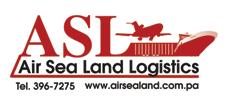
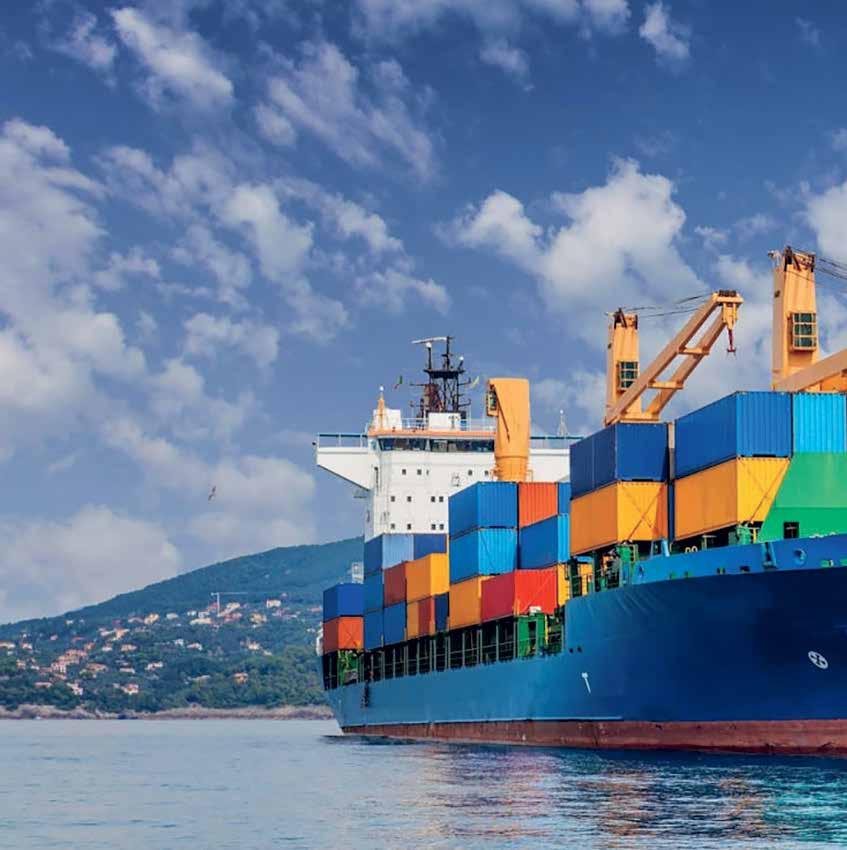
adaptamos a las nuevas exigencias del comercio internacional y a las necesidades de cada cliente, ofreciendo la atención personalizada de nuestro equipo que, de manera ágil y versátil, va a comprometerse con la meta de resolver sus necesidades, sin obviar ningún procedimiento y en un tiempo récord.
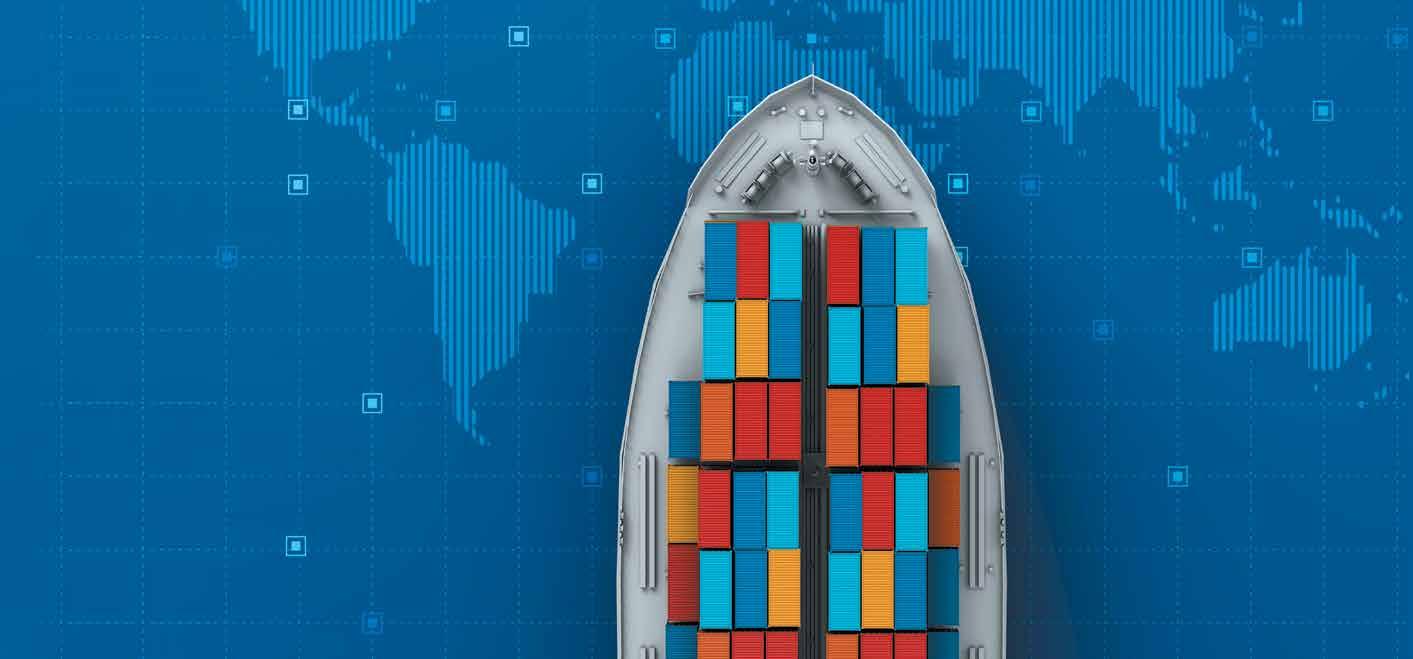
Consolidación de Carga Refrigerada de Miami a Panamá.
Consolidación de Carga
Seguros de Carga
Carga Contenerizada
Acarreos Internos Nacionales
Equipos Especiales
Registros Sanitarios
Corretaje aduanal en alianza con Corredores de Aduana
Servicios de Acarreos Nacionales e Internacionales
AIR SEA LAND LOGISTICS •
•
•
•
•
•
•
•
•
+507 6576 4807 comercial@airseland.com.pa Edison Corporate Center, Torre B, Oficina 11 A www.airsealand.com.pa Somos
Nos
SOMOS EXPERTOS EN REEFER.
JUNTA DIRECTIVA 2020 - 2021
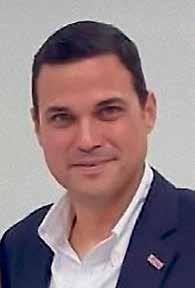


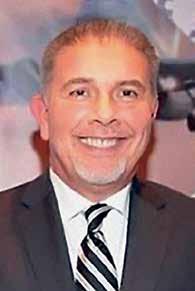

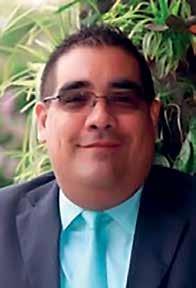
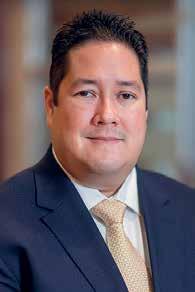 ALBERTO LOPEZ TOM PRESIDENTE
JUAN JOSE DUTARI VICEPRESIDENTE
ANDRÉS BOLAÑOS VOCAL
JUAN CARLOS CROSTON VOCAL
RODOLFO J. DE LA GUARDIA, ASESOR.
RITA MENDIETA SECRETARIA
ÁNGEL SÁNCHEZ TESORERO
ALBERTO LOPEZ TOM PRESIDENTE
JUAN JOSE DUTARI VICEPRESIDENTE
ANDRÉS BOLAÑOS VOCAL
JUAN CARLOS CROSTON VOCAL
RODOLFO J. DE LA GUARDIA, ASESOR.
RITA MENDIETA SECRETARIA
ÁNGEL SÁNCHEZ TESORERO
48 LA REVISTA DEL CONSEJO EMPRESARIAL LOGÍSTICOINSTITUCIONAL / INSTITUTIONAL
BOARD OF DIRECTORS 2020 - 2021
GALERIA DE PRESIDENTES


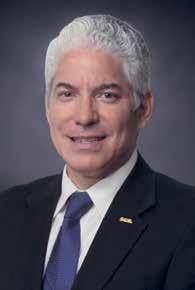
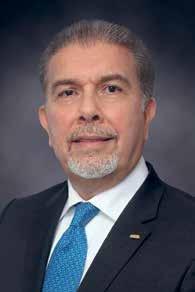
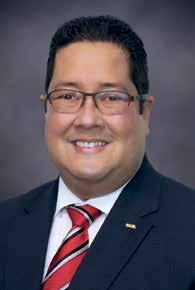
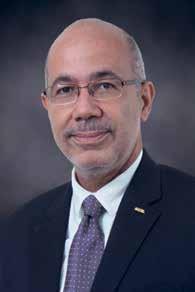
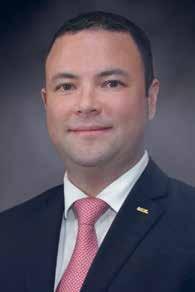
PRESIDENTS GALLERY
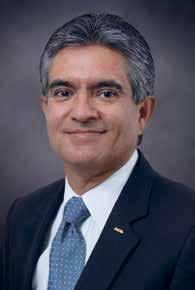 PRESIDENTE DANIEL ISAZA
PRESIDENTE SEVERO SOUSA
PRESIDENTE ENRIQUE CLÉMENT
PRESIDENTE ANTONIO GARCÍA-PRIETO
PRESIDENTE ALBERTO LÓPEZ TOM
PRESIDENTE RODOLFO DE LA GUARDIA
PRESIDENTE LEROY SHEFFER
PRESIDENTE DEMÓSTENES PÉREZ
PRESIDENTE DANIEL ISAZA
PRESIDENTE SEVERO SOUSA
PRESIDENTE ENRIQUE CLÉMENT
PRESIDENTE ANTONIO GARCÍA-PRIETO
PRESIDENTE ALBERTO LÓPEZ TOM
PRESIDENTE RODOLFO DE LA GUARDIA
PRESIDENTE LEROY SHEFFER
PRESIDENTE DEMÓSTENES PÉREZ
49 LA REVISTA DEL CONSEJO EMPRESARIAL LOGÍSTICO INSTITUCIONAL / INSTITUTIONAL
JUNTAS DIRECTIVAS




50 LA REVISTA DEL CONSEJO EMPRESARIAL LOGÍSTICO
COEL COEL BOARDS OF DIRECTORS INSTITUCIONAL / INSTITUTIONAL JUNTA DIRECTIVA 2013 - 2015 JUNTA DIRECTIVA 2017 - 2018 JUNTA DIRECTIVA 2015 - 2016 JUNTA DIRECTIVA 2017 - 2018
INSTITUCIONAL
Desde su creación hace 10 años, COEL ha contado con destacados expertos de la industria que han brindado su valioso tiempo y experiencia al servicio de esta organización logística. A todos ellos, nuestro agradecimiento.
Since its creation 10 years ago, COEL has had leading industry experts who have given their valuable time and experience in the service of this logistics organization. Our thanks to all of them.




JUNTA
2018
51 LA REVISTA DEL CONSEJO EMPRESARIAL LOGÍSTICO
/ INSTITUTIONAL
DIRECTIVA
- 2019 JUNTA DIRECTIVA 2020 - 2021 JUNTA DIRECTIVA 2019 - 2020 JUNTA DIRECTIVA 2021 - 2022
MARCELA ORTEGA, DIRECTORA EJECUTIVA DE COEL
MARCELA ORTEGA, EXECUTIVE DIRECTOR OF COEL

Trabajar dentro de un gremio como Directora Ejecuti va requiere de una vena que no todos tienen. Se ne cesita una capacidad de articulación, coordinación, proactividad, rapidez y eficiencia que sean cónsonos con las voces de una junta directiva formada por profesionalesgeneralmente de distintas ramas - que a su vez mantienen compromisos profesionales y quieren ver sus ideas y accio nes ejecutadas inmediatamente. Es como un músico que debe leer una partitura de la forma más exacta posible e interpretarla poniendo de sí, su mejor versión y en muchos casos anticipando los movimientos aprendidos en base a numerosos ensayos.
Si esta organización, además, es el brazo articulado que reúne a 23 gremios, ya estamos hablando de un director de orquesta que debe no sólo ejecutar los movimientos indi cados por el Presidente y la Junta Directiva, sino coordinar los mismos con sus pares de cada gremio. Marcela Ortega, es quien blande la batuta desde el atril de COEL, y quien desde el año 2017 nos acompaña como nuestra Directora Ejecutiva, poniéndose ante sí, uno de sus más grandes retos pro fesionales y personales.
Para ese momento, COEL tenía apenas 5 años de fundado y era mucho el trabajo de estructuración, que se debía realizar a lo interno. Algunos gre mios se incorporaban poco a poco y otros tomaban otros rumbos. En todo caso, le tocaba entender el espíritu de cada uno y sus distintas expectativas y convertirse en el archivo histórico de COEL durante las distintas directivas que transcurrían con los años.
“Para mí, era imprescindible que COEL tuviera una organización muy bien es tructurada a lo interno y proyectada a lo externo, porque hay que recordar que, aparte de acoger a los gremios, también los representa ante los estamentos del Estado, organismos internacionales y en toda actividad que se desarrolle dentro de la cadena logística multimodal. Por eso, mi principal reto fue darle el inicio a la construcción de la institucionalidad del gremio en lo cual, a pesar de que hemos adelantado mucho, seguimos trabajando”, señala la Directora Ejecutiva de COEL.
Marcela Ortega refiere varios momentos en los que, de cara a los mejores in tereses del país, se tuvo que tomar decisiones muy importantes para la industria y fue allí donde se midió la capacidad de COEL de articular opiniones y buscar consensos, interactuando con cada gobierno de turno, manteniendo unidos a los gremios y brindando una imagen de solidez que se ha construido con los años. “Mi trabajo tiene que ver con brindar al Presidente y a la Junta Directiva con la mayor cantidad de elementos e información necesaria para que esas decisiones estraté gicas estén bien representadas, y que las Comisiones de Trabajo tengan todas las herramientas para lograrlo”.
A 10 años de su fundación, COEL continúa incorporando nuevos miembros y siendo la voz que defiende los intereses del sector que representa.
Uno de los proyectos más añorados por Marcela Ortega fue siempre realizar una revista de COEL. Con motivo de este importante aniversario, no dudamos en que era la ocasión propicia para cumplir con ese sueño largamente anhelado.
Así nació CONEXIÓN, la Revista de COEL, que bajo su dirección hoy ve la luz con su primera edición. “Para mí, tener la Revista CONEXIÓN en mis manos es un logro personal y profesional. Quiero que este proyecto crezca y permanezca en el gre mio por muchos años, que sea una herramienta de aprendizaje, de información y de consulta para nuestros agremiados y para toda la comunidad logística en general”.
Su calidez humana y profesionalismo son las notas que aseguran que esta or questa multigremial, siga tocando las mejores sinfonías en beneficio del país, y por muchos años más.
Working within a guild as an Executive Director requires a streak that not everyone has. You need a capacity for articulation, coordination, proactivity, speed and efficiency that are consistent with the voices of a board of directors made up of professionals - generally from different branches - who in turn maintain professional commitments and want to see their ideas and actions executed immediately. It is like a musician who must read a score in the most exact way possible and interpret it putting his best self, and in many cases anticipating the movements learned based on numerous rehearsals.
If this organization, in addition, is the articulated arm that brings together 23 unions, we are already talking about an orchestra conductor who must not only execute the movements indicated by the President and the Board of Directors, but also coordinate them with his peers from each union. . Marcela Ortega, is the one who brandishes the baton from the lectern of COEL, and who since 2017 has accompanied us as our Executive Director, putting herself before her, one of her greatest professional and personal challenges.
At that time, COEL was barely 5 years old and there was a lot of structuring work that had to be done internally. Some guilds joined little by little and others took other directions. In any case, he had to understand the spirit of each one and their different expectations and become the historical archive of COEL during the different directives that passed over the years.
“For me, it was essential that COEL had a very well-structured organization internally and projected externally, because we must remember that, apart from hosting the unions, it also represents them before the State bodies, international organizations and in all activity that takes place within the multimodal logistics chain. For this reason, my main challenge was to start the construction of the union’s institutional framework, on which, despite the fact that we have advanced a lot, we continue to work”, says the Executive Director of COEL.
Marcela Ortega refers to several moments in which, in view of the best interests of the country, very important decisions had to be made for the industry and it was there that COEL’s capacity to articulate opinions and seek consensus was measured, interacting with each government of turn, keeping unions together and providing an image of solidity that has been built over the years. “My work has to do with providing the President and the Board of Directors with the greatest number of elements and information necessary so that these strategic decisions are well represented, and that the Work Commissions have all the tools to achieve it.”
Ten years after its foundation, COEL continues to incorporate new members and to be the voice that defends the interests of the sector it represents.
One of the projects Marcela Ortega longed for the most was always making a COEL magazine. On the occasion of this important anniversary, we do not doubt that it was the right occasion to fulfill that long-awaited dream.
This is how CONEXIÓN was born, the COEL Magazine, which today sees the light under his direction with its first edition. “For me, having CONEXIÓN Magazine in my hands is a personal and professional achievement. I want this project to grow and remain in the guild for many years, to be a learning, information and consultation tool for our members and for the entire logistics community in general”.
His human warmth and professionalism are the notes that ensure that this multi-union orchestra continues to play the best symphonies for the benefit of the country, and for many more years.
52 LA REVISTA DEL CONSEJO EMPRESARIAL LOGÍSTICOXXXXXXXXXXXX
INSTITUCIONAL / INSTITUTIONAL
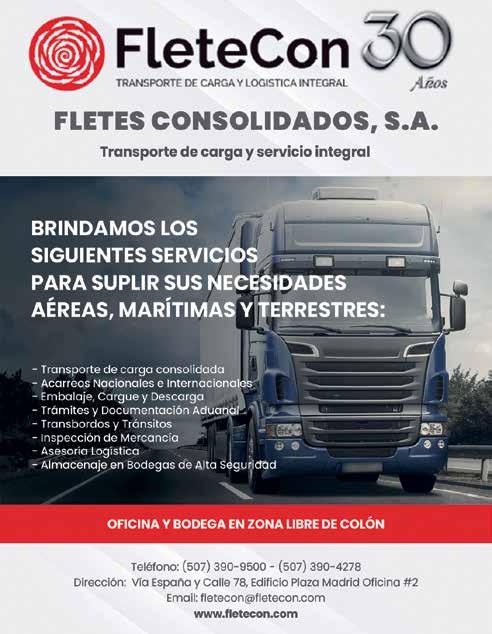
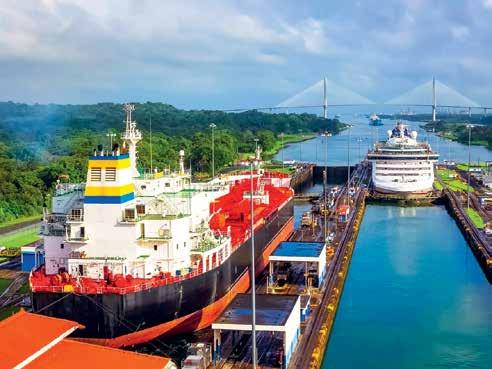







 Edificio
Edificio
Derecho Marítimo Contrataciones Públicas Derecho Corporativo Derecho Laboral y Migratorio Marcas y Propiedad Intelectual Litigios Civiles, Arbitraje y Mediación
Scotia Plaza, Piso 7, Avenida Federico Boyd y Calle 51, Ciudad de Panamá, República de Panamá

 LA REVISTA DEL CONSEJO EMPRESARIAL LOGÍSTICO
LA REVISTA DEL CONSEJO EMPRESARIAL LOGÍSTICO
54
EVENTO / EVENT
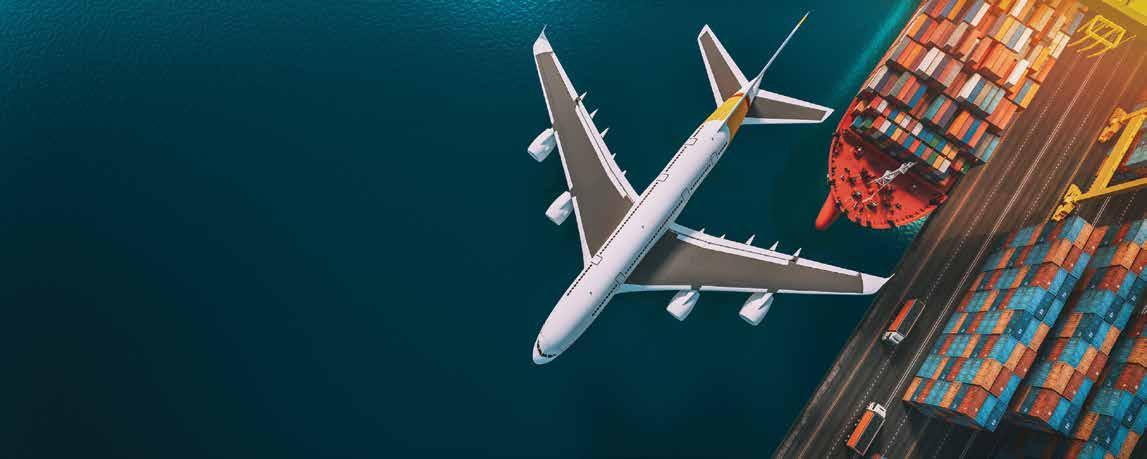


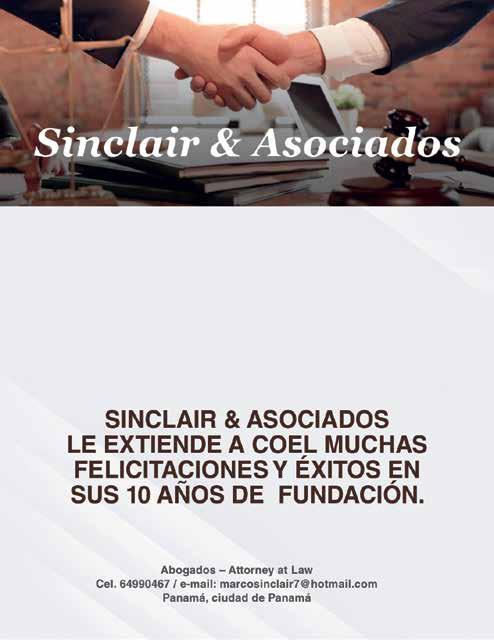
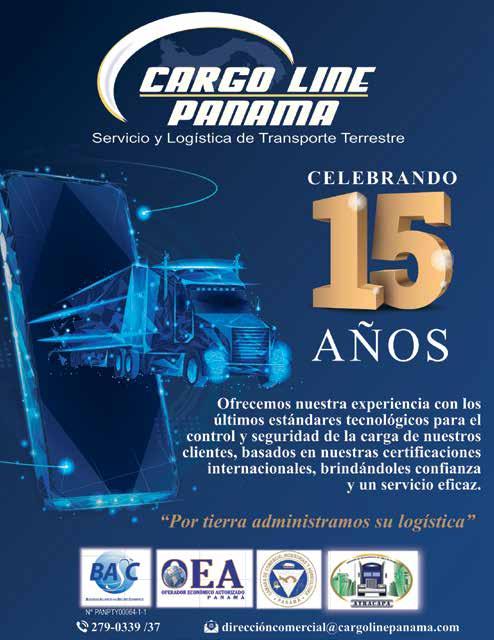
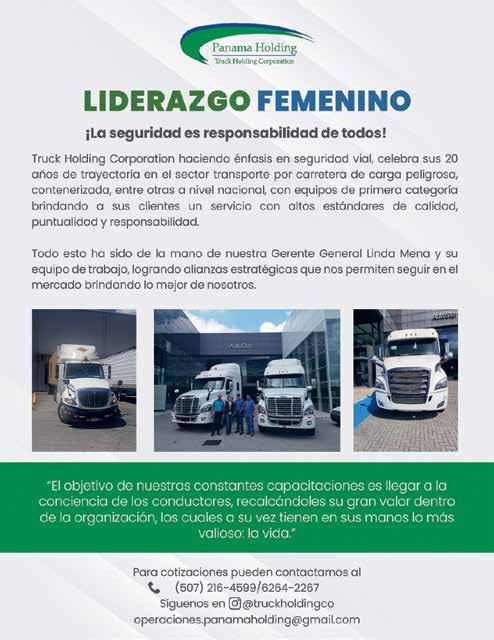 Firma Panameña de Abogados con experiencia en Derecho Mercantil, Marítimo, Corporativo, Laboral y Derecho Penal. Ofrecemos los servicios de asesoría y de defensa legal.
Firma Panameña de Abogados con experiencia en Derecho Mercantil, Marítimo, Corporativo, Laboral y Derecho Penal. Ofrecemos los servicios de asesoría y de defensa legal.
www.ptcorp-pa.net
7mo. Foro Mundial de Ciudades y Plataformas Logísticas 2022 LOGÍSTICA VERDE E INTELIGENCIA ARTICIAL EN LA GESTIÓN DE LA CADENA DE SUMINITRO
Panamá, como centro de referencia mundial de la excelencia logística, ha sido propuesto para acoger el 7mo. Foro Mundial de Ciudades y Plataformas Logísticas 2022 a realizarse de manera presencial del 18 al 20 de octubre del presente año.
Para esta edición del Foro, el evento estará centrado en los conceptos de LOGÍSTICA VERDE E INTELIGENCIA ARTICIAL EN LA GESTIÓN DE LA CADENA DE SUMINITRO, y tendremos a expertos internacionales compartiendo conferencias y talleres en vivo.

Esta importante cita, impulsada desde la Organización Mundial de Ciudades y Platafor mas Logísticas, y co-organizada por el Consejo Empresarial Logístico -COEL en Panamá, cons tituye una excelente oportunidad de encuentro, debate, diálogo y conocimiento orientado al sector logístico internacional.
El Consejo Empresarial Logístico – COEL y la Cámara de Comercio, Industrias y Agricultura de Panamá suscribieron recientemente un acuerdo de cooperación para organizar el evento, que se desarrollará en la capital panameña que incluye conferencias magistrales, mesas re dondas, paneles de expertos, rueda de negocios y una pequeña área de exhibición.
Temas como retos de los Acuerdos COP 26 para la Logística y la Cadena de Suministro; la economía azul y asociaciones público-privadas; y la logística verde: La Importancia de Una Red Sostenible, son algunos de los que se desarrollarán en las conferencias.
GREEN LOGISTICS AND ARTIFICIAL INTELLIGENCE IN SUPPLY CHAIN MANAGEMENT
Panama, as a world reference center of logistics excellence, has been proposed to host the 7th World Forum of Logistics Cities and Platforms 2022 to be held in person from October 18 to 20 of this year. For this edition of the Forum, the event will focus on th

For this edition of the Forum, the event will focus on the concepts of GREEN LOGISTICS AND ARTIFICIAL INTELLIGENCE IN SUPPLY CHAIN MANAGEMENT, and we will have international experts sharing live conferences and workshops.
This important event, promoted by the World Organization of Logistics Cities and Platforms, and co-organized by the Logistics Business Council -COEL in Panama, constitutes an excellent opportunity for meeting, debate, dialogue and knowledge oriented to the international logistics sector.
The Logistics Business Council (COEL) and the Chamber of Commerce, Industry and Agriculture of Panama (CCIAP) recently signed a cooperation agreement to organize the event, which will take place in the Panamanian capital and includes keynote speeches, round tables, expert panels , business conference and a small exhibition area.
Topics such as challenges of the COP 26 Agreements for Logistics and the Supply Chain; the blue economy and public-private partnerships; and green logistics: The Importance of a Sustainable Network, are some of those that will be developed in the conferences.
56 LA REVISTA DEL CONSEJO EMPRESARIAL LOGÍSTICOEVENTO / EVENT
7thWorldForumofCitiesandLogisticsPlatforms2022
Nuestros miembros

12 años fortaleciendo la industria inmobiliaria de Panamá
La Asociación Panameña de Corredores y Promotores de Bienes Raíces es una organización sin fines de lucro fundada en 1973. Desde su creación, su misión ha sido aglutinar a los profesionales de la industria, quienes ofrecen servicios bajo los parámetros de su estatuto y del código de ética, en función de fortalecer de manera integral el profesionalismo inmobiliario a través de las buenas prácticas.
ACOBIR ha mantenido su liderazgo a través de las permanentes acciones en pro de la industria, como promotores de cambios, facilitadores de inversiones y constructores de viviendas dignas. El gremio cuenta con más de 400 miembros, quienes contribuyen al desarrollo y la sostenibilidad de un sector importante de la economía nacional, con representatividad, defensa del sector, promoción de la inversión nacional y extranjera, educación y alianzas internacionales.
Desde hace 12 años ACOBIR realiza con gran éxito, Expo Inmobiliaria ACOBIR, evento ferial que reúne a las más importantes promotoras, bancos y agentes de bienes raíces, quienes ofrecen un amplio portafolio de proyectos de apartamentos,

casas, oficinas y locales comerciales. La vitrina inmobiliaria por excelencia del sector que ha sido plataforma de preferencia para que nacionales y extranjeros cumplan su sueño de adquirir su vivienda en Panamá.
Como gremio seguiremos reforzando el trabajo con el Gobierno, así como también con los gremios aliados y con las organizaciones internacionales, que aportan al desarrollo de nuevas oportunidades para el sector y al posicionamiento del país, como Hub inmobiliario de las Américas.
ACOBIR: 12 YEARS
STRENGTHENING THE REAL ESTATE INDUSTRY IN PANAMA


The Panamanian Association of Real Estate Brokers and Promoters - ACOBIR, is a non-profit organization founded in 1973. Since its creation, its mission has been to bring together professionals in the real estate industry, who offer services under the parameters of its statute. and code of ethics, with the main objective of comprehensively strengthening professionalism through good practices.
ACOBIR has maintained its leadership through permanent actions in favor of the industry, as promoters of change, facilitators of investments and builders of decent housing. The union has more than 400 members, who contribute to the development and sustainability of an important sector of the national economy, with representation, defense of the sector, promotion of national and foreign

investment, education and international alliances.
For 12 years, ACOBIR has been carrying out, with great success, Expo Inmobiliaria ACOBIR, a fair event that brings together the most important developers, banks and real estate agents, who offer a wide portfolio of projects for apartments, houses, offices and commercial premises. The real estate showcase par excellence in the sector that has been the preferred platform for nationals and foreigners to fulfill their dream of acquiring their home in Panama.
As a union, we will continue to strengthen the work with the Government, as well as with allied unions and international organizations, which contribute to the development of new opportunities for the sector and the positioning of the country, as a real estate Hub of the Americas.
DEL CONSEJO EMPRESARIAL
JUNTA DIRECTIVA 2022-2023 ACOBIRBOARD OF DIRECTORS 2022-2023 ACOBIR
Junta Directiva - Asamblea General ACOBIR - Board of Directors - ACOBIR General Assembly
Lanzamiento
58 NUESTROS MIEMBROS COEL / OUR MEMBERS LA REVISTA
LOGÍSTICO
Expo Inmobiliaria Acobir - Acobir Real Estate Expo
Estrechando lazos, ofreciendo oportunidades
La Cámara Americana de Comercio e Industrias de Panamá (AmCham) fue creada el 31 de octubre de 1979, por un grupo de profesionales que sentía que la organización podría ser una voz importante en la promoción del comercio en Panamá. La membresía de AmCham ha crecido de 68 empresas en su primer año, a aproximadamente 400 empresas miembro en la actualidad que representan más de 15 sectores industriales y comerciales de la economía panameña.
NUESTROS MIEMBROS COEL
AmCham es una asociación sin fines de lucro, apolítica, y de carácter independiente que promueve la libre empresa. Está afiliada a la Cámara de Comercio de Estados Unidos y a la Asociación de Cámaras Americanas de Comercio de Latinoamérica y el Caribe (AACCLA).
Desde sus inicios, la Cámara ha ofrecido a sus empresas miembro conferencias, foros y seminarios sobre una variedad de temas de importancia nacional. Asimismo, AmCham impulsa el desarrollo de importantes programas de RSE como el Programa de Liderazgo para Directores de Escuela de San Miguelito y el Reconocimiento Liderazgo Sostenible, ambos con más de 10 años de existencia.
NETWORKING DE NEGOCIOS

Los eventos de networking y las reuniones de comités relacionados a más de 15 industrias reúnen a expertos de diversos sectores empresariales. Cada uno de los 11 Comités sectoriales organizan foros,

conferencias, talleres y seminarios de capacitación que tratan temas prioritarios para sus industrias. Además, ofrecen la oportunidad para hacer contactos valiosos para su empresa o negocio.
RECURSOS
AmCham Panamá ofrece información actualizada de negocios y asesoría sobre las oportunidades de exportación que promueve el Acuerdo de Libre Comercio entre Estados Unidos y Panamá.
ACCESO A LOS RESPONSABLES DE LAS DECISIONES GUBERNAMENTALES
Uno de los objetivos de AmCham es el de representar a sus miembros ante el gobierno nacional, y ante las principales autoridades de gobierno en los Estados Unidos. De igual manera, está entre sus objetivos mantener informados a sus miembros sobre las últimas tendencias en materia económica y de inteligencia comercial.
The American Chamber of Commerce and Industries of Panama (AmCham) was created on October 31, 1979, by a group of professionals who felt that the organization could be an important voice in promoting trade in Panama. AmCham’s membership has grown from 68 companies in its first year to approximately 400 member companies today, representing more than 15 industrial and commercial sectors of the Panamanian economy.
AmCham is a non-profit, non-political, and independent association that promotes free enterprise. It is affiliated with the United States Chamber of Commerce and the Association of American Chambers of Commerce of Latin America and the Caribbean (AACCLA).
Since its inception, the Chamber has offered its member companies conferences, forums and seminars on a variety of topics of national importance. Likewise, AmCham promotes the development of important CSR programs such as the Leadership Program for School Directors of San Miguelito and the Sustainable Leadership Recognition, both with more than 10 years of existence.

BUSINESS NETWORKING
Networking events and committee meetings related to more than 15 industries bring together experts from various business sectors. Each of the 11 sectoral Committees organize forums, conferences, workshops and training seminars that deal with priority issues for their industries. In addition, they offer the opportunity to make valuable contacts for your company or business.
RESOURCES
AmCham Panama offers up-to-date business information and advice on export opportunities promoted by the Free Trade Agreement between the United States and Panama.

ACCESS TO GOVERNMENT DECISION MAKERS
One of AmCham’s objectives is to represent its members before the national government, and before the main government authorities in the United States. Similarly, one of its objectives is to keep its members informed about the latest trends in economic matters and commercial intelligence.
59
/ OUR MEMBERSLA REVISTA DEL CONSEJO EMPRESARIAL LOGÍSTICO
AMCHAM:
AMCHAM: CLOSE TIES, OFFERING OPPORTUNITIES
Asociación panameña de ejecutivos en la cadena de abastecimiento Apeca
Conformada en el 2009, la Asociación Panameña de Ejecutivos en la Cadena de Abastecimientos (APECA), es la primera organización nacional que agrupa a ejecutivos y profesionales de la logística de Panamá. Nos mantenemos a la vanguardia, promoviendo temas de interés nacional e internacional para el mejor entendimiento de temas logísticos, promoviendo la transferencia y generación de conocimiento.

COEL / OUR MEMBERS
A través de la creación de comisiones interinstitucionales y alianzas estratégicas en las áreas de logística urbana, digitalización y procesos, asuntos jurídicos para la logística y zonas económicas especiales, fortalecemos la gestión logística panameña, a la vez que nutrimos a nuestros ejecutivos y profesionales de las últimas tendencias en estas áreas.
ALIANZAS ESTRATÉGICAS
Participación en mesas nacionales para el desarrollo de la plataforma logística del país.
Como miembros del Consejo Empresarial Logístico (COEL), tenemos participación en el
Gabinete Logístico y diversas mesas de trabajo conformadas en áreas relacionadas a la promoción de la inversión extranjera en temas logísticos, transporte multimodal y facilitación del comercio, entre las principales.
Durante el periodo 2017 – 2018, nuestro expresidente Demóstenes Pérez fue electo presidente de COEL, afirmando el compromiso y aporte que tienen los Ejecutivos de la Cadena de Abastecimiento con Panamá.
En los últimos años, APECA activamente ha participado en COEL, aportando entre sus agremiados con dos presidentes, vocales y representantes en las diversas mesas de trabajo.
PANAMANIAN ASSOCIATION OF EXECUTIVES IN THE SUPPLY CHAIN


APECA
Formed in 2009, the Panamanian Association of Executives in the Supply Chain (APECA) is the first national organization that brings together executives and logistics professionals in Panama.
We remain at the forefront, promoting topics of national and international interest for a better understanding of logistics issues, promoting the transfer and generation of knowledge.
Through the creation of inter-institutional commissions and strategic alliances in the areas of urban logistics, digitization and processes, legal matters for logistics and special economic zones, we strengthen Panamanian logistics management, while nurturing our executives and professionals from the latest trends in these areas.
STRATEGIC ALLIANCES
Participation in national tables for the development of the country’s logistics platform.
As members of the Logistics Business Council (COEL), we participate in the Logistics Cabinet and various work groups formed in areas related to the promotion of foreign investment in logistics, multimodal transport and trade facilitation, among the main ones.
During the 2017-2018 period, our former president Demóstenes Pérez was elected president of COEL, affirming the commitment and contribution that the Executives of the Supply Chain have with Panama.
In recent years, APECA has actively participated in COEL, contributing from among its members with two presidents, members and representatives in the various work groups.
REVISTA DEL CONSEJO EMPRESARIAL LOGÍSTICO
60 NUESTROS MIEMBROS
LA
ASOCIACIÓN PANAMEÑA DE EJECUTIVOS DE EMPRESA – APEDE:
Contribuyendo al desarrollo y progreso económico de Panamá
La Asociación Panameña de Ejecutivos de Empresa es una organización privada sin fines de lucro, conformada por hombres y mujeres que trabajan como ejecutivos y profesionales, empresarios o independientes.
PANAMANIAN ASSOCIATION OF BUSINESS EXECUTIVES – APEDE: CONTRIBUTING TO THE DEVELOPMENT AND ECONOMIC PROGRESS OF PANAMA

NUESTROS MIEMBROS COEL
En esencia, desde su fundación el 17 de marzo de 1958, la APEDE ha contribuido al desarrollo y progreso económico de Panamá, a través de la promoción de actividades empresariales y el impulso de la eficiencia administrativa. Esto, a través de su identificación con los intereses legítimos de la sociedad panameña y su participación proactiva en los asuntos políticos, económicos y sociales a nivel nacional.
De hecho, a día de hoy, la APEDE goza del reconocimiento y la aceptación de todos los sectores, situándose por su liderazgo como un gremio empresarial modelo en la República de Panamá. Tras estos años de labor, la APEDE ha aportado al fortalecimiento, la vigilancia y permanencia de la Libre Empresa en Panamá como elemento fundamental para la existencia de una sociedad libre, donde un gobierno democrático puede prosperar con equidad y con justicia.
Los valores principales de la APEDE son: Democracia en todos los órdenes de la vida nacional e internacional (institucionalidad, derecho a participación de sociedad civil.
Ética en la conducta del ejecutivo (honestidad, transparencia, rendición de cuentas y

The Panamanian Association of Business Executives is a private non-profit organization, made up of men and women who work as executives and professionals, entrepreneurs or independent. In essence, since its foundation on March 17, 1958, APEDE has contributed to the development and economic progress of Panama, through the promotion of business activities and the promotion of administrative efficiency. This, through its identification with the legitimate interests of Panamanian society and its proactive participation in political, economic and social affairs at the national level.
In fact, today, APEDE enjoys the recognition and acceptance of all sectors, positioning itself for its leadership as a model business association in the Republic of Panama. After these years of work, APEDE has contributed to the strengthening, surveillance and permanence of Free Enterprise in Panama as a fundamental element for the existence of a free society, where a democratic government can prosper with equity and justice.
The main values of APEDE are:
Democracy in all spheres of national and international life (institutionality, right to participation of civil society.
Ethics in the conduct of the executive (honesty, transparency, accountability and social

responsabilidad social).
Libertad como fundamento de la iniciativa privada (libre empresa, derechos humanos).
Educación como medio de facilitar el progreso de todos los panameños y lograr la vigencia de otros principios (obtención de competencias, actualización, eficiencia y conocimiento).
CADE
La Conferencia Anual de Ejecutivos de Empresa es el evento insignia de la APEDE, inició desde 1966 y ofrece una importante tribuna nacional para discutir, analizar y buscar soluciones a los problemas nacionales entre el sector público y privado; se traduce en contribuir al desarrollo económico, político, social y ambiental del país con igualdad y equidad.
VISION PAIS 2050

“Panamá, país próspero de alto ingreso, nodo (´´HUB´´) global y centro de relevancia mundial en generación de conocimiento, con instituciones democráticas fortalecidas y la consolidación de una sociedad educada, inclusiva, segura, cohesionada, innovadora y competitiva, en un territorio integrado y de alto valor natural”.
responsibility).
Freedom as the foundation of private initiative (free enterprise, human rights).
Education as a means of facilitating the progress of all Panamanians and achieving the validity of other principles (obtaining skills, updating, efficiency and knowledge).
CADE
The Annual Conference of Business Executives is the flagship event of APEDE, started in 1966 and offers an important national platform to discuss, analyze and seek solutions to national problems between the public and private sectors; translates into contributing to the economic, political, social and environmental development of the country with equality and equity.
COUNTRY VISION 2050
“Panama, a prosperous high-income country, a global node (´´HUB´´) and a center of world relevance in the generation of knowledge, with strengthened democratic institutions and the consolidation of an educated, inclusive, safe, cohesive, innovative and competitive society, in an integrated territory of high natural value”.
61
/ OUR MEMBERSLA REVISTA DEL CONSEJO EMPRESARIAL LOGÍSTICO
MIEMBROS
COEL / OUR MEMBERS LA REVISTA DEL CONSEJO EMPRESARIAL LOGÍSTICO
La Asociación de Empresas del Área Panamá Pacífico – ADEDAPP, reúne a importantes empresas que buscan convertirse en una sola voz que pueda ser un puente comunicador entre las autoridades pertinentes, instituciones, compañías y toda entidad relacionada.
ADEDAPP: El gremio empresarial del Área Económica Especial Panamá Pacífico
El Área Panamá Pacífico es un modelo de zona económica especial que tiene como objetivo ser un hub para la manufactura de alta tecnología, servicios logísticos, actividades comerciales y servicios no tradicionales, con un área residencial ecológicamente amigable.
En ADEDAPP se agrupan todas las empresas que cuentan con un registro emitido por la Agencia Panamá Pacífico, que acepten su estatuto y reglamentos y paguen las cuotas que sean establecidas. Como miembro de la ADEDAPP, los agremiados podrán participar de reuniones, Asambleas Generales, reuniones de comisiones, conferencias, exposiciones, misiones comerciales, actividades didácticas, actividades de esparcimiento y cualquier otra que sea aprobada.
Podrán aspirar a formar parte de los entes directivos de la ADEDAPP, así como de la junta directiva de la Agencia Panamá Pacífico, tal cual se establece en el estatuto, reglamentación y la Ley 41 de 2004. Se podrán negociar beneficios tales como descuentos, recepción de boletines, así como promociones especialmente destinadas a las
empresas y sus colaboradores. Asimismo, podrán contar con una representación conjunta ante instancias gubernamentales, gremios, asociaciones nacionales e internacionales que podrían resultar de interés para los agremiados.
ENCUENTROS EMPRESARIALES
Los desayunos empresariales, se han convertido en un ícono dentro de la ADEDAPP; en los mismos se invitan a distinguidas personalidades que puedan disertar sobre temas de actualidad o que despierten el interés de las empresas agremiadas o sus colaboradores.
EXPO FERIA ADEDAPP

La ADEDAPP presenta anualmente su reconocida Expo Feria de Panamá Pacífico, la cual sirve de plataforma para adquirir bienes y servicios por parte de personas y empresas dentro y fuera de Panamá. Esta feria es complementada con webinars y la presencia de grandes personalidades nacionales e internacionales, que disertan sobre economía, turismo, finanzas, educación y otros temas que son del interés de quienes nos visitan. El 2021 la Expo Feria recibió a 7 mil visitantes.
ADEDAPP: THE BUSINESS ASSOCIATION OF THE PANAMA PACIFIC SPECIAL ECONOMIC AREA

The Panama Pacific Area is a special economic zone model that aims to be a hub for high-tech manufacturing, logistics services, commercial activities and non-traditional services, with an ecologically friendly residential area.
The Association of Companies of the Panama Pacific Area - ADEDAPP, brings together important companies that seek to become a single voice that can be a communication bridge between the relevant authorities, institutions, companies and any related entity.
ADEDAPP brings together all the companies that have a registry issued by the Panama Pacific Agency, that accept its statute and regulations and pay the fees that are established. As a member of ADEDAPP, members may participate in meetings, General Assemblies, committee meetings, conferences, exhibitions, trade missions, educational activities, leisure activities and any other that is approved.
They may aspire to be part of the governing bodies of ADEDAPP, as well as the board of directors of the Panama Pacific Agency, as established in the statute, regulations and Law 41 of 2004. Benefits
such as discounts, reception of newsletters, as well as promotions especially aimed at companies and their collaborators. Likewise, they may have a joint representation before government agencies, unions, national and international associations that could be of interest to the members.
BUSINESS MEETINGS
Business breakfasts have become an icon within ADEDAPP; Distinguished personalities who can speak on current issues or that arouse the interest of the member companies or their collaborators are invited to them.

EXPO FAIR ADEDAPP
ADEDAPP annually presents its renowned Panama Pacific Expo Fair, which serves as a platform to acquire goods and services by people and companies inside and outside of Panama. This fair is complemented with webinars and the presence of great national and international personalities, who speak on economics, tourism, finance, education and other topics that are of interest to those who visit us. In 2021, the Expo Fair received 7 thousand visitors.
62 NUESTROS
ASOCIACIÓN DE TRANSPORTISTAS DE CARGA DE PANAMÁ - ATRACAPA
Valorizando el sector transporte
La Asociación de Transportistas de Carga de Panamá (ATRACAPA) es una organización sin fines de lucro fundada en el año 2009 con el propósito de representar y defender los derechos de los empresarios del sector Transporte de carga en Panamá. Cuentan con 36 miembros, que se dedican al movimiento de transporte de carga contenerizada, carga suelta, carga peligrosa, entre otras.
La Asociación de Transportistas de Carga de Panamá (ATRACAPA) es una organización sin fines de lucro fundada en el año 2009 con el propósito de representar y defender los derechos de los empresarios del sector Transporte de carga en Panamá. Cuentan con 36 miembros, que se dedican al movimiento de transporte de carga contenerizada, carga suelta, carga peligrosa, entre otras.
ATRACAPA es una asociación abierta al contacto, participación y comunicación constante con autoridades, empresarios, organizaciones y ciudadanía interesada en temas afines, lo que les permite aportar ideas y soluciones en conjunto para beneficio de nuestro país.
Brindan a sus asociados seminarios, convivios y asesoría en temas de interés con el fin de mejorar las dificultades y deficiencias que marcan el desempeño personal y comercial de todos nuestros socios.
La reconocida organización tiene como misión defender los intereses de todos sus asociados
beneficiando así, de forma directa el sector transporte, brindando servicios que refuercen y valoricen siempre la calidad, profesionalismo, desarrollo e integridad de nuestra actividad empresarial tanto a nivel nacional como internacional.
Su visión es brindar servicios de calidad orientados a alcanzar liderazgo y reconocimiento para, en conjunto con otras organizaciones internacionales, aportar ideas y soluciones que mejoren la logística y el funcionamiento del sector transporte, enfocados siempre en los principios de su misión.
Orgullosamente miembros de COEL, actualmente representamos al Sector de Transporte de Carga Terrestre ante el Gabinete Logístico, en representación del sector privado.
ASSOCIATION OF FREIGHT TRANSPORTERS OF PANAMA - ATRACAPA VALUING THE TRANSPORT SECTOR



The Association of Cargo Carriers of Panama (ATRACAPA) is a non-profit organization founded in 2009 with the purpose of representing and defending the rights of entrepreneurs in the cargo transportation sector in Panama. They have 36 members, who are dedicated to the movement of containerized cargo, loose cargo, dangerous cargo, among others.
ATRACAPA is an association open to contact, participation and constant communication with authorities, businessmen, organizations and citizens interested in related issues, which allows them to contribute ideas and solutions together for the benefit of our country.
They provide their associates with seminars, gatherings and advice on topics of interest in order to improve the difficulties and deficiencies that mark
the personal and commercial performance of all our partners.
The recognized organization’s mission is to defend the interests of all its associates, thus directly benefiting the transport sector, providing services that always reinforce and value the quality, professionalism, development and integrity of our business activity both nationally and internationally.
Its vision is to provide quality services aimed at achieving leadership and recognition in order, together with other international organizations, to contribute ideas and solutions that improve the logistics and operation of the transport sector, always focused on the principles of its mission.
Proudly members of COEL, we currently represent the Land Freight Transport Sector before the Logistics Cabinet, on behalf of the private sector.
63 NUESTROS MIEMBROS COEL / OUR MEMBERSLA REVISTA DEL CONSEJO EMPRESARIAL LOGÍSTICO
Una plataforma de apoyo a las cadenas de suministro
La Asociación Panameña de Agencias de Carga – APAC, es una organización civil creada un 14 de agosto de 1990, con la visión de brindar a sus asociados un soporte eficiente para el correcto desempeño de sus actividades dentro de la industria logística, implementando nuevas herramientas que correspondan a las demandas actuales.
COEL / OUR MEMBERS
APAC conecta a sus asociados a través de una plataforma de apoyo a las diferentes cadenas de suministro, integradas en la industria logística, aérea, marítima, portuaria, industrias auxiliares, entre otras, buscando optimizar las operaciones de carga en cada una de las fases correspondientes.
También nos esforzamos por capacitar a nuestros asociados a través de la transferencia de conocimientos y la capacitación continua a través de seminarios, conferencias y eventos en los que expertos actualizan datos e información relevante, añadiéndole un valor agregado a nuestra labor diaria.
La calidad del servicio y la innovación para crear negocios sostenibles para la industria y la sociedad, son metas que proponemos a cada uno de nuestros miembros y que nos esforzamos
en difundir a través de la divulgación, reformas y abrogación de leyes, reglamentos, tarifas y controles y disposiciones que se estimen necesarios para el mejor desenvolvimiento del ejercicio de las Agencias de Carga, servicios de exportación y transporte.
Es por eso que brindamos asistencia técnica y jurídica a nuestros asociados para la resolución de los problemas gremiales que se consulten. Nuestro gremio los representa como interlocutor ante los organismos estatales que requieran colaboración de la asociación y participa activamente en las discusiones de políticas de transporte, en la discusión de anteproyectos legislativos, reglamentaciones y directrices planificadas, así como también en todo foro en el que estén de por medio los intereses de nuestros asociados.
ANGEL SÁNCHEZ, PRESIDENTE DE APAC | ANGEL SÁNCHEZ, APAC PRESIDENT.
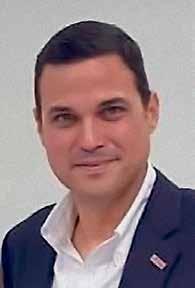
The Panamanian Association of Cargo Agencies - APAC, is a civil organization created on August 14, 1990, with the vision of providing its associates with efficient support for the correct performance of their activities within the logistics industry, implementing new tools that correspond to current demands.

APAC connects its associates through a support platform for the different supply chains, integrated in the logistics, air, maritime, port, auxiliary industries, among others, seeking to optimize cargo operations in each of the corresponding phases. .

We also strive to train our associates through the transfer of knowledge and continuous training through seminars, conferences and events in which experts update data and relevant information, adding added value to our daily work.
The quality of service and innovation to create
sustainable businesses for the industry and society are goals that we propose to each of our members and that we strive to spread through the disclosure, reforms and repeal of laws, regulations, rates and controls and provisions that are deemed necessary for the best development of the exercise of Cargo Agencies, export and transport services.
That is why we provide technical and legal assistance to our associates for the resolution of union problems that are consulted. Our union represents them as an interlocutor before the state organisms that require collaboration from the association and actively participates in the discussions of transport policies, in the discussion of legislative drafts, regulations and planned guidelines, as well as in any forum in which they agree. through the interests of our associates.
REVISTA DEL CONSEJO EMPRESARIAL LOGÍSTICO
LA ASOCIACIÓN PANAMEÑA DE AGENCIAS DE CARGA – APAC:
THE PANAMANIAN ASSOCIATION OF CARGO AGENCIES – APAC: A SUPPORT PLATFORM FOR SUPPLY CHAINS
64 NUESTROS MIEMBROS
LA
APADEMAR:
Promoviendo leyes en favor de nuestra industria
Desde sus inicios, la Asociación Panameña de Derecho Marítimo –APADEMAR - ha sido un referente en el sector marítimo panameño, como un gremio consultor y propulsor de iniciativas legislativas que contribuyen notablemente al posicionamiento de nuestra industria.
Sus aportes, junto con el de otros gremios y autoridades, se pueden ver reflejados en las principales leyes que rigen el ámbito marítimo nacional, como lo son la Ley General de Marina Mercante, Ley de Comercio Marítimo, De Procedimiento Marítimo y Ley General de Puertos, por mencionar algunas.
Nuestra principal misión es seguir proponiendo iniciativas tendientes a mejorar la competitividad de nuestro sector a través de la identificación de las necesidades del mercado y la revisión y la actualización de nuestra legislación marítima para mantenernos competitivos.
Algunos de los retos que tenemos por delante, nos llevan a un proceso de revisión de la Ley 57 de Marina Mercante, a fin de actualizar nuestro registro de naves. También, tenemos sobre la mesa el ambicioso proyecto de la Sociedad Marítima, un vehículo corporativo exclusivo de esta actividad que apuesta a la trasparencia y que, de implementarse, nos ayudará a ofrecer lo mínimo que ofrecen los registros competidores.
Por otro lado, velaremos por la correcta reglamentación e implementación de la nueva Ley de Cabotaje.
En lo judicial, es tiempo de impulsar nuestra propuesta de reforma en el terreno procesal marítimo.
También, seguiremos promoviendo los
medios alternos de resolución de disputas y seguir propulsando a nuestro país como un centro de arbitraje marítimo internacional mediante su Centro de Conciliación y Arbitraje Marítimo (CECOMAP).
Por último, y lo más importante, la APADEMAR insistirá en los procesos de formación, académicos y de extensión, ya que de ello depende que contemos con profesionales idóneos, preparados para enrumbar nuestra industria hacia un buen futuro.
Esta nueva junta directiva está conformada por un grupo de profesionales del Derecho que combina la experiencia y el conocimiento profundo de la industria marítima, como lo son Ramón Franco Mindreau (Presidente), Joaquín de Obarrio (Vicepresidente), Anamae Ortiz (Secretaria), Pilar Castillo (Directora), Gian Carlo Salas (Subsecretario), Alexis Herrera (Tesorero) y Andrés Mejía (Subtesorero), un equipo con la visión y el dinamismo para llevar a APADEMAR en la dirección correcta.
APADEMAR : PROMOTING LAWS IN FAVOR OF OUR INDUSTRY
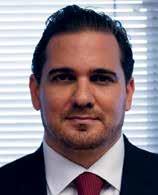
Since its inception, the Panamanian Association of Maritime Law - APADEMAR - has been a benchmark in the Panamanian maritime sector, as a consulting association and promoter of legislative initiatives that contribute significantly to the positioning of our industry.

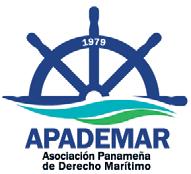
Their contributions, together with that of other unions and authorities, can be seen reflected in the main laws that govern the national maritime sphere, such as the General Law of Merchant Marine, Law of Maritime Commerce, Maritime Procedure and General Law of Ports. , to mention a few.
On the other hand, we will ensure the correct regulation and implementation of the new Cabotage Law.
In judicial matters, it is time to promote our reform proposal in the maritime procedural field.
Also, we will continue to promote alternative means of dispute resolution and continue promoting our country as an international maritime arbitration center through its Maritime Conciliation and Arbitration Center (CECOMAP).
RAMÓN FRANCO, PRESIDENTE DE APADEMAR | RAMÓN FRANCO, APADEMAR PRESIDENT.
Our main mission is to continue proposing initiatives aimed at improving the competitiveness of our sector through the identification of market needs and the review and updating of our maritime legislation in order to remain competitive.
Some of the challenges that lie ahead lead us to a review process of Law 57 of the Merchant Marine, in order to update our ship registry. Also, we have on the table the ambitious project of the Maritime Society, an exclusive corporate vehicle for this activity that is committed to transparency and that, if implemented, will help us offer the minimum offered by competing registries.
Lastly, and most importantly, APADEMAR will insist on training, academic and extension processes, since it depends on this that we have suitable professionals, prepared to guide our industry towards a good future.
This new board of directors is made up of a group of legal professionals who combine experience and in-depth knowledge of the maritime industry, such as Ramón Franco Mindreau (President), Joaquín de Obarrio (Vice President), Anamae Ortiz (Secretary), Pilar Castillo (Director), Gian Carlo Salas (Under Secretary), Alexis Herrera (Treasurer) and Andrés Mejía (Under Treasurer), a team with the vision and dynamism to take APADEMAR in the right direction.
65 NUESTROS MIEMBROS COEL / OUR MEMBERSLA REVISTA DEL CONSEJO EMPRESARIAL LOGÍSTICO
ASOCIACIÓN DE ARMADORES PANAMEÑOS – ARPA:
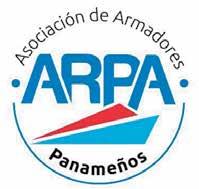
Impulsando la industria marítima y logística
La Asociación de Armadores Panameños es un colectivo constituido por armadores panameños que han depositado su confianza en Panamá. De reciente creación, ARPA ha mostrado ser una nueva voz en el universo gremial que aparece con ahínco y proactividad movilizando distintas fuerzas y actores de la industria marítima y logística de Panamá.
Bajo la presidencia del empresario Rodrigo Hernández, ARPA ha participado en importantes eventos como el Encuentro Ejecutivo “Proyectos de Impacto para la Región OccidentalRueda de Negocios 2022”, realizado por la Cámara de Comercio de Chiriquí, en donde se presentaron las gestiones desarrollas y las proyecciones que impulsa este gremio, para ponerlas a disposición de los importantes proyectos que se desarrollan en Chiriquí.
Recientemente ARPA entregó becas completas a estudiantes de primer ingreso de la UMIP por más de 86 mil dólares, lo que les ayudará a cubrir la totalidad de su carrera en este sector que cada vez exige más mano de obra calificada. Para esta entrega de becas que forma parte del Programa “Mar de Oportunidades” creado por ARPA, los postulantes fueron escogidos por un riguroso proceso de evaluación coordinado por el Consejo Académico de la UMIP y en el que participó un equipo multidisciplinario de profesionales
como docentes, psicólogos y trabajadores sociales, quienes evaluaron el perfil académico y el nivel socioeconómico de los participantes.
Otras acciones en respuesta a distintas problemáticas de la industria ha sido el respaldo a la Ley de Cabotaje, la firma de acuerdos con Mitradel en aras de implementar nuevos puestos de trabajo y un acuerdo con la Cámara Marítima de Panamá para fortalecer el sector marítimo nacional.
ASSOCIATION OF PANAMANIAN SHIPOWNERS – ARPA: PROMOTING THE MARITIME AND LOGISTICS INDUSTRY

The Panamanian Shipowners Association is a group made up of Panamanian shipowners who have placed their trust in Panama. Recently created, ARPA has proven to be a new voice in the union universe that appears with determination and proactivity, mobilizing different forces and actors of the maritime and logistics industry in Panama.
Under the presidency of businessman Rodrigo Hernández, ARPA has participated in important events such as the Executive Meeting “Impact Projects for the Western Region - Business Roundtable 2022”, held by the Chiriquí Chamber of Commerce, where the efforts developed and the projections promoted by this guild, to make them available to the important projects that are developed in Chiriquí.
ARPA recently awarded full scholarships to UMIP first-year students for more than 86 thousand
dollars, which will help them cover their entire career in this sector that increasingly requires more qualified labor. For this award of scholarships that is part of the “Sea of Opportunities” Program created by ARPA, the applicants were chosen through a rigorous evaluation process coordinated by the UMIP Academic Council and in which a multidisciplinary team of professionals such as teachers, psychologists and social workers, who evaluated the academic profile and socioeconomic level of the participants. Other actions in response to different problems in the industry have been the support for the Cabotage Law, the signing of agreements with Mitradel in order to implement new jobs and an agreement with the Panama Maritime Chamber to strengthen the national maritime sector.
REVISTA DEL CONSEJO EMPRESARIAL LOGÍSTICO
66 NUESTROS MIEMBROS COEL / OUR MEMBERS LA
MIEMBROS COEL
BENEFICIOS DE LA CERTIFICACIÓN BASC
Con la certificación, las empresas adquieren una serie de beneficios y herramientas que permitirán fortalecer sus procesos y su relación con las partes interesadas (contexto interno y externo de la empresa).
A NIVEL DE CLIENTES
BASC: Una alianza empresarial para el comercio seguro
BASC (Business Alliance for Secure Commerce), es una alianza empresarial internacional que promueve un comercio seguro a través de la implementación de estándares de seguridad aplicados a la cadena de suministro global; en cooperación con Gobiernos, Organismos Internacionales y sector Privado, constituida como una de las primeras Alianzas público-privadas del mundo.
• Incremento de la confianza de clien tes y proveedores como resultado de la implementación del Sistema de Gestión en Control y Seguridad (SGCS) BASC, asegurando la trazabilidad y transparencia en sus negocios.
• Consolidación de la marca en sus rel aciones comerciales, desarrollando una cadena logística segura con sus Asociados de Negocio (clientes y proveedores).
A NIVEL DE ADUANAS
• La certificación BASC constituye la plataforma para la implementación del Operador Económi co Autorizado (OEA) / Certificación otorgada por la Autoridad Nacional de Aduanas.
• Homologación de los Estándares del programa C-TPAT de la Aduana de los Estados Unidos de América.
BASC (Business Alliance for Secure Commerce), is an international business alliance that promotes secure trade through the implementation of security standards applied to the global supply chain; in cooperation with governments, international organizations and the private sector, constituted as one of the first publicprivate partnerships in the world.

BENEFITS OF THE BASC CERTIFICATION

With the certification, companies acquire a series of benefits and tools that will allow them to strengthen their processes and their relationship with interested parties (internal and external context of the company).
AT THE CUSTOMER LEVEL
• Increased customer and supplier confidence as a result of the implementation of the BASC Control and Security Management System (SGCS), ensuring traceability and transparency in their businesses.
• Consolidation of the brand in its business relationships, developing a secure logistics chain with its Business Associates (customers and suppliers).
AT THE CUSTOMS LEVEL
• The BASC certification constitutes the platform for the implementation of the Authorized Economic

A NIVEL DE EMPRESA
• Optimización del control y la trazabilidad de la cadena logística con los consecuentes benefi cios que ello conlleva ante un eventual hallazgo relacionado con el comercio ilícito.
• Reducción de costos y mejoramiento de los per files de riesgo.
DEBIDA DILIGENCIA
En BASC Panamá, promovemos una “Cultura Integral de seguridad” generando confianza y predictibilidad que exigen los mercados internacionales, entre sus asociados de negocios, clientes, proveedores, representantes legales, dignatarios, miembros de juntas directivas, entre otros.
ACADEMIA DE COMERCIO EXTERIOR BASC
Contamos con una plataforma e-learning, a través La Academia de Comercio Exterior BASC Panamá. Es un aula virtual de excelencia en la Cadena de Suministro y el Comercio Seguro, apoyando la formación académica de nuestros socios estratégicos: empresas, asociados de negocio (clientes y proveedores) y empresas dedicadas al comercio, desarrollando competencias para profesionales de la logística multimodal.
Operator (OEA) / Certification granted by the National Customs Authority.
• Homologation of the Standards of the C-TPAT program of the Customs of the United States of America.
AT COMPANY LEVEL
• Optimization of the control and traceability of the logistics chain with the consequent benefits that this entails in the event of a possible discovery related to illicit trade.
• Cost reduction and improvement of risk profiles.
DUE DILIGENCE

At BASC Panama, we promote an “Integral Safety Culture” generating trust and predictability that international markets demand, among its business associates, clients, suppliers, legal representatives, dignitaries, members of boards of directors, among others.
BASC FOREIGN TRADE ACADEMY
We have an e-learning platform, through the BASC Panama Foreign Trade Academy. It is a virtual classroom of excellence in the Supply Chain and Secure Trade, supporting the academic training of our strategic partners: companies, business associates (customers and suppliers) and companies dedicated to trade, developing skills for multimodal logistics professionals.

BASC: A BUSINESS ALLIANCE FOR SAFE TRADE
67 NUESTROS
/ OUR MEMBERSLA REVISTA DEL CONSEJO EMPRESARIAL LOGÍSTICO
CÁMARA DE COMERCIO, INDUSTRIA Y AGRICULTURA DE PANAMÁ:
107 Años a la defensa de la libre empresa
La Cámara de Comercio, Industrias y Agricultura de Panamá – CCIAP, fue fundada el 17 de mayo de 1915, como iniciativa del señor Ramón Arias Feraud, con el propósito de unificar esfuerzos, en forma organizada, para lograr el engrandecimiento de las actividades comerciales y de servicio del país.
CHAMBER OF COMMERCE, INDUSTRY AND AGRICULTURE OF PANAMA: 107 YEARS IN DEFENSE OF FREE ENTERPRISE
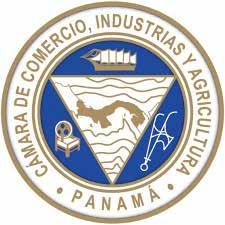
COEL
OUR MEMBERS
Actualmente, la Cámara de Comercio, Industrias y Agricultura de Panamá está conformada por más de 1,600 empresas clasificadas en 15 sectores de la economía nacional: Agropecuario; Alimentación; Industrias, Energía y Agua; Construcción e Inmobiliario; Automotores y Equipos Pesados; Tecnología de Información y Comunicaciones; Transporte y Logística, Artículos Personales; Hogar y Oficina; Salud y Químicos; Publicidad y Comunicación; Banca, Finanzas y Seguros; Turismo y Esparcimiento; Servicios Profesionales; Desarrollo Humano.
Como entidad representativa de importantes grupos del sector privado de Panamá, esta Institución brinda a sus asociados diversos servicios que contribuyen al pleno desarrollo de sus actividades comerciales, industriales, agrícolas y profesionales, entre los que se destacan: la defensa de los intereses de los miembros frente a medidas que afecten el principio de la libertad de empresa y la iniciativa privada; orientación a los miembros en tomo a Anteproyectos de Leyes, Decretos Ejecutivos y de Gabinete que afectan la actividad empresarial; acceso a valiosa información
The Chamber of Commerce, Industries and Agriculture of Panama - CCIAP, was founded on May 17, 1915, as an initiative of Mr. Ramón Arias Feraud, with the purpose of unifying efforts, in an organized manner, to achieve the aggrandizement of commercial activities and country service.
Currently, the Chamber of Commerce, Industries and Agriculture of Panama is made up of more than 1,600 companies classified in 15 sectors of the national economy: Agriculture; Feeding; Industries, Energy and Water; Construction and Real Estate; Automotive and Heavy Equipment; Information and Communications Technology; Transportation and Logistics, Personal Items; Home and Office; Health and Chemicals; Advertising and Communication; Banking, Finance and Insurance; Tourism and Leisure; Professional services; Human development.
As a representative entity of important private sector groups in Panama, this Institution provides its associates with various services that contribute to the full development of their commercial, industrial, agricultural and professional activities, among which the following stand out: the defense of the interests of the members against measures that affect the principle of freedom of
estadística y comercial; organización de misiones comerciales a otros países, entre otros.
A LO LARGO DE 39 AÑOS
Desde 1983, la Cámara de Comercio, Industrias y Agricultura de Panamá organiza anualmente la Exposición Comercial Internacional denominada EXPOCOMER. A lo largo de 32 años, esta “Vitrina del Comercio Mundial”, se ha consolidado como uno de los eventos comerciales más prestigiosos de la región. EXPOCOMER es una exposición comercial multisectorial, destacándose las categorías de alimentos, textiles, construcción, tecnología y servicios. Durante este evento, expositores de más de 30 países de América, el Caribe, Europa, Asia y Africa, realizan un intenso intercambio comercial que alcanza cientos de millones de dólares.
De igual manera, la Cámara de Comercio, Industrias y Agricultura de Panamá impulsó la creación del Centro de Conciliación y Arbitraje de Panamá que, desde 1994, contribuye a la solución de los conflictos, en forma privada, más rápida y eficaz, sin tener que acudir a la justicia ordinaria.
enterprise and private initiative; guidance to members regarding Draft Laws, Executive and Cabinet Decrees that affect business activity; access to valuable statistical and commercial information; organization of trade missions to other countries, among others.
OVER 39 YEARS
Since 1983, the Chamber of Commerce, Industries and Agriculture of Panama annually organizes the International Trade Exhibition called EXPOCOMER. For 32 years, this “World Trade Showcase” has established itself as one of the most prestigious trade events in the region. EXPOCOMER is a multisectoral trade exhibition, highlighting the categories of food, textiles, construction, technology and services. During this event, exhibitors from more than 30 countries in the Americas, the Caribbean, Europe, Asia and Africa carry out an intense commercial exchange that reaches hundreds of millions of dollars.
Similarly, the Chamber of Commerce, Industries and Agriculture of Panama promoted the creation of the Center for Conciliation and Arbitration of Panama which, since 1994, has contributed to the solution of conflicts, privately, faster and more efficiently, without having to Go to ordinary court.
 REVISTA DEL CONSEJO EMPRESARIAL LOGÍSTICO
REVISTA DEL CONSEJO EMPRESARIAL LOGÍSTICO
68 NUESTROS MIEMBROS
/
LA
MIEMBROS COEL
CÁMARA DE COMERCIO DE COLÓN: Construyendo el desarrollo económico y social de colón
La Cámara de Comercio, Industrias y Agricultura de Colón es el gremio más antiguo de Panamá y la organización empresarial líder de la provincia de Colón, fundada en 1911 para promover y defender el bienestar comercial de sus asociados y unificar a todos los sectores, gremios, organizaciones y particulares en miras del desarrollo socio-económico de Colón.

Es objetivo de la Cámara de Comercio de Colón el promover el mejor desenvolvimiento de la comunidad colonense y la salvaguarda de los intereses nacionales. También promover y defender los intereses de sus asociados y fomentar y defender los principios y el sistema de la libre empresa y libre competencia como instrumentos propios del desarrollo socioeconómico. Asimismo, estimular la vigencia de la democracia como sistema sociopolítico y defender sus principios a favor de los empresarios colonenses, la comunidad, la ciudad y la provincia.
LA CÁMARA Y LA ZONA LIBRE DE COLÓN
Fruto de su papel en el crecimiento y desarrollo comercial de Colón, la Cámara registra con orgullo su aporte en el surgimiento de la Zona Libre de Colón, cuya tarea de planificación y organización le fue confiada por el entonces presidente Don Enrique A. Jiménez al comienzo de su fructífera gestión (19451948). Paralela a su participación en el surgimiento de la Zona Libre de Colón, a la Cámara le correspondió una dura lucha por la construcción del puerto o terminal marítimo en la Bahía de Limón. Así mismo, la Cámara fue la creadora y gestora del movimiento
para la aprobación de la Ley Colón Puerto Libre en el año 1992, la cual está pendiente aún de implementación.
IMPACTO EN LA COMUNIDAD
Pocas instituciones nacionales pueden ostentar el envidiable récord de servicios a la comunidad que posee la Cámara de Comercio de Colón. Su gestión constante la ha llevado a ser parte de movimientos constructivos, y oportunamente ha denunciado todo aquello que estime contrario a los intereses de la ciudad y sus habitantes.
Así mismo hay constancia de sus esfuerzos porque la gestión oficial se torne más justa con esta provincia, haciendo notar el valioso aporte que recibe el Estado de los coloneses, que no se refleja en una equitativa distribución del presupuesto.
Luego de su primer centenario de funcionamiento, la Cámara mantiene en alto su compromiso con los más altos intereses de Colón, e insistirá siempre en que el desarrollo de la ciudad y de la provincia son metas con las que la Nación aún se mantiene en deuda.
COLUMBUS CHAMBER OF COMMERCE: BUILDING THE ECONOMIC AND SOCIAL DEVELOPMENT OF COLÓN
The Colón Chamber of Commerce, Agriculture & Industry is the oldest organization in Panama and the leading organization in the province of Colón, founded in 1911 to promote and defend the commercial welfare of its associates and unify all sectors, unions, organizations and individuals in view of the socioeconomic development of Colon.
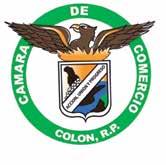
The objective of the Chamber is to promote Colon´s best development and the safeguard all national interests. It also promotes and defends the free enterprise principles and system as well as the free competition as instruments of socioeconomic development.
Likewise, it stimulates the validity of democracy as a sociopolitical system and it defends its principles in favor of Colon´s businessmen, the community, the city and the province.

THE CHAMBER AND THE COLÓN FREE ZONE
As a result of its role in the growth and commercial development of Colón, the Chamber proudly registers its contribution to the emergence of the Colón Free Zone, whose planning and organization task was entrusted to it by the then president, Mr. Enrique A. Jiménez, at the beginning. of his fruitful administration (1945-1948). Parallel to its participation in the emergence of the Colón
Free Zone, the Chamber was involved in a hard fight for the construction of the port or maritime terminal in the Bay of Limón. Likewise, the Chamber was the creator and manager of the movement for the approval of the Colón Free Port Law in 1992, which is still pending implementation.
COMMUNITY IMPACT
Few national institutions can boast the enviable record of service to the community that the Columbus Chamber of Commerce possesses. Its constant management has led it to be part of constructive movements, and opportunely it has denounced everything that it considers contrary to the interests of the city and its inhabitants.
Likewise, there is evidence of their efforts so that the official management becomes fairer with this province, noting the valuable contribution that the State receives from the colonists, which is not reflected in an equitable distribution of the budget.
After its first centenary of operation, the Chamber maintains its commitment to the highest interests of Colón, and will always insist that the development of the city and the province are goals with which the Nation still remains indebted.
69 NUESTROS
/ OUR MEMBERSLA REVISTA DEL CONSEJO EMPRESARIAL LOGÍSTICO
CÁMARA MARÍTIMA DE PANAMÁ:
Proactividad alineada al beneficio de todos
La Cámara Marítima de Panamá es el gremio referente de la industria marítima, logística y portuaria de Panamá. Fundada hace más de 40 años, la CMP agrupa a más de 200 empresas de 30 rubros de negocios relacionados a este sector que representa el 30% del Producto Interno Bruto y otorga 200 mil plazas de trabajo en el país.

COEL
OUR
A través de acciones proactivas, la CMP involucra a la empresa privada agremiada y al Estado panameño para la constante búsqueda del crecimiento de este sector de la economía. Como organización sin fines de lucro, orienta sus recursos a mejorar la calidad del talento humano de la Industria Marítima, Logística y Portuaria.
Como gremio beligerante y defensor de los intereses de sus asociados, la CMP ha trabajado en diversos temas como: evitar el alza en tema de fletes, depósitos y aumentos de tarifas; afinar las acciones de las industrias marítimas auxiliares, a fin de que puedan responder a los retos de un tiempo con escasos insumos; y tener el personal capacitado para atender una demanda a presión, entre otros.
Como sector privado agremiado, la CMP ha sido proactiva desde sus distintas comisiones para coordinar acciones que mantengan a flote a la industria y que el engranaje marítimo, logístico y
portuario que opera alrededor del Canal, se vea lo menos afectado posible en tiempos de crisis. La Cámara Marítima de Panamá ha trabajado en otros asuntos que son de gran interés, como son la Ley de Cabotaje, acuerdos de respaldo a los grupos exportadores y agrícolas y el impulso a la capacitación técnica de jóvenes para suplir algunas falencias de la industria.
Anualmente la CMP realiza la Conferencia Anual Marítima (CAM), evento que convoca a expertos a discutir temas relevantes para la industria.
La Cámara Marítima de Panamá ha trabajado fuertemente en la articulación de las operaciones marítimas, portuarias y logísticas, a fin de que el tránsito de mercancías no se detenga y que los clientes y usuarios finales puedan recibir sus productos y mercancías. Es así que Panamá ha sido abastecida de vacunas, alimentos e insumos hospitalarios y médicos, entre otros, durante estos dos años de crisis sanitaria a nivel global.
PANAMA MARITIME CHAMBER:
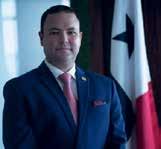
ALIGNED TO THE BENEFIT OF ALL
The Panama Maritime Chamber is the benchmark union for the maritime, logistics and port industry in Panama. Founded more than 40 years ago, the CMP brings together more than 200 companies from 30 business lines related to this sector, which represents 30% of the Gross Domestic Product and provides 200,000 jobs in the country.
Through proactive actions, the CMP involves private companies and the Panamanian State in the constant search for growth in this sector of the economy. As a non-profit organization, it directs its resources to improve the quality of human talent in the Maritime, Logistics and Port Industry.
proactive from its different commissions to coordinate actions that keep the industry afloat and that the maritime, logistics and port machinery that operates around the Canal is affected as little as possible in times of crisis. The Panama Chamber of Shipping has worked on other issues that are of great interest, such as the Cabotage Law, support agreements for export and agricultural groups, and the promotion of technical training for young people to make up for some shortcomings in the industry.
Annually, the CMP holds the Annual Maritime Conference (CAM), an event that brings together experts to discuss issues relevant to the industry.
CMP
As a belligerent union and defender of the interests of its associates, the CMP has worked on various issues such as: avoiding the rise in freight, deposits and rate increases; refine the actions of the auxiliary maritime industries, so that they can respond to the challenges of a time with scarce inputs; and have trained personnel to meet a demand under pressure, among others.
As a private unionized sector, the CMP has been
The Panama Maritime Chamber has worked hard in the articulation of maritime, port and logistics operations, so that the transit of goods does not stop and that customers and end users can receive their products and merchandise. Thus, Panama has been supplied with vaccines, food, and hospital and medical supplies, among others, during these two years of global health crisis.
REVISTA DEL CONSEJO EMPRESARIAL LOGÍSTICO
70 NUESTROS MIEMBROS
/
MEMBERS LA
PROACTIVITY
ENRIQUE CLÉMENT, PRESIDENTE
| ENRIQUE CLÉMENT, PMC PRESIDENT
CÁMARA NACIONAL DE TRANSPORTE DE CARGA (CANATRACA)
Impulsando el eje fundamental de la cadena logística
Fundada en mayo de 1998, la Cámara Nacional de Transporte de Carga – CANATRACA, nace en Chiriquí, provincia de David, con el esfuerzo conjunto de empresas de transportistas de carga de la región, que vieron en la unión de fortalezas la mejor herramienta para lograr manejar una agenda conjunta que beneficie a una industria, en ese tiempo, con pocas regulaciones.
Desde su creación, CANATRACA ha sido un ente mediador al servicio de los transportistas de carga tanto panameños como centroamericanos trabajando en función del fortalecimiento de las buenas relaciones comerciales a través de las buenas prácticas.
El gremio, que cuenta con 70 miembros que contribuyen de manera permanente en el desarrollo de las operaciones del sector logístico, trabajan organizadamente en el mejoramiento del servicio de transporte de carga, en el entendimiento que es una actividad que históricamente no ha contado con un soporte educativo ni de capacitación dentro de las plataformas de enseñanza del Estado ni a nivel privado y cuyas normativas y reglas se han ido implementando conforme las propias fuerzas vivas del transporte de carga han ido enfrentando retos y problemas que solucionar.
Desde hace 24 años CANATRACA promociona y trabaja en representación de este importante sector que es pilar fundamental de la economía nacional, reforzando las relaciones con el Gobierno, gremios aliados y organizaciones de transporte centroamericanos, en la permanente búsqueda de nuevas y mejores oportunidades, mayor
MIEMBROS COEL
conocimiento y lograr el engranaje social que reconozca al trabajador del transporte como una pieza fundamental de la cadena logística, porque como sabemos, toda operación de mercancía, empieza y termina con el transporte de la carga.
Como parte del hub logístico, creemos fundamental aprovechar el posicionamiento geoestratégico de Panamá que posee un alto valor por su centralidad interoceánica que nos ha identificado como una de las rutas más importantes a nivel global.
MISION:
Brindar apoyo a través de un trato eficaz y eficiente de las necesidades generadas por los transportistas de Panamá y Centroamérica, buscando así establecer buenas relaciones para el desarrollo sostenible y la mejora continua de la competitividad y economía del sector logístico.
VISION:
Impulsar las buenas prácticas a través del diálogo y las mesas de trabajo con diferentes entidades gubernamentales e internacionales de integración logística, que permitan optimizar e impulsar el crecimiento económico del sector de transporte de carga.
NATIONAL CHAMBER OF FREIGHT TRANSPORT (CANATRACA) DRIVING THE FUNDAMENTAL AXIS OF THE LOGISTICS CHAIN
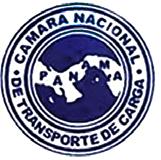
Founded in May 1998, the National Chamber of Freight Transport - CANATRACA, was born in Chiriquí, province of David, with the joint effort of freight transport companies in the region, who saw in the union of strengths the best tool to achieve manage a joint agenda that benefits an industry, at that time, with few regulations.

Since its creation, CANATRACA has been a mediating entity at the service of cargo carriers, both Panamanian and Central American, working to strengthen good commercial relations through good practices.
The guild, which has 70 members who contribute permanently to the development of operations in the logistics sector, work in an organized way to improve the cargo transport service, understanding that it is an activity that has historically not had support. educational or training within the educational platforms of the State or at the private level and whose regulations and rules have been implemented as the living forces of cargo transport have been facing challenges and problems to solve.
For 24 years, CANATRACA has been promoting and working on behalf of this important sector, which is a fundamental pillar of the national economy, strengthening relations with the Government, allied unions and Central American transport organizations, in the permanent search
for new and better opportunities, greater knowledge and achieve the social gear that recognizes the transport worker as a fundamental piece of the logistics chain, because as we know, all merchandise operations begin and end with the transport of the cargo.
As part of the logistics hub, we believe it is essential to take advantage of the geo-strategic position of Panama, which has a high value due to its interoceanic centrality that has identified us as one of the most important routes globally.
MISSION:
Provide support through an effective and efficient treatment of the needs generated by the carriers of Panama and Central America, thus seeking to establish good relations for sustainable development and the continuous improvement of the competitiveness and economy of the logistics sector.
VISION:
Promote good practices through dialogue and work groups with different government and international logistics integration entities, which allow optimizing and promoting economic growth in the cargo transport sector.
71 NUESTROS
/ OUR MEMBERSLA REVISTA DEL CONSEJO EMPRESARIAL LOGÍSTICO
CAPATEC:
El ecosistema de tecnología e innovación de Panamá
La Cámara Panameña de Tecnologías de Información, Innovación y Telecomunicaciones – CAPATEC nace el 2004 como resultado de la iniciativa de empresas del sector para agrupar e integrar los principales actores en un sólo gremio con el principal objetivo de promover e impulsar el desarrollo de la Industria TIC en el país. CAPATEC involucra a empresas que generan conocimiento, utilizando la innovación como base de su negocio.
CAPATEC: THE TECHNOLOGY AND INNOVATION ECOSYSTEM OF PANAMA
COEL / OUR MEMBERS
Uno de los objetivos principales es fortalecer el sector TIC en el país, abrir oportunidades para el desarrollo de programas y proyectos que permitan el crecimiento de la industria tanto local como internacionalmente.
La Cámara integra distintas empresas como:
• Empresas incubadoras de tecnología
• StartUps
• Multinacionales
• Pymes
• Desarrolladores de Software
NUESTRA MISIÓN
Convertir a Panamá en Hub de la región ofreciendo y fomentado el uso de la tecnología para mejorar la calidad de vida de la comunidad e integración a la sociedad de la información.
NUESTRA VISIÓN
Alinear las acciones de los diversos actores del sector de tecnologías de la información y telecomunicaciones para impulsar su desarrollo sostenible y competitivo para el desarrollo socioeconómico del sector.
The Panamanian Chamber of Information Technologies, Innovation and TelecommunicationsCAPATEC was born in 2004 as a result of the initiative of companies in the sector to group and integrate the main actors in a single guild with the main objective of promoting and promoting the development of the ICT Industry in the country. CAPATEC involves companies that generate knowledge, using innovation as the basis of their business.

One of the main objectives is to strengthen the ICT sector in the country, open opportunities for the development of programs and projects that allow the growth of the industry both locally and internationally.
The Chamber integrates different companies such as:
• Technology incubator companies
• Startups
• Multinationals
• SMEs
• Software Developers
OUR MISSION
Turn Panama into a Hub in the region, offering and promoting the use of technology to improve the quality of life of the community and integration into the information society.
OUR VISION
Align the actions of the various actors in the
CAPATEC desarrolla Proyectos y Programas que representan un valor agregado para su membresía y para la comunidad en general.
BIZ FIT PANAMÁ
Busca promover la marcapaís Panamá y a su vez es una ventana comercial para empresas y emprendedores nacionales e internacionales que buscan promover sus productos y servicios.
PANAMA HUB DIGITAL
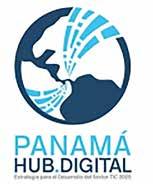
Es la estrategia para el desarrollo del sector de las Tecnologías de la Información y la Comunicación (TIC) para los próximos 10 años, que tiene como principal objetivo que Panamá sea un centro de Innovación Digital.
ECOSISTEMA DE NEGOCIOS DIGITALES
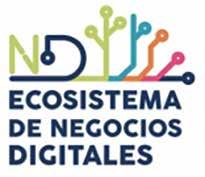
El proyecto desarrolla y establece un ecosistema de innovación abierta y nuevos modelos de negocios que permita y facilite la creación de empresas o emprendimientos digitales en Panamá.
information technology and telecommunications sector to promote their sustainable and competitive development for the socioeconomic development of the sector.
CAPATEC develops Projects and Programs that represent an added value for its membership and for the community in general.
BIZ FIT PANAMA

It seeks to promote the Panama country brand and, in turn, is a commercial window for national and international companies and entrepreneurs who seek to promote their products and services.
PANAMA DIGITAL HUB
It is the strategy for the development of the Information and Communication Technologies (ICT) sector for the next 10 years, whose main objective is for Panama to be a center of Digital Innovation.
DIGITAL BUSINESS ECOSYSTEM
The project develops and establishes an open innovation ecosystem and new business models that allow and facilitate the creation of companies or digital ventures in Panama.
REVISTA DEL CONSEJO EMPRESARIAL LOGÍSTICO
72 NUESTROS MIEMBROS
LA
MIEMBROS COEL
La creación del Centro cuenta con el apoyo especial de CAF, Banco de Desarrollo de América Latina, fiel a su compromiso de impulsar y promover el desarrollo socio-económico de Chiriquí y la región occidental del país.

Cuenta también con el apoyo destacado del Instituto Interamericano de Cooperación para la Agricultura, así como con la colaboración de diversas agencias de cooperación internacional e instituciones de financiación multilateral.
Motor de crecimiento y desarrollo
El Centro de Competitividad de la Región Occidental de Panamá (CECOM-¬RO) es una Fundación privada sin ánimo de lucro que nace gracias al impulso de APEDE, la Cámara de Comercio, Industrias y Agricultura de Chiriquí y la Fundación Pro-Chiriquí, formada por un grupo de empresarios comprometidos con el desarrollo de la región, que son sus socios fundadores.

El Centro nace en el marco de la Visión Chiriquí 2025 y su misión es impulsar la posición competitiva de la Región Occidental del país, articulando los esfuerzos públicos y privados, acercando a las empresas las herramientas que les permitan desarrollar ventajas competitivas sostenibles y liderando actuaciones vinculadas con la atracción de inversiones, el emprendimiento, el desarrollo de nuevos negocios, de las infraestructuras necesarias y la valorización del I+D+i, así como contribuir a una mayor efectividad de las políticas públicas, horizontales y sectoriales.
El Centro desarrolla actividades de asistencia técnica, captación de inversión y financiación, gestión de proyectos y de programas de desarrollo,
The Competitiveness Center of the Western Region of Panama (CECOM-RO) is a private, non-profit foundation that was created thanks to the support of APEDE, the Chamber of Commerce, Industry and Agriculture of Chiriquí and the Pro-Chiriquí Foundation, formed by a group of businessmen committed to the development of the region, who are its founding partners. The creation of the Center has the special support of CAF, Development Bank of Latin America, faithful to its commitment to drive and promote the socio-economic development of Chiriquí and the western region of the country.
It also has the outstanding support of the InterAmerican Institute for Cooperation on Agriculture, as well as the collaboration of various international cooperation agencies and multilateral financing institutions.
The Center was born within the framework of the Chiriquí 2025 Vision and its mission is to promote the competitive position of the Western Region of the country, articulating public and private efforts, providing companies with the tools that allow them to develop sustainable competitive advantages and leading related actions with the attraction of investments, entrepreneurship, the development of new businesses, the necessary infrastructures and the valorization of R&D&i, as well as contributing to greater effectiveness of public, horizontal and sectoral policies.
información y relaciones institucionales.
El CECOM-RO nace con esperanza e ilusión, con vocación de ser un espacio abierto a la participación de todos los agentes implicados en el desarrollo económico de la región y, en consecuencia, irá promoviendo la incorporación de empresarios, gremios, instituciones académicas y técnicas, gobiernos locales y dependencias públicas a sus órganos de gestión y a sus actividades.
El Centro de Competitividad de la Región Occidental (CECOMRO), luego de lanzar la Visión Región Occidental al 2050, cumple su objetivo de impulsar las ventajas competitivas de la Región Occidental del país en las principales vocaciones productivas, promoviendo la inversión pública y privada, ha desarrollado planes y proyectos puntuales en cada uno de los sectores pilares de la economía de nuestra Región, como el Plan Maestro del Agro de la Región Occidental, Circuito del Café, Plan Integral de Movilidad Urbana Sustentable de David, Plan Maestro de Boca Chica como Destino de Turismo Sostenible, Plan Maestro para el Desarrollo Integral y Sostenible del Distrito de Barú, Plan Operativo Cero Deserción Escolar, entre otros, y sirve de impulsor de proyectos de inversión pública y privada en la Región.
The Center will carry out activities of technical assistance, attracting investment and financing, management of projects and development programs, information and institutional relations.
The CECOM-RO was born with hope and enthusiasm, with the aim of being a space open to the participation of all the agents involved in the economic development of the region and, consequently, it will promote the incorporation of businessmen, unions, academic institutions and techniques, local governments and public agencies to their management bodies and their activities.
The Competitiveness Center of the Western Region (CECOMRO), after launching the Western Region Vision for 2050, fulfills its objective of promoting the competitive advantages of the Western Region of the country in the main productive vocations, promoting public and private investment, has developed specific plans and projects in each of the pillar sectors of the economy of our Region, such as the Master Plan for Agriculture in the Western Region, the Coffee Circuit, the Comprehensive Plan for Sustainable Urban Mobility in David, the Master Plan for Boca Chica as a Destination of Sustainable Tourism, Master Plan for the Comprehensive and Sustainable Development of the District of Barú, Zero Dropout Operational Plan, among others, and serves as a promoter of public and private investment projects in the Region.

CENTRO DE COMPETITIVIDAD DE LA REGIÓN OCCIDENTAL DE PANAMÁ – CECOM-RO
COMPETITIVENESS CENTER OF THE WESTERN REGION OF PANAMA – CECOM-RO ENGINE OF GROWTH AND DEVELOPMENT
73 NUESTROS
/ OUR MEMBERSLA REVISTA DEL CONSEJO EMPRESARIAL LOGÍSTICO
CORTRANSCAC
La Coordinadora de Transporte de Carga de Colón – CORTRANSCAC, nace en 1996 en la ciudad de Colón por iniciativa de varios grupos de transporte de carga formalizados, que identificaron la necesidad de unir fuerzas para poder hacer frente a los distintos temas que plantea una industria no exenta de retos a veces difíciles de tratar.

COEL / OUR MEMBERS
El interés principal de esta sólida organización gremial es defender los derechos de los transportistas de carga. Es por todos conocido que se trata de una industria en la que intervienen diversos factores que inciden en su funcionamiento como son las leyes y normas que aplica el Estado, la regulación tarifaria y la relación de los transportistas con las diversas cadenas de suministro que muchas veces inciden en su operatividad.
CORTRANSCAC ha respaldado diversas acciones como aprobación de la Ley de Cabotaje que mejora las condiciones de la Gente de Mar y tuvo una acción beligerante en conseguir la intermediación del gobierno para que algunas empresas marítimas no intervengan en brindar el servicio de transporte de carga.
MISIÓN
CORTRANSCAC tiene como misión incentivar a sus agremiados a capacitarse y brindar cada vez un mejor servicio que optimice el desarrollo de la industria del transporte.
VISIÓN
Su visión es lograr una sola voz que represente a los trabajadores de la industria del transporte de carga y que le permita actuar de manera transparente y sólida con las diferentes autoridades, gremios e instituciones relacionadas, para lograr mejorar en sus derechos laborales y en sus modalidades de servicio. Siempre asegurando un servicio ágil y eficiente, brindando calidad y seguridad.
CORTRANSCAC
The Colón Freight Transport Coordinator –CORTRANSCAC, was born in 1996 in the city of Colón at the initiative of several formalized freight transport groups, which identified the need to join forces in order to deal with the different issues raised by an unrelated industry. free of challenges that are sometimes difficult to deal with.
The main interest of this solid union organization is to defend the rights of cargo carriers. It is known by all that it is an industry in which various factors intervene that affect its operation, such as the laws and regulations applied by the State, the tariff regulation and the relationship of carriers with the various supply chains that many times affect its operation.
CORTRANSCAC has supported various actions such as the approval of the Cabotage Law that improves the conditions of Seafarers and had a
belligerent action in obtaining the intermediation of the government so that some maritime companies do not intervene in providing cargo transport services.
MISSION
CORTRANSCAC’s mission is to encourage its members to be trained and provide an increasingly better service that optimizes the development of the transportation industry.

VISION
Its vision is to achieve a single voice that represents the workers of the freight transport industry and that allows it to act in a transparent and solid manner with the different authorities, unions and related institutions, in order to improve their labor rights and their modalities. of service. Always ensuring an agile and efficient service, providing quality and safety.
REVISTA DEL CONSEJO EMPRESARIAL LOGÍSTICO
74 NUESTROS MIEMBROS
LA
NUESTROS
El lenguaje global de los negocios
Somos una organización privada dedicada a la elaboración y aplicación de estándares de identificación única, servicios mundiales y soluciones para mejorar la eficiencia y visibilidad de las cadenas de abastecimiento, empoderamos a las organizaciones para que crezcan de manera eficaz, sostenible y segura, ayudando a transformar la forma en que trabajamos y vivimos.
GS1 PANAMA THE GLOBAL LANGUAGE OF BUSINESS

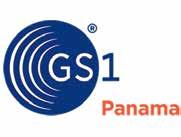
MIEMBROS COEL
El sistema de normas GS1 es el más ampliamente utilizado en la cadena de suministro en el mundo. Nuestros estándares permiten a las organizaciones identificar, capturar y compartir información sin problemas, creando un lenguaje común que sustenta los sistemas y procesos en todo el mundo.
GS1 como organización global y neutral reúne a líderes de la industria, el gobierno, los reguladores, el mundo académico y las asociaciones para desarrollar soluciones basadas en estándares para abordar los desafíos de la calidad y confiabilidad de los datos. Nuestro alcance (presencia en 115 países, más de dos millones de empresas usuarias y 6.000 millones de transacciones todos los días) ayuda a garantizar un lenguaje comercial común en todo el mundo.
Creamos una base común para los negocios al identificar en forma única, capturar de manera precisa y compartir automáticamente información vital sobre los productos, localizaciones y activos.
Facilitamos la visibilidad a través del intercambio de datos auténticos.
Potenciamos los negocios para crecer y mejorar la eficiencia, la seguridad y la sustentabilidad.
Unimos los mundos físico y digital para mejorar la experiencia del consumidor y la seguridad del paciente
We are a private organization dedicated to the development and application of unique identification standards, global services and solutions to improve the efficiency and visibility of supply chains, we empower organizations to grow effectively, sustainably and securely, helping to transform the way we work and live.
The GS1 system of standards is the most widely used in the supply chain in the world. Our standards enable organizations to seamlessly identify, capture and share information, creating a common language that underpins systems and processes around the world.
As a global, neutral organization, GS1 brings together leaders from industry, government, regulators, academia and associations to develop standardsbased solutions to address data quality and reliability challenges. Our reach – presence in 115 countries, more than two million business users, and 6 billion transactions every day – helps ensure a common business language around the world.
We create a common foundation for business by uniquely identifying, accurately capturing, and automatically sharing vital information about products, locations, and assets.
We facilitate visibility through the exchange of authentic data.
We empower businesses to grow and improve
Hacemos posible hacer negocios de manera más eficiente y segura
Reunimos a las partes interesadas de la industria para hacer avanzar el negocio
CÓDIGO DE BARRAS : LA VENTA DE UN PRODUCTO COMIENZA CON UN NÚMERO DE CÓDIGO DE BARRAS GS1
El sonido de un pitido en la caja lanzó una revolución digital que cambió para siempre la forma en que el mundo hace negocios. Con un simple escaneo se puede identificar un producto y conectarlo a un sistema computarizado.
Las empresas de todos los tamaños necesitan números de códigos de barras GS1 para identificar y vender correctamente sus productos en las tiendas o en línea. El poder de los datos capturados a través del código de barras GS1 está ayudando a resolver grandes en las operaciones de las empresas.
LA SEGUNDA REVOLUCION DIGITAL, VERIFIED BY GS1: ¿ES ESTE EL PRODUCTO QUE CREO QUE ES?
¡La confianza y la eficiencia comienzan con una identificación válida! Verified BY GS1 hace posible que los propietarios de marca compartan datos básicos sobre sus productos y que los minoristas verifiquen la identidad de los productos que venden.
efficiency, safety and sustainability.
We bridge the physical and digital worlds to improve the consumer experience and patient safety
We make it possible to do business more efficiently and safely
We bring together industry stakeholders to move the business forward
BARCODE : THE SALE OF A PRODUCT STARTS WITH A GS1 BARCODE NUMBER
The sound of a beep at the checkout launched a digital revolution that forever changed the way the world does business. With a simple scan a product can be identified and connected to a computerized system.
Businesses of all sizes need GS1 barcode numbers to correctly identify and sell their products in stores or online. The power of data captured through the GS1 barcode is helping to solve big problems in business operations.
THE SECOND DIGITAL REVOLUTION, VERIFIED BY GS1: IS THIS THE PRODUCT I THINK IT IS?
Confidence and efficiency start with a valid ID! Verified BY GS1 makes it possible for brand owners to share basic data about their products and for retailers to verify the identity of the products they sell.
75
/ OUR MEMBERSLA REVISTA DEL CONSEJO EMPRESARIAL LOGÍSTICO
GS1 PANAMÁ
Embajada del Reino de los Paises Bajos

EMBASSY OF THE KINGDOM OF THE NETHERLANDS
La embajada representa, promueve y protege los intereses del gobierno de los Países Bajos, así como los nacionales neerlandeses en Panamá. Proveemos servicios consulares a los ciudadanos de los Países Bajos en Panamá y a las personas que viajan a nuestro país. Promovemos y fortalecemos
las relaciones bilaterales entre Panamá y los Países Bajos. Facilitamos comercio e inversión entre ambos países. Nuestros países comparten fuertes lazos comerciales trabajando de manera conjunta en sectores claves como la gestión del agua, marítima, logística y economía circular.
The embassy represents, promotes and protects the interests of the government of the Netherlands, as well as Dutch nationals in Panama. We provide consular services to citizens of the Netherlands in Panama and to people traveling to our country. We promote and strengthen bilateral relations between
Panama and the Netherlands. We facilitate trade and investment between both countries. Our countries share strong commercial ties working together in key sectors such as water management, maritime, logistics and circular economy.


76 NUESTROS MIEMBROS COEL / OUR MEMBERS LA REVISTA DEL CONSEJO EMPRESARIAL LOGÍSTICO
IARO: La Asociación Internacional de Organizaciones Reconocidas

IARO se estableció en 1996 y es una asociación sin fines de lucro de 8 Sociedades de Clasificación. Todos sus miembros han sido reconocidos por la Autoridad Marítima de Panamá para inspeccionar y certificar embarcaciones bajo la Bandera de Panamá.
MIEMBROS COEL
Una sociedad de clasificación de buques u organización de clasificación de buques es una organización no gubernamental que establece y mantiene normas técnicas para la construcción y operación de buques y estructuras en alta mar. Las sociedades de clasificación certifican que la construcción de un buque cumple con las normas pertinentes y realizan inspecciones periódicas en servicio para garantizar el cumplimiento continuo de las normas. Actualmente, más de 50 organizaciones describen sus actividades como que incluyen la clasificación marina, doce de las cuales son miembros de la Asociación Internacional de Sociedades de Clasificación.
IARO es reconocido como uno de los asesores técnicos de la Autoridad Marítima de Panamá, en materia de seguridad marítima y protección ambiental.
El actual Presidente del Consejo de IARO es el Sr. Santiago Torrijos Oro, Director General de ICS Class.
MISIÓN
Ser una asociación de sociedades de clasificación de renombre y con impacto global que sea un referente en la generación de nuevos conocimientos para el desarrollo marítimo e industrial sostenible.
VISIÓN
Agrupar a las sociedades clasificadoras panameñas y maximizar capacidades para satisfacer las necesidades de nuestros clientes, contribuyendo al desarrollo marítimo e industrial, promoviendo la seguridad de la vida en el mar, la propiedad y la conservación del medio ambiente.
Es finalidad de IARO, brindar insumos para el mejoramiento de la legislación panameña en materia de seguridad y protección ambiental y actualizar los reglamentos utilizados por los miembros de la asociación.
IARO was established in 1996 and is a non-profit association of 8 Classification Societies. All of its members have been recognized by the Panama Maritime Authority to inspect and certify vessels under the Panama Flag.
A ship classification society or ship classification organization is a non-governmental organization that establishes and maintains technical standards for the construction and operation of ships and offshore structures. Classification societies certify that a ship’s construction meets the relevant standards and carry out regular in-service inspections to ensure continued compliance with the standards. Currently, more than 50 organizations describe their activities as including marine classification, twelve of which are members of the International Association of Classification Societies.
IARO is recognized as one of the technical advisors of the Panama Maritime Authority, in matters of maritime safety and environmental protection.
The current Chairman of the IARO Council is Mr. Santiago Torrijos Oro, General Director of ICS Class.
MISSION
To be an association of renowned classification societies with a global impact that is a benchmark in the generation of new knowledge for sustainable maritime and industrial development.
VISION
Bring together the Panamanian classification societies and maximize capacities to meet the needs of our clients, contributing to maritime and industrial development, promoting the safety of life at sea, property and environmental conservation.
The purpose of IARO is to provide inputs for the improvement of Panamanian legislation on safety and environmental protection and to update the regulations used by the members of the association.

IARO: THE INTERNATIONAL ASSOCIATION OF RECOGNIZED ORGANIZATIONS
77 NUESTROS
/ OUR MEMBERSLA REVISTA DEL CONSEJO EMPRESARIAL LOGÍSTICO
Promoviendo buenas prácticas Y ética profesional
La Unión Nacional de Corredores de Aduanas de Panamá, fue fundada el 15 de agosto de 1962, como una organización sin fines de lucro, creada inicialmente como una organización social patronal con el nombre de Asociación de Corredores de Aduanas.
COEL / OUR MEMBERS
La Unión Nacional de Corredores de Aduanas de Panamá, fue creada el 15 de agosto de 1962, como una organización sin fines de lucro, y reúne a más de 300 Agentes Corredores de Aduanas, auxiliares de la Gestión Pública Aduanera en la República de Panamá.
UNCAP tiene como misión promover las buenas prácticas y ética profesional como clave en el rol que ejercen los Agentes Corredores de Aduanas, con una visión de ser reconocidos como socios estratégicos en la Cadena Logística.
Actualmente somos miembros de la Asociación Internacional de Agentes Profesionales de Aduana (ASAPRA), de la Confederación de Agentes de Aduana de la Cuenca del Caribe (CONAAACAC), del Consejo Empresarial Logístico (COEL), y del Consejo Nacional de la empresa Privada (CoNEP).
MISIÓN Cohesionar, realzar, y trabajar como gremio organizado por la profesión del Agente Corredor de Aduanas, como elemento de cambio dentro de la economía y sociedad panameña.
PROMOTING GOOD PRACTICES AND PROFESSIONAL ETHICS
The National Union of Customs Brokers of Panama, was created on 15 August 1962, as a nonprofit organization, and brings together to more than 300 Broker Agents Customs, management assistants Public Customs in the Republic of Panama.
UNCAP’s mission is to promote good practices and professional ethics as key in the role played by the Customs Broker Agents, with a vision of being recognized as strategic partners in the Chain Logistics.
We are currently members of the International Association of Agents Customs Professionals (ASAPRA), from the Confederation of Agents of Caribbean Basin Customs (CONAAACAC), of the Council Logistics Business (COEL), and the National Council of the company Private (CoNEP).

MISSION
Unite, enhance, and work as a union organized
VISIÓN
Ser una Organización activa, confiable y de ejemplo para sus similares internacionalmente, que esté al servicio de la sociedad, y que contribuya al logro de los objetivos de la Administración del Estado en materia aduanera.
Valores de la Organización
• Responsabilidad
• Excelencia
• Trabajo en Equipo
• Compromiso
• Profesionalismo
• Solidaridad
• Lealtad
by the profession of the Customs Broker Agent, as an element of change within the Panamanian economy and society.
VISION
To be an active, trustworthy organization that is an example for its peers internationally, that is at the service of society, and that contributes to the achievement of the objectives of the State Administration in customs matters.
Organization Values
• Responsibility
• Excellence
• Teamwork
• Commitment
• Professionalism
• Solidarity
• Loyalty
REVISTA DEL CONSEJO EMPRESARIAL LOGÍSTICO
78 NUESTROS MIEMBROS
LA
SINDICATO DE CAMIONEROS DE CHIRIQUÍ – SICACHI 63 años luchando por la profesionalización del transporte
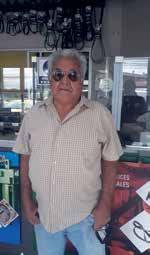
La beligerancia y la constancia son dos de las características que definen la labor que por 63 años ha realizado el Sindicato de Camioneros de Chiriquí – SICACHI, una de las organizaciones más antiguas dedicadas a la búsqueda del mejoramiento de las condiciones del trabajador del transporte.
Fundado en 1959, SICACHI está constituida por transportistas dedicados al transporte terrestre de carga comercial, a nivel nacional e internacional, así como por diversas empresas comerciales que tienen relación directa con este sector.
Tiene como misión apoyar a los transportistas de carga terrestre nacional e internacional, cooperar activamente en su fortalecimiento y ejercer la digna defensa de sus intereses.
Su visión es consolidar una representación seria, respetable y comprometida con el sector del transporte de carga terrestre.
Largos y varios son los temas en los que el accionar de SICACHI ha obtenido logros en el mejoramiento de la calidad de vida de los transportistas. Uno de los más resaltantes es la implementación de una tarifa común a los transportistas de manera que, dentro de un mercado de libre oferta y demanda, se pueda mantener un estándar entre todos los transportistas a nivel nacional.
COEL
Otro de los temas en los que SICACHI ha intervenido de manera activa es en la implementación de la Ley 51, que en su Artículo 1 establece que el transporte de carga es un servicio privado de interés público por lo que es considerada una ley especial a la que le atañen todas las prerrogativas que tienen en la Constitución Nacional.
Igualmente, importante es el otorgamiento de un código común a todos los transportistas de Centroamérica, que fue conseguido en un trabajo conjunto con Aduanas y que brinda una seguridad jurídica al trabajador del transporte que puede desplazarse fuera de su jurisdicción sin perder sus derechos ni reconocimiento.
Actualmente, SICACHI impulsa la creación de la Federación Panameña de Transporte de Carga por Carretera, que busca unir el accionar de todos los gremios de transporte del país en una sola fuerza ejecutora en pro de los beneficios de los transportistas.
CHIRIQUÍ TRUCKERS UNION – SICACHI 63 YEARS FIGHTING FOR THE PROFESSIONALIZATION OF TRANSPORT

Belligerence and perseverance are two of the characteristics that define the work carried out for 63 years by the Chiriquí Truckers’ Union - SICACHI, one of the oldest organizations dedicated to seeking to improve the conditions of transport workers.

Founded in 1959, SICACHI is SICACHI is made up of carriers dedicated to land transport of commercial cargo, nationally and internationally, as well as various commercial companies that have a direct relationship with this sector.
Its mission is to support national and international land cargo carriers, actively cooperate in their strengthening and exercise the worthy defense of their interests.
Its vision is to consolidate a serious, respectable and committed representation of the land freight transport sector.
Long and various are the topics in which SICACHI’s actions have obtained achievements in improving the quality of life of carriers. One of the most outstanding is the implementation of a common rate
for carriers so that, within a market of free supply and demand, a standard can be maintained among all carriers at the national level.
Another of the issues in which SICACHI has been actively involved is in the implementation of Law 51, which in its Article 1 establishes that cargo transport is a private service of public interest, for which it is considered a special law to the that concern all the prerogatives they have in the National Constitution.
Equally important is the granting of a common code to all carriers in Central America, which was achieved in a joint effort with Customs and which provides legal certainty to transport workers who can travel outside their jurisdiction without losing their rights or recognition.
Currently, SICACHI promotes the creation of the Panamanian Federation of Road Freight Transport, which seeks to unite the actions of all transport unions in the country into a single executing force for the benefits of carriers.

79 NUESTROS MIEMBROS
/ OUR MEMBERSLA REVISTA DEL CONSEJO EMPRESARIAL LOGÍSTICO
Un Sistema Universitario global en busca de la excelencia

El Sistema Universitario Texas A&M fue creado por la Legislatura de Texas, Estados Unidos en 1948 para administrar la evolución de un sistema educativo, de investigación y de servicios en todo el Estado, es uno de los sistemas de educación superior más grandes de la nación.
El Sistema Texas A&M educa a más de 151,000 estudiantes y hace más de 22 millones de contactos educativos adicionales a través de programas de servicio y alcance cada año.
El Sistema Universitario Texas A&M es uno de los sistemas de educación superior más grandes de la nación, con un presupuesto de $7.2 mil millones. A través de una red estatal de 11 universidades, un centro integral de ciencias de la salud, ocho agencias estatales y el Campus RELLIS, Texas A&M System educa a más de 152,000 estudiantes y realiza más de 24 millones de contactos educativos adicionales a través de programas de servicio y extensión cada año. Los gastos de investigación y desarrollo en todo el sistema superan los mil millones de dólares y ayudan a impulsar la economía del estado.
TAMU –socios estratégicos de COEL en Panamá- está entre los mayores 20 institutos
The Texas A&M University System was created by the Legislature of Texas, United States in 1948 to manage the evolution of a system of education, research and services throughout the State, it is one of the largest higher education systems in the nation.
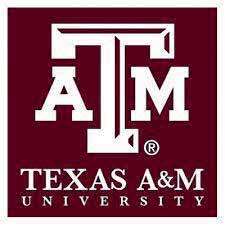
The Texas A&M System educates more than 151,000 students and makes more than 22 million additional educational contacts through service and outreach programs each year.

The Texas A&M University System is one of the largest higher education systems in the nation, with a budget of $7.2 billion. Through a statewide network of 11 universities, a comprehensive health sciences center, eight state agencies, and the RELLIS Campus, the Texas
estadounidenses de investigación en términos de financiación y ha hecho contribuciones notables en varios campos, como la clonación de animales y la ingeniería del petróleo. . La universidad ofrece títulos en más de 150 cursos de estudio a través de diez colegios, y tiene 18 institutos de investigación. A&M ha otorgado más de 320.000 títulos, entre ellos 70.000 de postgraduados y títulos profesionales.
A&M System educates more than 152,000 students and makes more than 24 million additional educational contacts through programs. of service and extension each year. System-wide research and development spending exceeds $1 billion and helps drive the state’s economy.
TAMU - COEL’s strategic partners in Panama - is among the 20 largest US research institutes in terms of funding and has made notable contributions in several fields, such as animal cloning and petroleum engineering. . The university offers degrees in more than 150 courses of study through ten colleges, and has 18 research institutes. A&M has awarded more than 320,000 degrees, including 70,000 graduate and professional degrees.

80 NUESTROS MIEMBROS COEL / OUR MEMBERS LA REVISTA DEL CONSEJO EMPRESARIAL LOGÍSTICO
THE TEXAS A & M UNIVERSITY
THE TEXAS A & M UNIVERSITY A UNIVERSITY SYSTEM IN SEARCH OF EXCELLENCE

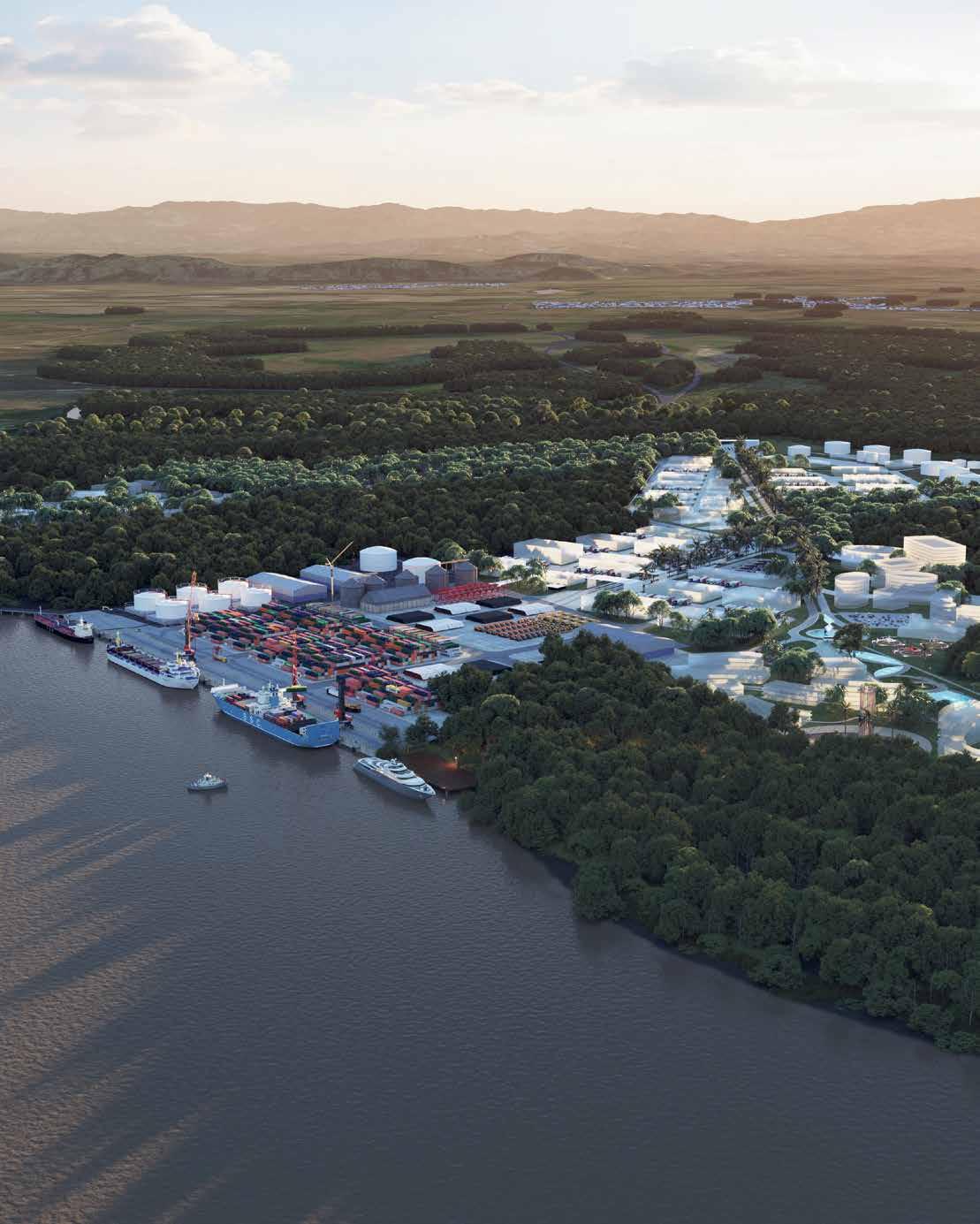
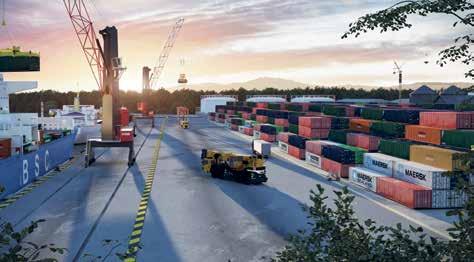

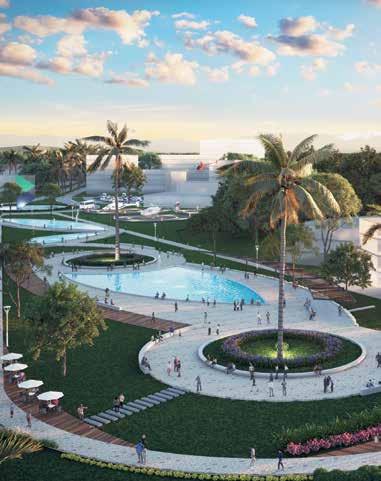
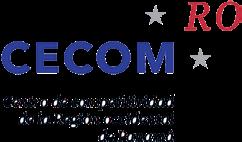
CONECTAMOS MARES, RUTAS, PRODUCTOS, EXPERIENCIAS, PERO SOBRE TODO, CONECTAMOS POSIBILIDADES. Conectados con COEL, por el desarrollo de la industria marítima - portuaria, a través de un puerto multipropósito que abre la única ruta logística del Occidente del país, creando el segundo canal seco para Panamá. JUNTOS, ABRIENDO NUEVAS V Í A S PARA EL COMERCIO GLOB A L , CONUNALOGÍSTICA SOSTENIBLE www.puertobaru.com
